Tinubu Approves Rollout of National Construction, Household Support Initiative
Gives govs seven days to submit list of support

Gives govs seven days to submit list of support
Recommit to process, better pay for workers Southern govs seek to negotiate payable wage with workers FG approves $1b agric consortium initiative Seeks measures to end crude oil theft Meeting approves NDPHC board members
The National Economic Council (NEC), chaired by Vice President Kashim
yesterday, ended its 142nd meeting without any information on the contentious new national minimum
Curiously, President Bola Tinubu, in an unprecedented move, attended the NEC meeting held at the Council Chambers of State House,
That was as the Nigeria Governors’ Forum (NGF), yesterday, said its members had agreed to continue engaging with key stakeholders with a view to reaching a mutually agreeable solution on the minimum wage debacle.
NGF recommitted to the process and assured that the ongoing negotiations would bring about better wages.





Segun Awofadeji in Bauchi and David-Chyddy Eleke in Awka
The Federal Competition and Consumer Protection Commission (FCCPC) yesterday organised a sensitisation engagement for traditional rulers, religious leaders and other stakeholders in Bauchi on the rights of consumers and ways of preventing market monopolies.
The acting Executive Vice Chairman of the Commission, Dr Adamu Abdullahi, who spoke while interacting with traditional rulers at the Emir's Palace in Bauchi yesterday, said that the commission had been conducting advocacy and public awareness
At the same time, governors from the southern part of Nigeria, under the aegis of Southern Governors' Forum (SGF), asked to be allowed to negotiate the wage payable to their workers. They said the ability of each state to pay what it could afford should be a major consideration in arriving at a national minimum wage.
The vice president is the statutory chairman of NEC, which was expected to deliberate on the issues of the new national minimum wage.
The president's attendance came against the backdrop of his decision to consult with necessary stakeholders, including governors, all of whom are members of the council.
Tinubu had said he would only submit a new national minimum wage to the National Assembly for passage into law after such consultations.
But at the end of the meeting, the council was silent on the minimum wage issue.
Addressing newsmen on the outcome of the meeting, Minister of Agriculture, Abubakar Kyari, who joined the governors of Imo, Kano and Kogi to brief reporters, disclosed that the federal government had approved a $1 billion agriculture mechanisation programme that would set up 1,000 agro-sector service providers across the country with tractors.
According to him, “We will have a minimum of 2,000 tractors a year for the next five years and all other aggregation of agricultural commodities is going to be utilised, at least nothing less than 600,000 youths to man these 1,000 service centres.”
Kyari explained that the elaborate plan would be rolled out soon, and said the project was approved by the Federal Executive Council (FEC) on Tuesday. He spoke of an arrangement with John Deere and Tata to provide 2,000 tractors before the end of the year.
The minister said the Greener Imperative Project, which was still in the works, was a 950-million-euro project that would soon be unveiled.
Kyari stated that a deal was being anticipated with Belarus Tractors to supply 2,000 tractors per year for the next five years, with 9,000 implements and spare parts, among others.
The minister also disclosed that Saudi Arabia had expressed interest in 200,000 metric tons of red meat every year and one million tonnes of soya from Nigeria.
Kyari said, “We have already last week had a meeting with our entrepreneurs and we have come out with a roadmap, where we can supply and satisfy that demand.
“We are looking at partnership with foreign governments, not necessarily trying to ask them to come and invest, but asking them, what can we produce so that we can sell to you, so that we can earn foreign exchange."
Governor Hope Uzodimma of Imo State also disclosed that NEC directed the sub-committee on crude oil theft to provide comprehensive
initiatives concerning price gouging and other unjust trade practices in Nigerian markets.
He said that the commission was committed to ensuring that consumers in the country get value for their money by monitoring the price hike in Nigeria markets to protect them from being exploited by business owners.
The chairman said the commission will continue to ensure the development and promotion of fair, efficient and competitive markets in the Nigerian economy to facilitate access by all citizens to safe products and secure the protection of rights for all consumers in the country. According to him, the commission
recommendations on how to end the menace during the next meeting.
Uzodimma said even though the sub-committee was expected to submit its report during Thursday’s meeting, “it was inconclusive.”
On his part, Governor Abba Yusuf of Kano State announced the constitution of the board of the Niger Delta Power Holding, which had operated for a long time without a supervising board.
Yusuf revealed that the board was made up of the governors of Borno, Katsina, Imo, Ekiti, Kwara, and Akwa Ibom states, representing the different geo-political zones.
Minister of Finance and Coordinating Minister of the Economy, Wale Edun, spoke on the activation of the Presidential Food Systems Coordinating Unit, chaired by Shettima.
The governors had earlier held an emergency meeting yesterday after the Federal Executive Council (FEC) postponed the minimum wage discussion to allow Tinubu to conduct broader consultation.
According to a communique released after the meeting that extended into the early hours of yesterday, and signed by NGF’s acting Director, Media, Ahmed Salihu, the forum equally discussed various issues impacting the nation.
The communique read, “We, members of the Nigeria Governors’ Forum (NGF), at our meeting held today, deliberated on issues affecting the country.
“The forum discussed the new national minimum wage. The governors agreed to continue engaging with key stakeholders to reach a mutually agreeable solution. We remain dedicated to the process and assure that better wages will result from the ongoing negotiations.”
The governors had previously rejected the federal government’s proposed N62,000 monthly minimum wage, saying some states would need to borrow money to pay the salaries.
But organised labour continued to demand a wage of N250,000.
The governors also highlighted the significance of the World BankNigeria for Women Project Scale-Up and stressed the need to implement it at the state level as originally intended, given that the states were the primary entities responsible for the project.
The communique said, “The forum received a presentation from the Minister of Women Affairs on the World Bank-Nigeria for Women Project Scale-Up, along with other activities of the ministry.
“Members noted the importance of the project and emphasised the need to implement it at the state level as initially conceived, as the states are the primary obligors of the project.
“The governors acknowledge the work and contributions of the Ministry of Women Affairs in promoting gender equality, empowering women, and advancing social development across Nigeria.”
The communique further stated, “Members received the Acting
was in the state to sensitise relevant stakeholders of their rights and help them to recognise fake products and where to report their complains.
"As a consumer, you have the right to demand a refund, replacement or repair if a product you purchased fails to meet standard? Many of us have been left frustrated and feeling helpless when a product doesn't live up to its promise. When you insist on your warranty rights and you are told to go to hell, don't bother, go to FCCPC. We are changing that narrative", he explained.
He also said that the commission would advise the government to open its borders in order to improve the
Country Director of the World Bank, Mr. Taimur Samad, and his team to discuss the bank’s various programmes currently being implemented in the states, including HOPE Series of Projects: Nigeria Human Capital Opportunities for Prosperity and Equality, Food and Nutrition Security; NFWP-SU: Nigeria For Women Project Scale Up; NG-CARES: Nigeria Community Action (for) Resilience and Economic Stimulus Programme; SABER: State Action on Business Enabling Reforms Programme; SPIN: Sustainable Power and Irrigation for Nigeria Project.
“Members expressed willingness to continue to provide the much-needed support to ensure programme effectiveness across the country.
“Members received a briefing from Mr. Taiwo Oyedele, Chairman of the Presidential Fiscal Policy and Tax Reforms Committee. He
Economic Council (NEC) meeting in Abuja, Tinubu urged governors to work together to meet the needs of citizens, and stated that he was willing to provide the needed support to ensure that Nigerians were delivered from hardship.
While emphasising the urgency of boosting food production, the president stated that the SokotoBadagry Highway was a pivotal project, as the states within the axis formed the food belt of the nation, and with Badagry being an important artery for food export.
Tinubu stated, "Our states must work together to deliver on the critical reforms required of us to meet the needs of our people. Time is humanity's most precious asset. You can never have enough of it. It is getting late.
"We are ready and able to support you in the form of the mechanisation of your agricultural processes and the provision of high-quality seedlings.
"We are prepared to provide solar powered irrigation facilities to support our farmers across seasons,
of his colleagues to media reports on the plan to buy a brand new executive jet for Tinubu and the vice president, Kashim Shettima.
Akpabio’s reaction came as the Senate and House of Representatives, yesterday, extended the implementation of the capital component of the 2023 budget till December31.
Akpabio explained that he was not in the country when the news about him broke, and vowed to approve a new airplane for Tinubu, notwithstanding the current hunger in the land.
The senate president stated, "I was in Zanzibar attending to inter parliamentary union meetings when that information went out that the senate president said he
importation of food, which would help stabilise prices in the market, adding that as a mediator, the agency ensures that substandard products are either repaired, replaced, or the consumer's money is refunded.
"The FCCPC remains committed to promoting fair competition, protecting consumers, and fostering a regulated marketplace. We want to help citizens’ vigilance and encourage active participation in reporting any violations,” he said
In his response, the Emir of Bauchi, Dr. Rilwanu Adamu, represented by the District Head of Lame, Aliyu Lame, expressed concern over the hike in prices in formal and informal
highlighted the progress made regarding the ongoing Fiscal Policy and Tax Reforms. He sought the input and support of their excellencies on a number of proposals which would directly impact the subnational level of government.
“Members pledged their support for the committee to ensure the successful implementation of these reforms and to collaborate closely to address any challenges that may arise.”
Similarly, at a meeting in Abeokuta, the Ogun State capital, the 17 southern governors stated that consideration of the cost of living, which varies from state to state, should be a major factor in determining the minimum wage.
They advocated that each state should be allowed to negotiate the new wage with their respective labour unions.
The resolutions were contained
but we must now produce. We must produce the food our people eat, and it will require coordination and intentionality between members of the National Economic Council (NEC).
"There is nothing we are doing that is more important than producing high-quality food for our people to consume, buy, and sell. We create jobs in the production of it. And that is before we generate wealth by exporting the excess. It is not beyond us to achieve this for Nigerians.
"How much support do you need from me and in what form? I am prepared to provide it. But we must achieve the result. We must deliver on our targets at all levels. Please, report back following your consultations and submit to my office within seven days."
According to a release by presidential spokesperson, Ajuri Ngelale, yesterday, the presidential intervention was aimed at boosting agricultural productivity, strengthening the economy by creating opportunities
would approve a brand new plane for the president, irrespective of whether they are suffering or no suffering.
"There was never a time such a statement came from me because I've never had any correspondence to approve a plan or not approve a plan and I did not want to answer.
“But they went to generate it and then they went around as if I was saying that I did not care about the Nigerian people. I did not do this.
"We care about the president. We care about the Nigerian people. We will approve things that will benefit the Nigerian people. We will approve things that would improve the living standard of the people.
markets, particularly the hike in food items which he noted was causing hardship to citizens.
He assured the readiness of the traditional institution in enlightening the public on the activities of the commission to ensure the sensitisation reaches the target audience.
Meanwhile, traders of food items in Ose Okwodu Market in Onitsha, Anambra State, have blamed the rising cost of food items in Nigeria on the insecurity bedevilling the country.
The traders stated this through their market leaders when the FCCPC visited the market for a survey on the cause of the rising
in a communiqué issued at the end of the forum’s meeting held on Monday, June 25, in Abeokuta.
In the 16-point document, the southern governors called for strengthening of fiscal federalism and devolution of powers and expressed concern over current practices, where mineral licences were issued and exploration undertaken without recourse to state governments.
The communique stated, “The forum discussed the minimum wage issues demanded by labour and unanimously agreed that the minimum wage should be reflective of the cost of living and that each state should be allowed to negotiate its minimum wage.
“This led to the forum’s discussion on fiscal federalism and devolution of powers.”
NEC Names Governors as NDPHC Board
in the real sectors of agriculture, manufacturing, and construction, as well as providing urgent economic relief for Nigerians.
Under the support programme, the Sokoto-Badagry Highway, which will traverse Sokoto, Kebbi, Niger, Kwara, Oyo, Ogun, and Lagos, was prioritised.
The Sokoto-Badagry road project was specially prioritised for its importance, as some of the states it would traverse remained strategic to the agricultural sustainability of the country.
Within the Sokoto-Badagry Highway corridor, there are 216 agricultural communities, 58 large and medium dams spread across six states, seven Special Agro-Industrial Processing Zones (SAPZs), 156 local government areas, 39 commercial cities and towns, and over one million hectares of arable land.
Other road infrastructure projects, such as the Lagos-Calabar Coastal Highway, which was underway, and the Trans-Saharan Highway, which links Enugu, Abakaliki, Ogoja, Benue, Kogi, Nasarawa,
"At the same time, we will also take cognizance of the duties of Mr. President. If his vehicle is bad, we will repair the vehicle. If his plane is bad, we will approve money for the repair of the plane. So, that is not an issue. There is nothing before us.
"The purveyors of the story know very well that maybe there is problem with the presidential fleet and that they will go to the parliament.
"So they are now trying to do anticipated blackmail to tell us if they bring it, we will not look into it. I think that we should ignore them because of what we are doing here.
“I bring the president's correspondences to us this
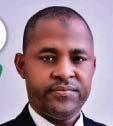
cost of food items in the country. Secretary of Ose Okwodu Market Traders Union, Mr. Onyejekwe Cyprian who represented the chairman of the union, Mr. Ikechukwu Umeanozie during the visit said the market was seen as the food basket of Anambra State and beyond, but lately the cost of items in the market had become unbearable.
Members
NEC, yesterday, ratified the nomination of six governors as members of the Board of Niger Delta Power Holding Company (NDPHC).
The governors, representing the six geo-political zones, were those of Borno, Katsina, Imo, Ekiti, Kwara, and Akwa Ibom states.
NEC noted the importance of NDPHC to the country's economic development in approving these nominations.
According to a release by media assistant to the vice president, Stanley Nkwocha, the 142nd NEC meeting saw the presentation of key updates and recommendations from various ad hoc committees.
Notable among them was the Ad Hoc Committee on Flood, Erosion, Drought and Desertification
Continued on page 33
and Abuja, were also prioritised. The president also approved full counterpart financing for Port Harcourt-Maiduguri Railway, to traverse Rivers, Abia, Enugu, Benue, Nasarawa, Plateau, Bauchi, Gombe, Yobe and Borno, as well as for the Ibadan-Abuja segment of the Lagos-Kano Standard-Gauge Railway, which will traverse Lagos, Ogun, Oyo, Osun, Kwara, Niger, Abuja, Kaduna, and Kano. According to the release, other items under the National Construction and Household Support Programme included one-off allocation to states and the Federal Capital Territory of N10 billion for the procurement of buses and CNG uplift programme. Others included delivery of N50,000 uplift grant each to 100,000 families per state for three (3) months; provision for labour unions and civil society organisations; and deployment of N155 billion for the purchase and sale of assorted foodstuff to be distributed across the country.
morning. There was nothing touching on plane or no plane, but I can tell you that when you hear stories such as the death of the Vice President of Malawi as a result of defective plane. You also hear news such as the death of the President of Iran as a result of defective aircraft. In fact, this time it was helicopter and all that. "We shouldn't ever dream and allow such to be our portion. It wouldn't be. The senate is very responsible. The National Assembly is very responsible. We will look into issues that will benefit the governance of the country, irrespective of anticipated blackmail
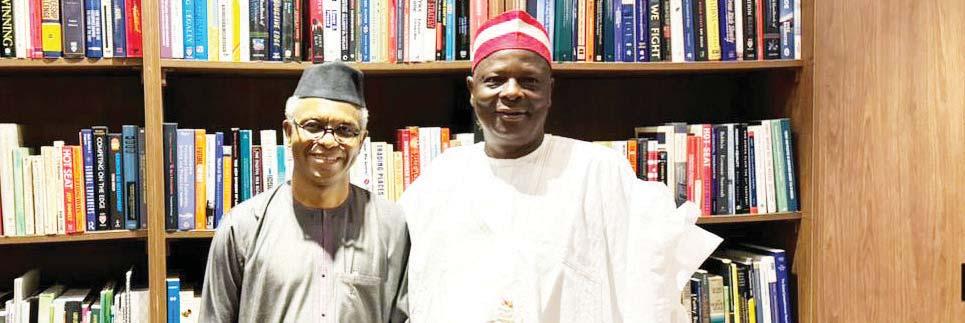
FG slashes conversion
Emmanuel Addeh in Abuja
The Presidential Compressed Natural Gas Initiative (PCNGI) yesterday disclosed that it had been able to mobilise $50 million in investment, more than any amount committed in the last 10 years combined.
Speaking during a stakeholders’ meeting in Abuja organised by Portland Gas themed: “Driving Sustainable Transportation: Accelerating CNG Adoption in Nigeria”, the Programme Director, Michael Oluwagbemi, said in December, President Bola Tinubu approved a series of fiscal incentives for the initiative.
According to Oluwagbemi, who was represented by the Head, Commercial, Tosin Coker, the incentives included waivers on import duties and value-added tax for CNG equipment, vehicles, and conversion kits.
In April, Oluwagbemi stated that his office also approved preferential
central gas pricing for autogas while the president announced that all Ministries, Departments and Agencies (MDAs) of the federal government must acquire CNG-enabled vehicles, providing a significant boost to the sector.
He added: “In December 2023, we hosted our first investor forum, which saw tremendous participation from companies now investing in the sector. I am pleased to report that well over $50 million has been mobilised directly by the sector since then, more than any amount mobilised in the last 10 years combined.
“We are also enabling ordinary Nigerians, particularly transport operators, to convert their vehicles. Last month, on May 29, we announced the Conversion Incentive Programme, making it easier for Nigerians to adopt CNG. This effort is supported by private sector partners, development funds, and banks, all eager to finance this transformative initiative.
“More importantly, in an effort to reduce the cost of public transport, we are catalysing the sector by supporting with the introduction of CNG buses and tricycles. In the next days you will witness these buses on the streets of Abuja, even as we also start to make conversion kits available at 50 per cent discount to the transport sector.”
He stated that developing the industry needs the active participation of the private sector, stressing that private sector investors need open, fair, transparent and predictable regulations to feel secure and ensure their investments can thrive.
To that effect, in collaboration with the Standards Organisation of Nigeria (SON), Oluwagbemi said the CNG programme has approved over 80 standards and procedures for the CNG conversion industry.
He added that the initiative has set an ambitious target of 1 million vehicle conversions by 2027 and commended Portland Gas Ltd, the organisers and hosts
for their foresight and courage in championing the cause, which he said truly embodies Nigerian solutions to Nigerian problems.
“We are determined not to repeat the mistakes of our forefathers, who exported raw resources and imported finished products. The CNG revolution has started. Let us get on board as there is no going back,” he noted.
Speaking during a presentation, the Managing Director of Portland Gas, Folajimi Mohammed, said that CNG tanks and systems are designed with robust safety features, making it a safe fuel option when installed by certified professionals.
He said that regular maintenance and inspection of the CNG system was recommended to ensure continued safe operation, saying it should include tank inspections, while qualified technicians should be used.
“The cost of conversion can vary depending on the vehicle model, size of the CNG tank, and the conversion
Emma Okonji
Economist and Chief Executive Officer of Financial Derivatives Company
Limited, Mr. Bismarck Rewane, has said the success and growth of the Nigerian economy would largely depend on small businesses, better cash flow management, and policies that support the growth of Small and Medium Enterprises (SMEs).
Rewane spoke yesterday at a webinar organised by Sparkle Digital Bank.
He challenged SMEs to re-organise their business processes and efficiently manage their cash flow, in order to reposition Nigeria in the global market.
Speaking on the theme, “Navigating Through Economic Uncertainty – From Surviving to Thriving,” Rewane said large enterprises, like Amazon and Microsoft, started as small businesses and grew to be among the top five global companies with current market
capitalisation of over $2 trillion. He added that Amazon started 30 years ago as a small entrepreneur, but grew large over the years because of favourable market policies. According to him, if the market is free from harsh policies, it will help small businesses grow into large business enterprises that will create employment.
Rewane discussed several factors that determine how small entrepreneurs could grow into large business enterprises.
He said small entrepreneurs in Nigeria could thrive to become large scale enterprises in the future if they managed their financial flows appropriately.
Analysing the Nigerian economy, Rewane said the economy had grown from 2.9 per cent in 2023 to 2.6 per cent in 2024, with a forecast to reach 3.5 per cent growth in 2025.
He said inflation rate had risen to 34 per cent, but explained that it would start dropping from next
year to as low as 19 per cent. He also said the value of the naira would appreciate in 2025, going by the current indices.
Rewane said in 2014, Nigeria was Africa’s largest economy, but explained that by 2017, Nigeria went into recession and another recession in 2020 after the Covid-19 global pandemic, and today Nigeria ranked as the fourth largest economy in Africa
According to him, “The goal of the current administration, led by President Bola Ahmed Tinubu, is to ensure that the Nigerian economy grows to $1 trillion by 2030, with an average growth rate of seven and eight per cent year-on-year, based on the investment in infrastructure, power, technology and service economy.
“Nigeria’s GDP in 2014, when Nigeria was rated the largest economy in Africa, was $568 billion, but dropped in 2024 because of devaluation of the naira
and low productivity in certain areas. However, 71 per cent of the total GDP in 2014 was made up of mainly household consumption, at an investment rate of 16 per cent, but as at today, investment rate has increased to 36 per cent, which is a sign that Nigerian economy can bounce back by 2030 at a growth rate of seven and eight per cent year-on-year.
“Because of fuel subsidy removal, the money in the economy has been taken away from consumers, and passed on to the government.”
Rewane added that small business could thrive in the future if there were favourable policies.
He highlighted four key indices that could precent small business from growing into large scale businesses as impact of inflation on businesses, impact of exchange rate, impact of interest rate, and impact of the declining value of the naira.
centre, but it typically ranges from N1.2 million to N1.5 million.
“The average rule of thumb is that for every litre of petrol, you can achieve 14km. In the case of CNG, 1SCM of gas would take you 18km. CNG-converted vehicles generally see a 10-20 per cent reduction in fuel efficiency compared to the original petrol version. However, the reduced fuel cost of CNG often offsets this mileage difference.
“You will be saving more than 77 per cent of your normal cost for
buying petrol when you run your car engine on dual-fuel,” he said. In her opening remarks, Marketing Officer of Portland Gas, Cynthia Ebuzor, said that with growing environmental concerns and the pressing need to reduce greenhouse gas emissions, CNG presents a viable and more clean alternative to conventional fuels.
“Together, we can drive the shift towards a cleaner, more efficient transportation that benefits our wallets, our health, and the health of our planet,” she added.
Emmanuel Addeh in Abuja
The Ministry of Petroleum Resources yesterday said it was adopting Artificial Intelligence (AI) in exploration and production processes to increase efficiency and reduce cost in the oil and gas sector in the country.
Speaking at a meeting with staff of the ministry in Abuja, the Permanent Secretary, Nicholas Ella, said the move was in alignment with the priority areas established by the current administration.
He stated that the cardinal objective of the engagement was to underscore the ministry’s effort to line up with the presidential directive issued in January this year to "unlock the energy sector and natural resources for sustainable development."
To understand the enormity and urgency of the tasks before the ministry, he urged officials to appreciate the vast energy needs of Nigerians - to power homes and industries.
“On embracing technological advancements, the ministry initiated programmes to integrate Artificial Intelligence (AI) in the oil and gas sector. AI was utilised to optimise exploration and production processes, enhance predictive maintenance of equipment, and improve decisionmaking through data analytics.
“By adopting AI technologies, we aimed to increase operational
efficiency, reduce costs, and minimise environmental impact, thereby positioning Nigeria's oil and gas sector at the forefront of innovation. Committees were established to oversee these initiatives and ensure their successful implementation,” he stated.
Ella stated that the federal government places a high premium on gas infrastructure development and supply, demonstrating this with the launch of the "Decade of Gas" programme and ensuring Nigeria expands the supply and distribution of gas as the major source of energy. According to him, many states of the federation are already latching onto the federal government’s gas expansion programme.
He stated that the government was significantly expanding gas infrastructure, including the AKK Gas Pipeline Project, the OB3 Gas Pipeline Project, and the ANOH project being undertaken by the Nigerian National Petroleum Company Limited (NNPC). These projects, he said, are geared towards ensuring an efficient and widespread distribution of gas; positioning Nigeria as a leading gas-powered economy.
According to him, the ministry will focus on diversifying the energy mix by investing in renewable energy projects, hydrogen development and enhancing the regulatory framework to attract private investments.

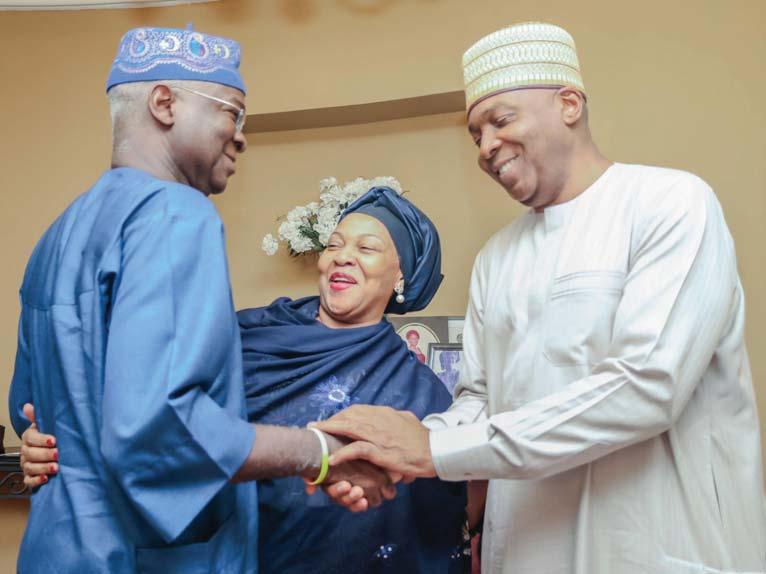
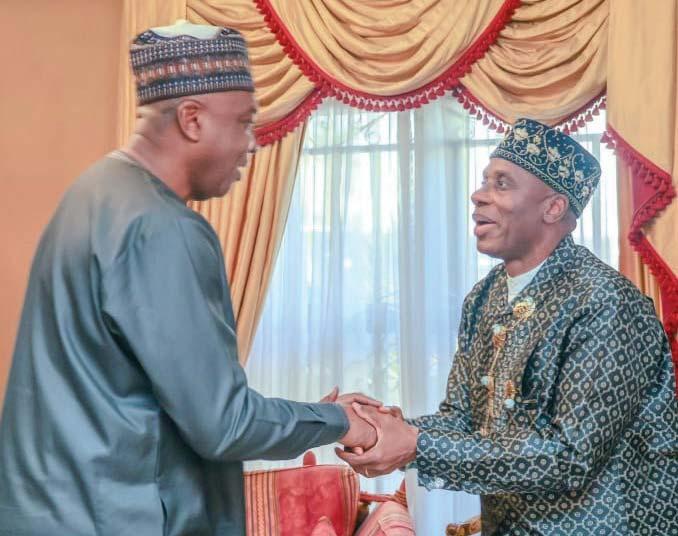
Emmanuel Addeh in Abuja
An oil surveillance operation backed by the Nigerian National Petroleum Company Limited (NNPC) has unravelled a huge illegal bunkering camp in Bayelsa, Niger Delta.
But in a major twist to the story, THISDAY learnt that identity cards found on the sites belonged to some oil pipeline subcontractors who were hired to watch over some of the assets.
The operation, it was gathered, took place during the early hours of Sunday, June 23, when the surveillance security operatives conducted patrols in the Okoroba axis of the Nembe local government area of the state and their mission led them towards the Elemuama area.
When the operatives moved to dismantle the illegal operation site, sources told THISDAY that they uncovered startling evidence implicating one of the subcontractors in massive oil theft.
It was further understood that the implicated subcontractor provides surveillance security services to Aiteo Eastern Exploration and Production Company (Aiteo), an oil exploration company belonging to oil and gas magnate, Benedict Peters.
The identity cards of the employees of the surveillance firm discovered on-site and other incriminating evidence have now raised several questions about the complicity of the company and its owner’s involvement in illicit oil bunkering activities in the region.
Also revealed during the raid were two additional unauthorised bunkering camps nearby, wherein the surveillance team seized and subsequently destroyed two large boats loaded with crude oil and a fibre boat.
They were eventually set ablaze to prevent further illicit activities since the boats could carry large quantities of oil, indicating the scale of the operation.
The coordinates of the seized boats were: N4°35’40.67814, E6°27’8.71992, N4°33’8"
E6°28,0 while those of the illegal bunkering camps were: 4°35’39.70776, N 6°27’5.30052, E 4°35’38.97882, N 6°27’7.04682.
Also fingered was one Livingston whose operations spread across Bayelsa State, specifically in the creeks of Nembe—Brass. He is said to own several illegal bunkering camps and controls a vast transportation network that transports illegal refined petroleum products to various parts of the state.
However, Livingston is also said to be the coordinator of all illegal bunkering groups that that have been complicit in vandalising the facilities of Aiteo Eastern Exploration and Production Company.
Persons with knowledge of the goings-on in the area stated that if the culprits are not arrested and prosecuted to serve as a deterrent to others, illegal bunkering may continue in the location.
Also said to have been fingered around Nembe and Brass was one person popularly known as “Organiser,” who is said to be orchestrating a sophisticated network that recruits and transports individuals to carry out the destructive activities.
“His continued evasion of justice underscores the need for stringent measures to halt systematic economic sabotage in the region.
“This collaboration has significantly impeded efforts to address and resolve the nation’s oil theft crisis. To safeguard the region from further environmental and economic harm, it is imperative to bring these figures to book, ” a source said.
He added: “How can the environment be free from all these illegal bunkering activities when people like Livingston are stealing, destroying and selling oil companies facilities and products?
“They should be arrested and prosecuted to serve as deterrent to others. His ways of operations are to recruit boys in cutting pipes and transporting them for sale through a well organised sophisticated dark transport network.
“People like ‘Organiser’ should not be allowed to vandalise oil facilities continuously but should be brought to book to free our society of a systematic economic sabotage,” the person with the knowledge of the activities in the location stressed.
Images seen by THISDAY confirmed that that one of the companies that own the ID cards has an incorporation number, with a number of their boats impounded by the surveillance group.
In October last year, the Nigerian Senate revealed that the country lost N2.3 trillion to crude oil theft during the year, with pipeline vandalism and oil
bunkering already precipitating a severe socio-economic crisis in Nigeria.
Meanwhile, in the past week, the NNPC reported a staggering 400 incidents of crude oil theft, with the bulk of them occurring in the Western region of Rivers and Bayelsa states, with 265 cases. Most of the incidents had to do with unauthorised pipeline connections, vandalism, oil spills, and unlicensed storage sites.
From June 15 to June 21, 2024, the NNPC in a documentary, said it identified 165 illegal refineries, 69 unauthorised connections, 15 acts of vandalism, eight oil spills, and 19 illegal
storage locations. Additionally, there were 74 vessel Automatic Identification System (AIS) infractions, among other violations, the national oil company said.
“Measures such as the complete confiscation of assets and freezing all accounts using Bank Verification Numbers (BVNs) will be a highly effective course of action by the Economic and Financial Crimes Commission (EFCC) and relevant bodies as Nigeria seeks to combat oil theft. We must ask the EFCC what steps they are taking to address this situation,” the concerned source stated.
For several years, oil producers
have lamented the debilitating effects of pipeline vandalism, crude theft, and illegal crude trafficking.
Some of the worst-hit oil companies have recently begun the transportation of their crude through significant arteries like the Nembe Creek Trunk Line (NCTL). The disruptions not only lead to production downtime and loss of crude oil, but also incur additional expenses for facility repairs.
Despite numerous alarms raised by various entities and the government, the crimes appear to continue to benefit the perpetrators as a result of their largely unchecked activities.
Adibe Emenyonu in Benin-City
The Edo State Investment Promotion Office (ESIPO)-Ease of Doing Business Secretariat recently held a strategic meeting with representatives from the Sustainable Trade Initiative (IDH), Netherlands, to solidify their partnership and explore ways to maximize the impact of initiatives geared towards a green economy, with ESIPO's one-stop-shop playing a central role.
The meeting, held in Benin City, saw discussions centred on maximizing the impact of IDH's programmes in the state, particularly the National Initiatives for Sustainable and Climate-Smart Oil-Palm Smallholders (NISCOPS) programme.
Building on the achievements of Edo-NISCOPS I, the new €3 million, five-year programme (NISCOPS II) funded by the Netherlands and UK Governments aims to further support sustainable palm oil production in Edo State.
This will be achieved through collaboration with smallholder farmers and public-private partnerships (PPPs) spearheaded by ESIPO's one-stop shop. A significant portion of the investment seeks to attract private sector co-funding, further strengthening PPPs within the state.
Looking ahead, key areas of collaboration for a Green Economy in Edo were suggested by the Managing Director of ESIPO, Mr. Kevin Uwaibi.
According to him, "I commend the longstanding partnership with IDH, dating back to 2019. The "Analysis of Key Investment Opportunities in Edo State Oil Palm Landscape 2020" facilitated by ESIPO with IDH's support, was a great achievement. "
Uwaibi emphasized several areas for enhanced collaboration to amplify communication and visibility of IDH's programs, ensuring sustainable empowerment for smallholder farmers.
These areas included:
Branding the one-stop-shop with a focus on showcasing Edo's commitment to a green economy, with the one-stopshop providing a seamless documentation process for potential investors seeking to fast-track their business documentation and licences; capacity building training for the one-stop shop's liason officers from the relevant MDAs, ensuring efficient support for businesses entering the green space.
Others are support for the passage of the ongoing land administration bill, a key factor for attracting investment in agriculture; and donor coordination meeting in facilitating a meeting to improve communication and visibility among stakeholders regarding IDH's activities and how they connect with the one-stop shop's services.
Uwaibi also noted: "We will need to ensure all relevant MDAs are on the same page on this. Hence, a collaborative effort with the Ministry of
Environment and Sustainability to ensure messaging aligns with the state's overall green agenda. We will leverage the resources of the Edo State Oil Palm Programme (ESOPP); Forestry Commission, and the Ministry of Agriculture and Food Security for maximum impact.
In his statement, Mr. Ogwu Abraham.D., IDH's Senior Program Manager leading the delegation, expressed IDH's willingness to collaborate and translate these discussions into tangible results in the coming weeks working with ESIPO and key Ministries, Departments and Agencies (MDAs). This strengthened partnership between ESIPO, IDH, and various MDAs holds significant promise for a green economy for Edo State. Green economy is an economic system that prioritises both economic growth and environmental sustainability. With the one-stop shop at the forefront, this collaboration is poised to derive environmental, economic, and social benefits.
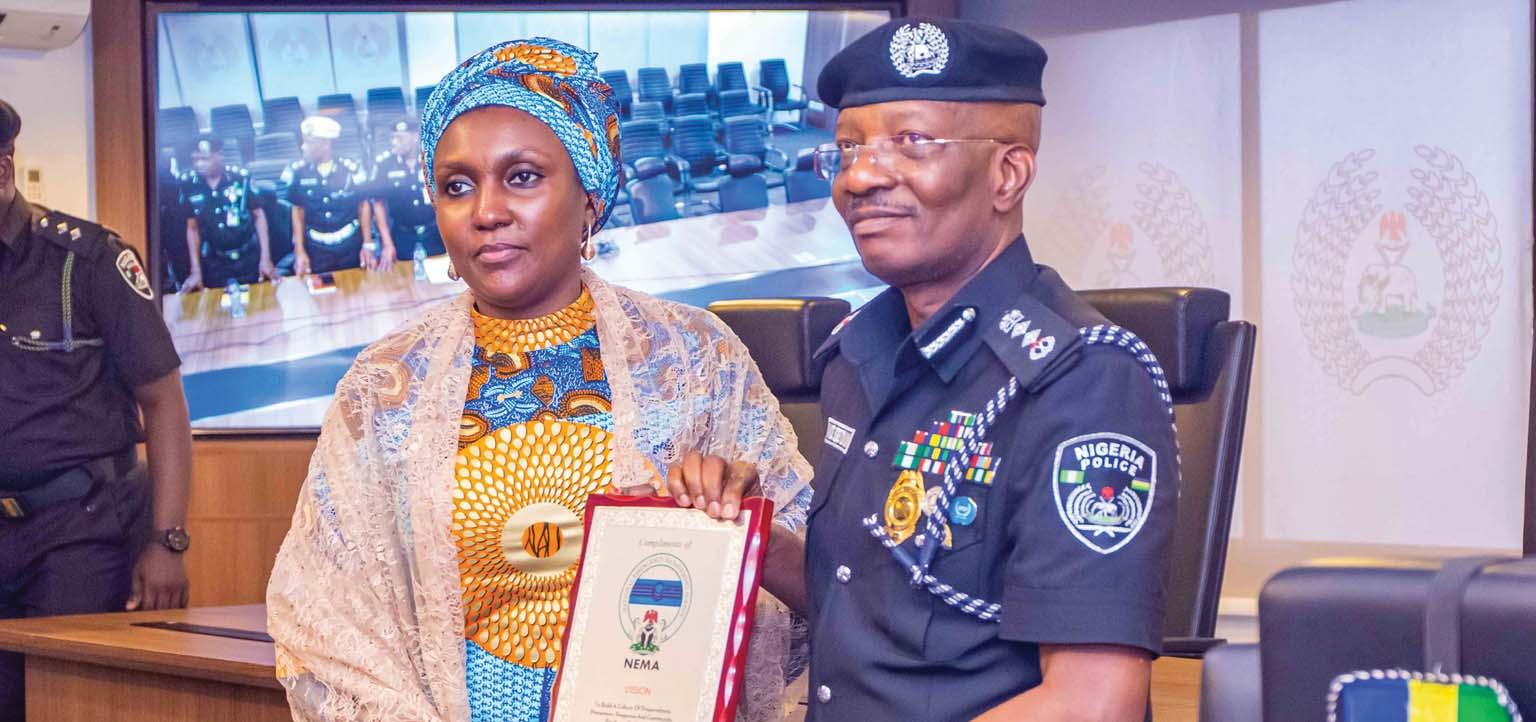
L-R: Director General, National Emergency Management Agency (NEMA), Mrs Zubaida Umar presents a souvenir to the Inspector General of Police, IGP Kayode Egbetokun, during a visit by the Director General of NEMA as part of broader consultations with key stakeholders and partners to enhance service delivery at the Force Headquarters in Abuja on Tuesday
Michael Olugbode in Abuja
The Defence chiefs of countries in Economic Community of West African Countries (ECOWAS), yesterday, converged on Abuja to deliberate on the proposed $2.607 billion budget for the activation of the subregional standby force.
The standby force is meant to contain terrorism and unconstitutional change of government with the region planning to raise a 5,000 standby force.
The region, alternatively proposed a budget of $481,459, 335 for 1,650 standby force, with the meeting organised to decide
which plan to be implemented. Nigeria’s Minister of Defence, Mohammed Badaru Abubakar, disclosed this at the opening of the meeting of the region's Minister of Defence and Finance on modalities for financing and equipping the deployment of ECOWAS counter-terrorism force.
President of the ECOWAS Commission, Omar Alliou Touray, said the move became necessary as the region had become the epicentre of terrorism.
Speaking on the meeting, Abubakar said the gathering was driven by the urgent need to consider the financing
options in the memorandum to be presented by the ECOWAS Commission for deploying the proposed regional force.
He lamented that the region was threatened by insecurity and grave humanitarian challenges, adding that the standby force arrangement had the backing of the Authority of ECOWAS Heads of State and Government.
"Our gathering here today is driven by the urgent need to consider the financing options in the memorandum to be presented by the ECOWAS Commission for deploying the proposed regional force. The financial implications of these proposals are significant.
"The overall estimated cost is $2,606,695,640 per year for a brigade of 5,000 men. The alternative proposal is for a brigade of 1,650 men, with an estimated annual cost of $481,459,335. These figures underscore the gravity of the task before us and the necessity of a robust and sustainable resource mobilization strategy.
“It is therefore imperative that we critically review the options considering.”
On his part, Touray decried the damage caused to the region by terrorism, which included the large scale of Internally Displaced Persons, loss of territories and others.
The Olympus Marino Deck of the National Association of Seadogs (NAS), Pyrates Confraternity, in collaboration with the National Drug Law Enforcement Agency (NDLEA) and Neuro-psychiatric Hospital yesterday, took campaign against illicit drugs intake to secondary schools, market places and motor parks in Port Harcourt, the capital of Rivers State.
The campaign was in commemoration of the 2024 World Day Against Drug Abuse and Illicit Trafficking, which is held every June 26.
Addressing students of Community Secondary School (CSS) Mgbuoshimini, Rumueme, Obio/Akpor, Kennedy Barango, Capoon, Olympus Marino told them that indulging in drug abuse will negatively affects their moral, social and psychological reasoning. He said they chose secondary schools for this year's campaign with the aim to catch them young, decrying the level of negative impact of drug abuse on the youths and society.
Speaking with journalists during the campaign, Barango said "Olympus Marino in collaboration with the Nigerian Medical Association, Neuro-psychiatric Hospital, Port Harcourt and NDLEA, decided to mark this World Day Against Drug Abuse and Illicit Trafficking today, and we have chosen to come to Community Secondary School, Mgbuoshimini to sensitise the students on the danger of the act. On the theme for this year's celebration, "The Evidence is clear: Invest in Prevention", he said "we believe that the best way to tackle this menace is to take it to the primary source of this abuse, and the philosophy is catch them young. In engaging the students, we will definitely curb the menace from the very root".
He said: "We are giving them enlightenment to begin to drift from the act at an early age. The impact of the menace in society is far reaching. It is the foundation of criminality in the society. We have increased rate of mentally deranged people because of use of illicit drugs abuse".
Barango added that the campaign is a fight for everybody in the society,
saying "Our encouragement is for everybody to pick up this campaign if they have dropped it and speak on prevention of use of illicit drugs".
On her part, a staff of NDLEA, Esther Ozurumba, advised the students to desist from being trapped in the menace of drug abuse, noting that the Chairman of the agency, Brig. General Mohammed Marwa (rtd.) has taken seriously the fight against the act across the country.
Also speaking, a mental health nurse with Psychiatric Hospital, Port Harcourt, Mr. Kaibe Nelson, said statistics revealed that over 14.6percent of Nigerian youths are involved in excessive alcohol intake, stressing that "in Rivers State because of the volatile nature of the area, statistics proved that over 30 percent of youths are down with illicit drugs ".
Nelson regretted that drug abuse has made so many of the young people to get involved in criminal activities like, kidnapping, killings, homicide and other vices.
He said: "As someone who works in the psychiatric hospital, for every young person between the ages of 15-45 that comes to the hospital we noticed that six out of every 10
patients admitted are down with drugs."
Listing some of the negative impacts of drug abuse, Nelson said: "Every human being has a sense of reasoning because man in nature is made of different components, but we are talking of the brain. The psycho active elements in these illicit drugs they use, also affects the central nervous system.
"Some of the harmful effects include that those who engage so much in toxic element or alcohol, it damages their kidney, proliferate the free radicals in their system, they face challenges like cancer, anemia, lungs, others".
Meanwhile, the principal of CSS Mgbuoshimini, Dr. Chijioke Amadi, has commended the groups for the enlightenment programme. He said "The programme was rich; the students were also happy and I am sure there will be a positive change at the end of the day".
THISDAY observed also that the enlightenment programme was taken to markets places and motor parks in Port Harcourt, where the group responded to questions raised by traders and commercial drivers on drug abuse and illicit trafficking.
“A huge humanitarian crisis with millions of internally displaced persons and refugees. You will all recall that some member states have lost control of important parts of their territories to terrorist groups.
“According to the 2024 Global Terrorism Index, the epicentre of terrorism has shifted from the Middle East and North Africa into the sub-Saharan African region largely in the Sahel region.”
The Lagos State Commissioner for the Environment and Water Resources, Tokunbo Wahab on Thursday said Government is determined to proffer a permanent solution to flooding in Agungi and environs through the construction of a bigger collector along Agungi Road expected to bring relief to residents in that axis of the State.
The commissioner who made the assertion while speaking with the press after a thorough assessment of the area following the flooding incidents experienced as a result of the 48hrs continuous rainfall experienced in the state added that the construction of a bigger collector became necessary along Agungi Road to preventing flooding in the area
The commissioner, accompanied by the Permanent Secretary, Office of Drainage Services, Engr. Mahamood Adegbite, alongside Heads of Agencies and Directors in the Ministry visited Freedom Park Road / Kusenla Junction, Alpha Beach road said that Emergency Flood Abatement Gang were deployed while the rain was ongoing to clear the debris in the collector at the mentioned areas to allow free flow of storm water.
Wahab mentioned that during the tour a minor encroachment was observed along Alfa Beach behind the Jame Hope University where a blockage was discovered saying that from Saturday full excavation will start from Alpha Beach to Conservation Road.
The commissioner said the construction of a new collector at Agungi Road is just one of the several which the state government would construct to address perennial flooding issues in the identified areas
"At Agungi, we have agreed that the area needs a new collector that will take the water from the road into the lagoon; the collector they have there is too small to serve the volume of storm water on the Agungi Stretch," he said.
According to him, after the construction of a new collector, Ministry of Works and infrastructure will also be invited to raise level of road.
He recalled that the flooding issue on System 156 (Upstream) Alpha Beach Road has been a recurring problem for quite a while stressing that the dredging of the channel would commence immediately towards making the state flood free.
Wahab restated that people were discovered to have built to block System 156, emphasizing the state will not fold its hands and allow some people, for profit making sake, to destroy public infrastructure provided by individuals and government.
"Like we have always been saying, people built to block System 156 and some families on this corridor also obliterated with developers to block System 156," he said.
The commissioner vowed that the State Government will continue to ramp up enforcement operations across the state to reclaim setbacks and drainage alignments towards preventing flooding.
He appealed to residents to be whistle blowers for government, saying government cannot be everywhere, adding that people are used to having bad behavioral pattern and government agencies and ministries will join forces to put a stop to these actions by enforcing our laws.

L- R: Executive Director, VFD Group, Mr. John Okonkwo; Company Secretary, Gbeminiyi Shoda; Chairman, Mr. Olatunde Busari (SAN); Group Managing Director/CEO, Mr. Nonso Okpala; and Executive Director, Mr. Adeniyi Adenubi, during the 8th annual general meeting of VFD Group in Lagos...yesterday
The federal government has reaffirmed its commitment to eradicating child labour by 2025, in line with the Sustainable Development Goals (SDGs).
The government also pledged to align its efforts with the globally adopted 2030 Agenda for Sustainable Development, joining 193 UN member states in a collective commitment to
combat modern slavery, human trafficking, and the worst forms of child labour, including the use of child soldiers.
Minister of State for Labour and Employment, Hon. Nkeiruka Onyejeocha, made the commitment on Thursday at the third National Children's Conference on the Elimination of Child Labour, held in Abuja.
Onyejeocha appreciated the support of international partners,
including the International Labour Organisation (ILO), the Netherlands, and US, in the fight against child labour and forced labour.
She said, despite numerous challenges, Nigeria had made significant progress in addressing child labour, including the ratification of ILO conventions and the establishment of the National Steering Committee on Child Labour.
The minister acknowledged the
alarming statistics on child labour and forced labour, but expressed optimism that with collective efforts, Nigeria could achieve its goal of ending child labour by 2025.
She stated, "It is a global menace that has proven to potentially hinder the development of children, leading to a lifelong physical and psychological damage, and keeping the children out-of-school, thereby perpetuating poverty across generations.
Alex Enumah in Abuja
The presidency has charged members of the legal profession to proffer legislations that would enhance the ease of doing business and by extension grow the nation’s economy.
The charge was made Wednesday night by the Special Adviser to President Bola Tinubu on Ease of Doing Business, Jumoke Oduwole.
She was speaking at the opening of the Nigeria Bar Association (NBA) Session on Business Law (SBL), NBA-SBL’s 18th Annual International Business Law Conference 2024 held in Abuja.
Oduwole, who noted that the theme of the conference, “Survival and Thriving”, was apt, reassured on the commitment of the present administration’s efforts at improving Nigeria’s business climate.
She listed some of the efforts to include; the ongoing regulatory and subnational reforms aimed at creating a conducive environment for businesses.
Other initiatives and legislations are; the omnibus bill, which was started from the scratch; discussions with the National Assembly Round Table; the Business Facilitation Act; the first Executive Order: EO1Transparency and Efficiency in
Business Environment.
She said: “When the business climate is difficult, we are determined to ensure the implementation of President Tinubu’s vision. I am pleased to say that regulatory and subnational reforms are underway, and we are actively engaging stakeholders”.
The presidential aide subsequently appealed to lawyers to utilize the newly passed legislation to improve business practices and contribute to a thriving business community.
She added that: “We are committed to making a businessfriendly environment. Lawyers have a crucial role in using the
legislation passed to improve business. Continue to play your part.”
In a welcome address, Chairman of the NBA-SBL, Dr. Adeoye Adefulu, stressed the importance of engaging with the right people to survive and thrive in the business environment.
The chairman who observed that focusing on survival is crucial for achieving long-term success, encouraged participants not to be afraid of the challenges of survival and thriving.
The event started with a lively art exhibition, delighting participants, and also featured distinguished speakers and industry leaders.
"To address this challenge, Nigeria has made giant strides, including the ratification of the ILO Conventions 138 on the minimum age for work, 182 on the worst forms of child labour, Conventions 29 and 105 on the abolition of forced labour.
"In line with the conventions, Section 34 of the 1999 Constitution of the Federal Republic of Nigeria, as amended, prohibits forced and compulsory labour for any employer, which also define penalty fees, fines, imprisonment, or a combination of these sanctions for any employer found guilty.”
Onyejeocha listed measures being taken by government to address child labour to include review and validation of all relevant laws, regulations and policies key and instrumental to the elimination of child labour, National Policy on Child Labour, and National Action Plan for the elimination of Child Labour for an implementation period of five years; and Compendium of Legal Framework on the elimination of Child Labour and Protection of children in Nigeria.
According to Onyejeocha, the federal government is also reviewing the labour standard bill to mainstream child labour, with special consideration on the adoption of 15 years as the minimum age for work/ employment.
She added that government had
established the National Steering Committee on Child Labour and State Steering Committee on Child Labour across the 36 states of the federation.
"Nigeria, through the Federal Ministry of Labour and Employment, is a Pathfinder Country of Alliance 8.7 – committed to achieve the Sustainable Development Goals, target 8.7, to end child labour in all its forms by 2025, and forced labour and human trafficking by 2030," she said.
ILO Country Director for Nigeria, Dr Vanessa Phala, called for fasttracking of the passage of legislation against child labour. Phala, who was represented by ILO Project Coordinator on Child Labour, Dr. Agatha Kolawole, at the conference, also called for the passage of the Labour Standard Bill, as its passage would completely eliminate the issue of child labour in the country.
Director of Inspectorate Department, Federal Ministry of Labour and Employment, Mrs Olaitan Olaolu, said the conference was apt, coming at a time of growing national and international pressure towards the elimination of child labour.
Head of Abuja Corporate Office, Nigeria Employers Consultative Association (NECA), Mrs Judith Tietie, said NECA would continue to educate employers on the need to avoid employment of children in the working environment.
The Abia State House of Assembly has finally constituted the State Assembly Service Commission (ASHASC) as part of the process to attain full autonomy for the legislative arm of government.
Speaker of the House, Rt. Hon. Emmanuel Emeruwa, announced the birth of the commission, Thursday, at a news conference in Umuahia, saying that the seven members of the body were screened and confirmed by the House two days ago.
He said that the birth of the Assembly Commission had passed
through process of struggles over the years causing industrial disharmony between government and members of the Parliament Staff Association of Nigeria (PASAN).
"The House of Assembly Service Commission in Abia State is now established," he declared to the joy of the executives of Abia PASAN, who were on hand for the press conference.
"It is a step towards full autonomy and independence of the legislature," the Speaker added. He stated that with the issue of administrative autonomy of the legislature now settled, "the next thing we're waiting for is to get financial autonomy, which we're
very optimistic will happen in this administration".
The Abia Speaker stated that the Conference of House of Assembly Speakers has already "mapped out strategies to achieve financial autonomy" for state legislatures, adding that "the journey has started".
But he was quick to acknowledge that attaining financial autonomy won't be a tea party because it is among the powers state governors wield and "it is not easy to ask governors to relinquish some of their powers".
The Speaker emphasised the need for the legislature to fully stand on its own, saying that "it is the engine room of government" as it is the
body vested with constitutional powers to make approvals for government expenditures.
Emeruwa recalled the tortuous journey of the Service Commission to become a reality since the inception of the present democratic dispensation.
He said that the Sixth Abia House has now taken the bull by the horns by implementing the law on the Assembly Commission, which had been dormant since it was signed in 2019.
He said: "The Sixth (Abia) House tried and passed the bill into law but it was not signed. The Seventh House passed it into law and it was signed but not implemented".
The Assembly Commission is composed of seven members with Hon. Uche Maduako, a former state and federal lawmaker as chairman while six other members comprise two persons selected from each of the three senatorial zones of the state.
The Deputy Speaker of the House, Rt. Hon. Austin Okezie, noted that "everything was done right in accordance with the (enabling) law" in the establishment of the Assembly Commission.
In his remarks, the legislative liaison officer of the governor, Hon. Luke Ukara Onyeani, who was a member of the Sixth Abia House, said that he was happy
the Eight Abia House has done its predecessors could not do. He said that in the Sixth House "we fought hard to pass the bill (and get it signed into law) but it never happened" despite the pressure exerted by PASAN. The former state lawmaker lauded Governor Alex Otti for keeping to his promise to grant full autonomy to the state legislature and commended the leadership and members of PASAN for their patience.
Chairman of Abia State Chapter of PASAN, Comrade Sunday Kalu, said that "it is a thing of joy" that the struggles of the union has finally paid off as the Assembly Commission has come to be.
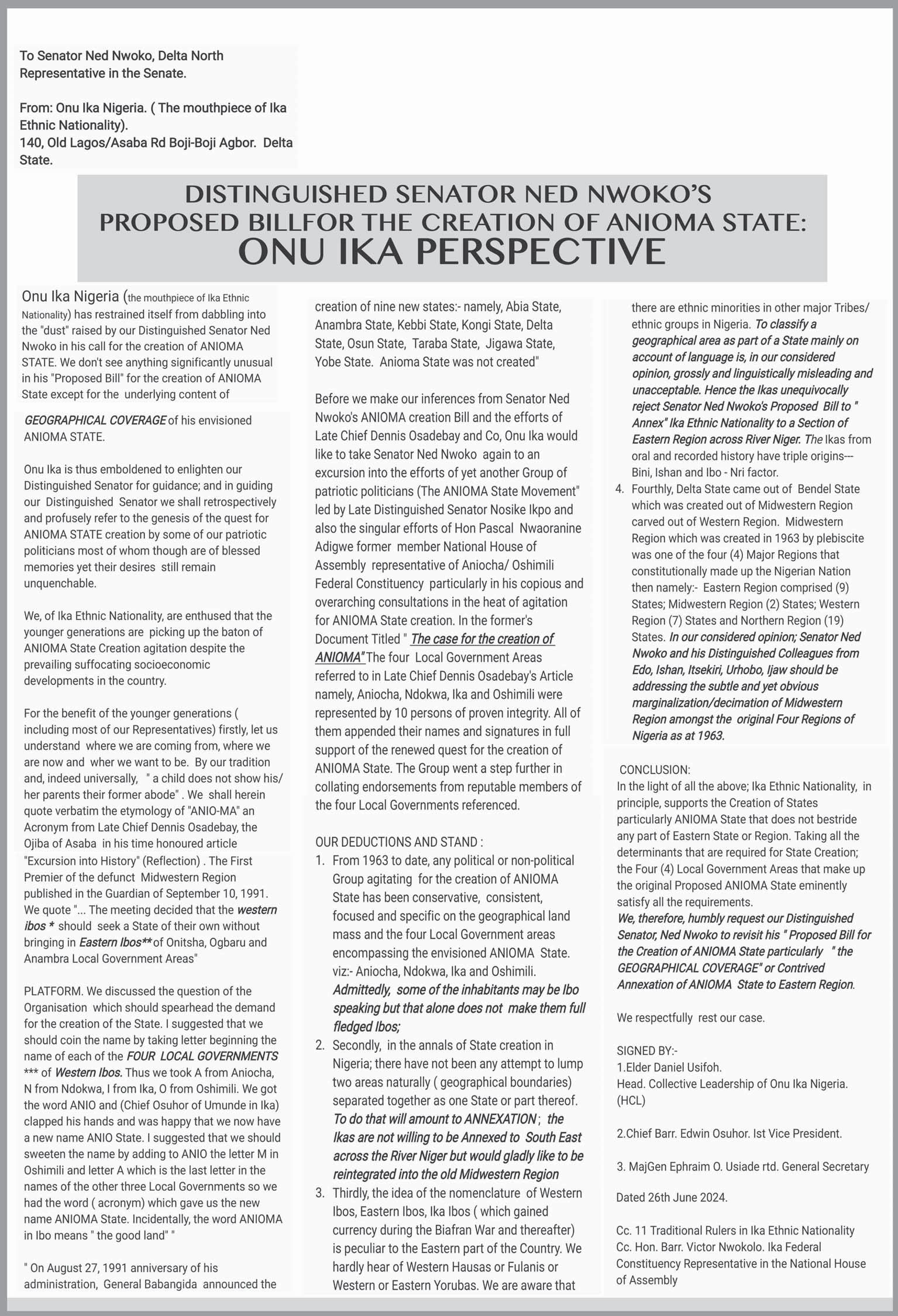
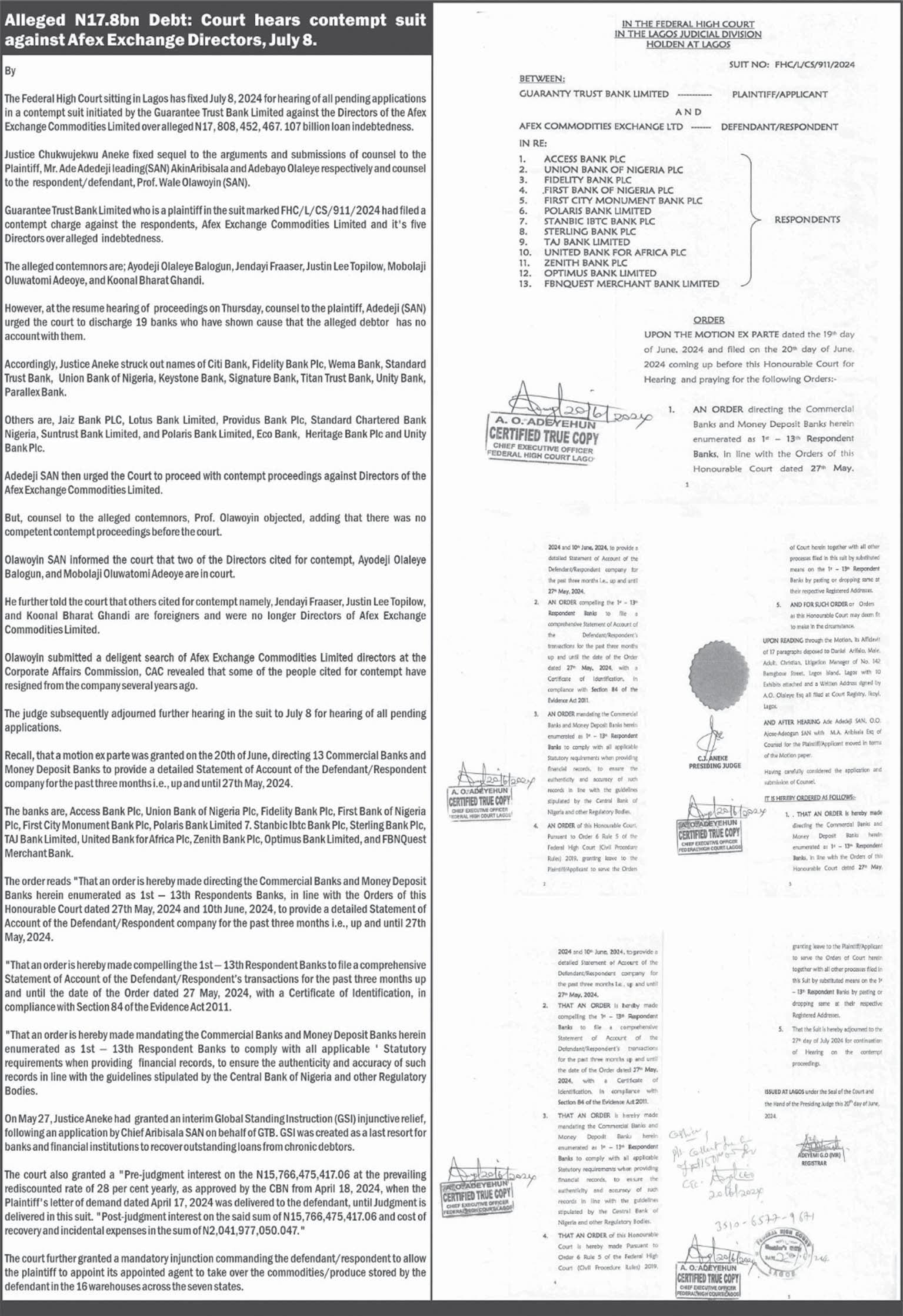

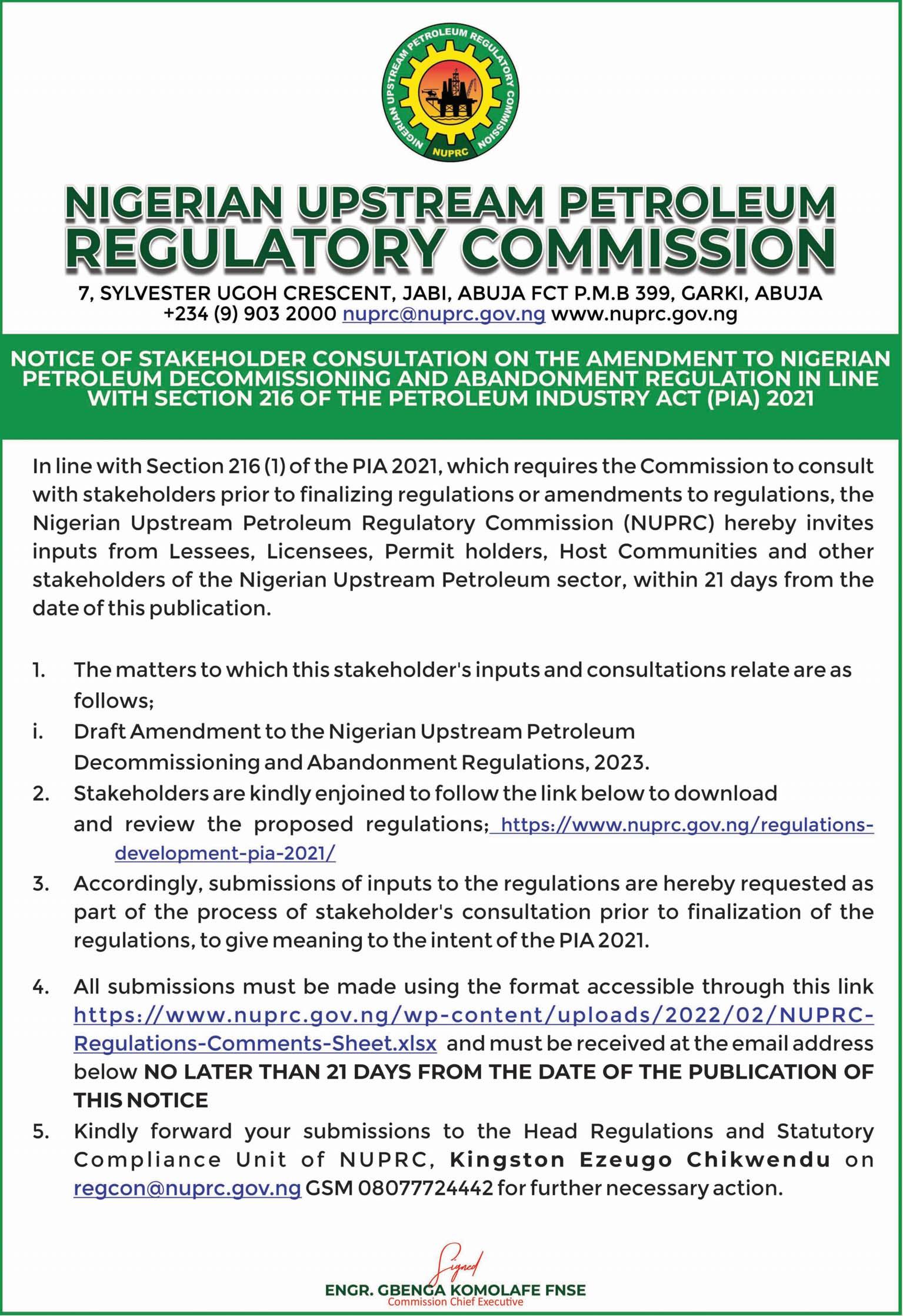
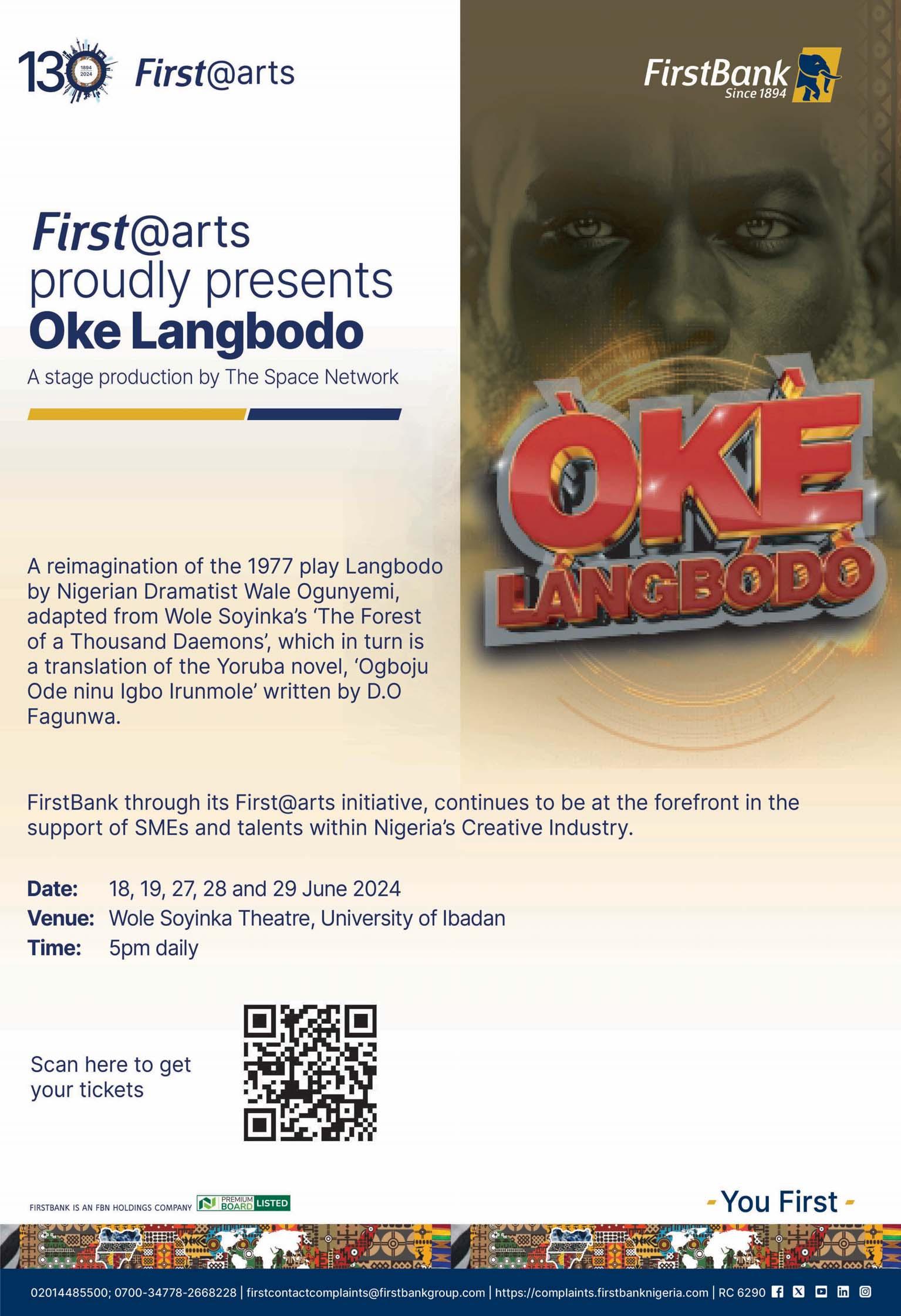
08033025611 SMS ONLY

Hammed Shittu writes about the array of political gladiators in Kwara State in deft moves to succeed Governor AbdulRahman AbdulRazaq come 2027.
As the 2027 general election is fast approaching, political activities, although surreptitiously, have kicked off across the three senatorial districts of Kwara State.
The activities, according to THISDAY checks, might not be unconnected with the move to succeed Governor AbdulRahman AbdulRazaq who will be completing his eight years as the state governor by 2027.
The All Progressives Congress (APC) had recorded a 100% victory in the 2019 general elections in the state by defeating the then ruling Peoples Democrstic Party (PDP).
The APC, despite obvious crises, repeated the same feat in the 2023 elections.
Before the 2023 polls, APC major stakeholders, notable among who were the then Minister of Information, Lai Muhammed; the former state chairman of the party, Hon. Bashir Omolaja Bolarinwa, then Senator representing Kwara Central, Dr. Suleiman Oloriegbe; then House of Representatives member representing Ilorin East and South Federal Constituency, Hon. Abdulganiyu Olododo; then House of Assembly member representing Offa Local Government, Hon. Saheed Popoola, and former Chairman, Federal Character Commmission, Prof AbdulRaheem Oba, among others, had engaged in open confrontation with the governor.
But, it will be noted that, some of the aggrieved members had since returned to the group of Governor AbdulRazaq.
The opposition PDP zoned its governorship position to Kwara North for what the party said “for equity, justice and fairness”. However, according to THISDAY findings, the emergence of Shuaibu Abdullahi Yaman, a known APC member until a few days to the PDP governorship primaries, as the party’s standard flag bearer created more troubles for the party, as most gubernatorial aspirants may not have been committed to his victory.
As AbdulRazaq rounds off his second term, THISDAY checks revealed that the two major parties in the state, the PDP and the APC, have started taking stock of their outings with the intent of restrategising to outwit each other.
The opposition PDP, led by former Senate President Bukola Saraki, has been working round the clock to change the narrative of the aftermath of the 2023 general elections and also to ensure that the party achieves greater success than the 2019 and 2023 elections in the state.
The party has, therefore, evolved a masterplan that the leadership believes might help the party achieve more success in 2027 as the era of zoning elective offices in the party might have been shelved for another time.
According to the party in a statement issued by its publicity secretary, Mr. Olusegun Olusola Adewara (Sholymen) all PDP members in the state are now free to seek elective posts without recourse to where they hail from so as to ensure equity, justice and fair play in the political game.
For the ruling APC led by Governor AbdulRazaq, it is believed that it was high time the people of Kwara North senatorial district had the taste of leadership of the state in 2027 for justice and equity to prevail in the state.
The last time the zone tasted governance was during the ill-fated Third Republic 1992 when Senator Shaaba Lafiaji ruled the state under the defunct Social Democratic Party (SDP) after which successive leadership of the state has been coming from the central and the southern senatorial districts.
THISDAY checks revealed that Kwara Central produced late Mohammed Lawal (1999-2003), former governor Bukola Saraki (2003-2011), the incumbent Governor AbdulRahman AbdulRazaq (2019 till date) while former governor, Cornelius Adebayo ( October 2003 - December 2003) and Dr Abdulfatah Ahmed (2011-2019) came from the South.
Stakeholders, especially some traditional rulers who have been recently accused of being covertly involved in political merchandisation in the state, have been scouting for an acceptable candidate from Kwara North.
In the ruling APC, the incumbent Speaker of the State Assembly, Rt. Hon. Yakubu Danladi-Salihu is, according to a dependable source, favoured by the sitting governor to clinch the governorship ticket.
Also, the serving Senators representing Kwara Central Saliu Mustapha and his counterpart from Kwara North, Sadiq Umar and the former member representing Ilorin West/Asa federal constituency, Hon. Mashood Mustapha, are all being touted to throw their hats into the ring.
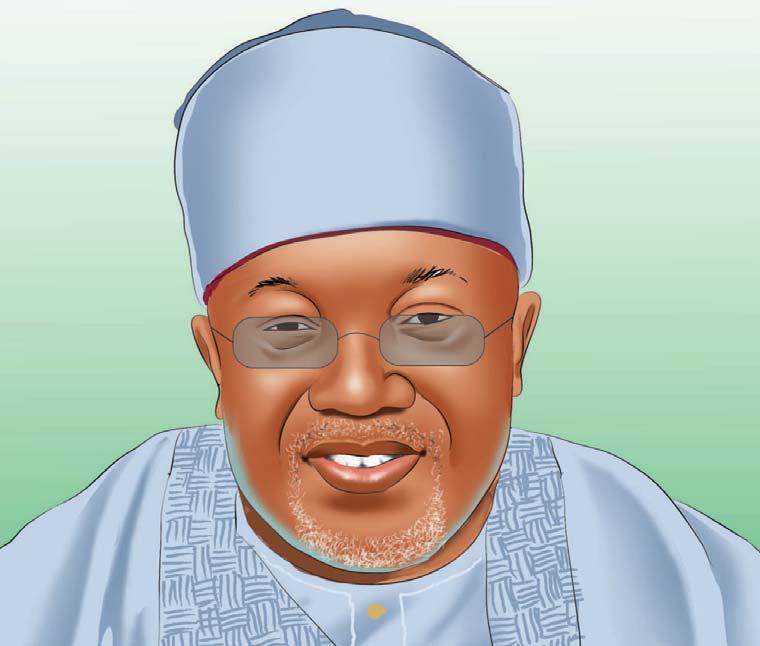
Danladi-Salihu, a youth and a new breed politician savouring his maiden political exposure in the state chamber, who is rumoured to have the backing of Governor AbdulRazaq, is from the north senatorial district of the state. The zone had in the past made several attempts to realise the goal.
Various political summits had been convened by the people of the area especially traditional rulers and the political class to work as an entity to enable the zone get the governorship position come 2027.
However, it seems there is alleged lack of unity of purpose in the zone as this manifested at the 2023 polls when the opposition PDP fielded a northern candidate, Alhaji Shuaib Abdullahi from Edu local government but all efforts to ensure the people of the zone work together for Abdullahi’s victory yielded
no positive result.
Political pundits in the state believe that, if care is not taking, this perceived lack of unity of purpose in the zone may also hinder the emergence of a Kwara North candidate come 2027.
Aside this, some residents who spoke with THISDAY recently unanimously vented their anger and determination to turn their backs on the APC because of what they regard as unfriendly polices of the government at both state and federal levels.
The Speaker would also need to work with other tendencies in APC as there are groups in the party that believe they have been sidelined and abandoned shortly after the successful outing of “O To Ge”(enough is enough) movement from 2019 to date.
Chairman, Senate Committee on Agriculture
and Rural Development, Senator Saliu Mustapha is one of the governorship contenders. Though he is yet to declare his intention for the plum position, his body language portrayed him to be interested in the governorship race.
Mustapha, who is the Turaki of Ilorin, remains an experienced politician of almost over 30 years. He was once former deputy chairman of the defunct Congress for Progressives Change (CPC). His political influence assisted the ruling APC to win the 2023 general elections in the state. His philanthropic gestures remained a major tool for the lawmaker. He has been a kind and humble personality that is loved by the members of APC and even in the other opposition political parties in the state.
The Senator representing Kwara North senatorial district, Sadiq Umar, a pharmacist by profession, is quoted to have showed interest in the 2027 governorship position.
Consequently, he was said to have formed his support group that has been moving round to garner the APC leaders and members in the state for his gubernatorial ambition.
Another aspirant is the former lawmaker representing Ilorin West/Asa Federal constituency, Hon. Mashood Mustapha, a business mogul and astute politician. He was one of the APC gubernatorial aspirants in the build-up to the 2019 general elections in the state. He has the capacity and the tenacity to vie for the plum position but his recent face-off with Governor AbdulRazaq on the award of N17.8 billion Kwara Hotel rehabilitation contract and the demolition of his business arena on Sulu-Gambari Road, Ilorin have posed serious question to his ambition.
Mustapha fondly called MM by his admirers is a politician of note that cannot be ignored in the political calculations of the state when the time comes.
In the opposition PDP, the aspirants include the former Speaker of the State House of Assembly, Professor Ali Ahmad and the present Director General of the National Institute for Legislative and Democratic Studies (NILDS), Professor Suleiman Abubakar. These aspirants are from Kwara Central Senatorial District of the state.
Though, there is another aspirant from the zone - Engineer Sulaiman Bolakale Kawu Agaka - who is yet to declare either as an aspirant or member of any political party.
NOTE: Interested readers should continue in the online edition on www.thisdaylive.com
Yinka Oyebode writes that Governor Biodun Oyebanji of Ekiti State has changed the narratives of governance in the state through comprehensive welfare packages for the populace.
Ekiti State Governor, Mr Biodun Oyebanji, has disclosed that his government has been able to change the narratives in the state by being strong on welfare issues and creating economic opportunities for the citizens.
These, he said, has impacted positively on the standard of living of the residents as well as improve on economic development programmes of his predecessors.
Oyebanji who stated these during an engagement with Ekiti Stakeholders in Abuja on Tuesday, said his administration in the last one and half years has led the state with a deep sense of responsibility, guided by the fear of God and principle of transparency and accountability .
The Governor added that every money that comes into the state’s coffers has been spent transparently and prudently, adding that his government has paid over 17 billion naira as pension, gratuity, car, and housing loans to Ekiti public servants since he took over as Governor of the State.
The Stakeholders meeting had in attendance Ekiti indigenes who are in senior cadres in the Federal Civil service, top officials of Federal Parastatals and agencies, as well as para military organisations .
Also in attendance were members of the Ekiti Caucus of the National Assembly; and some
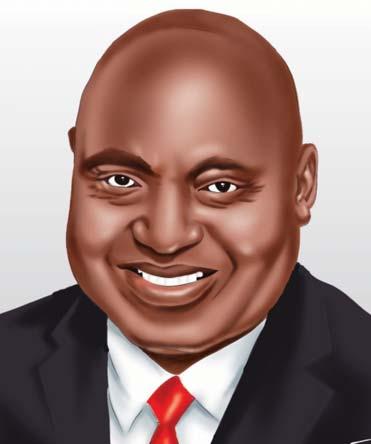
members of Ekiti State Executive Council . Addressing the gathering, Oyebanji asserted that his administration remained focused on transforming the state’s economy into a productive and selfsufficient powerhouse by leveraging on the state’s
resources and potentials to achieve sustainable development and economic dependency.
He said the stakeholders’ engagement meeting is part of his administration’s policy of inclusion and partnership with critical stakeholders to ensure sustainable development in the state, stressing that through forging an alignment of visions and unanimity of purpose with the stakeholders, the state could achieve the shared prosperity agenda of his administration.
Expressing confidence at what the state stands to gain by collaborating the stakeholders, the Governor said “We believe strongly that if we have alignment of visions, alignment of minds and unanimity of purpose, the Ekiti that our forefathers fought for, we can achieve it”.
According to him, “We are conscious of the burden of history on us, we campaigned for this office, we made promises to the people, we begged them to vote for us, we are not here to complain and we are not complaining. We have accepted this responsibility and we don’t lack the capacity, we don’t lack the ability, we don’t lack the vision, we don’t lack the drive but we can do better than what we are doing with your help, so I’ve come to you today not as a Governor that knows it all, I’ve come to you as someone asking for help”.
NOTE: Interested readers should continue in the online edition on www.thisdaylive.com
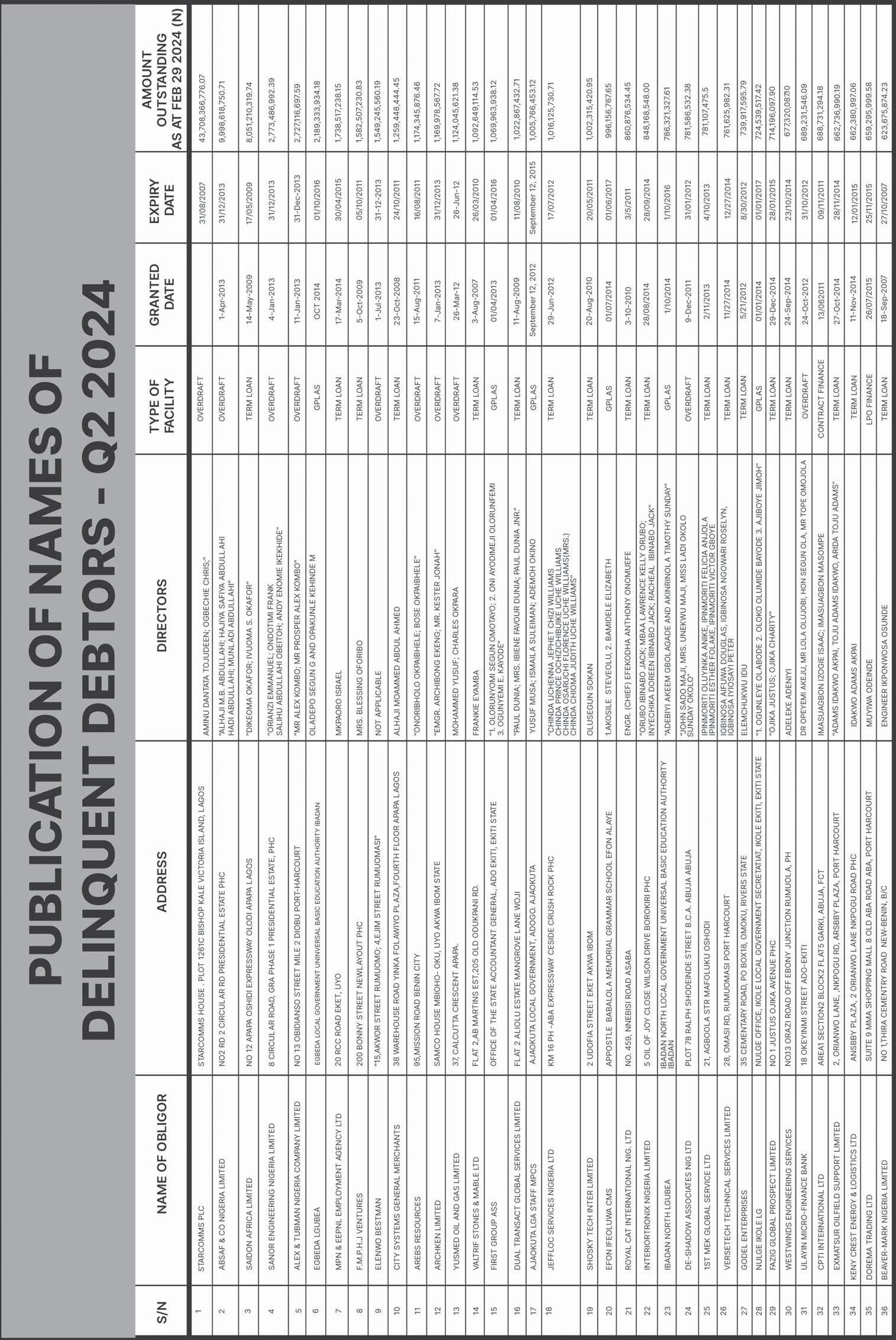
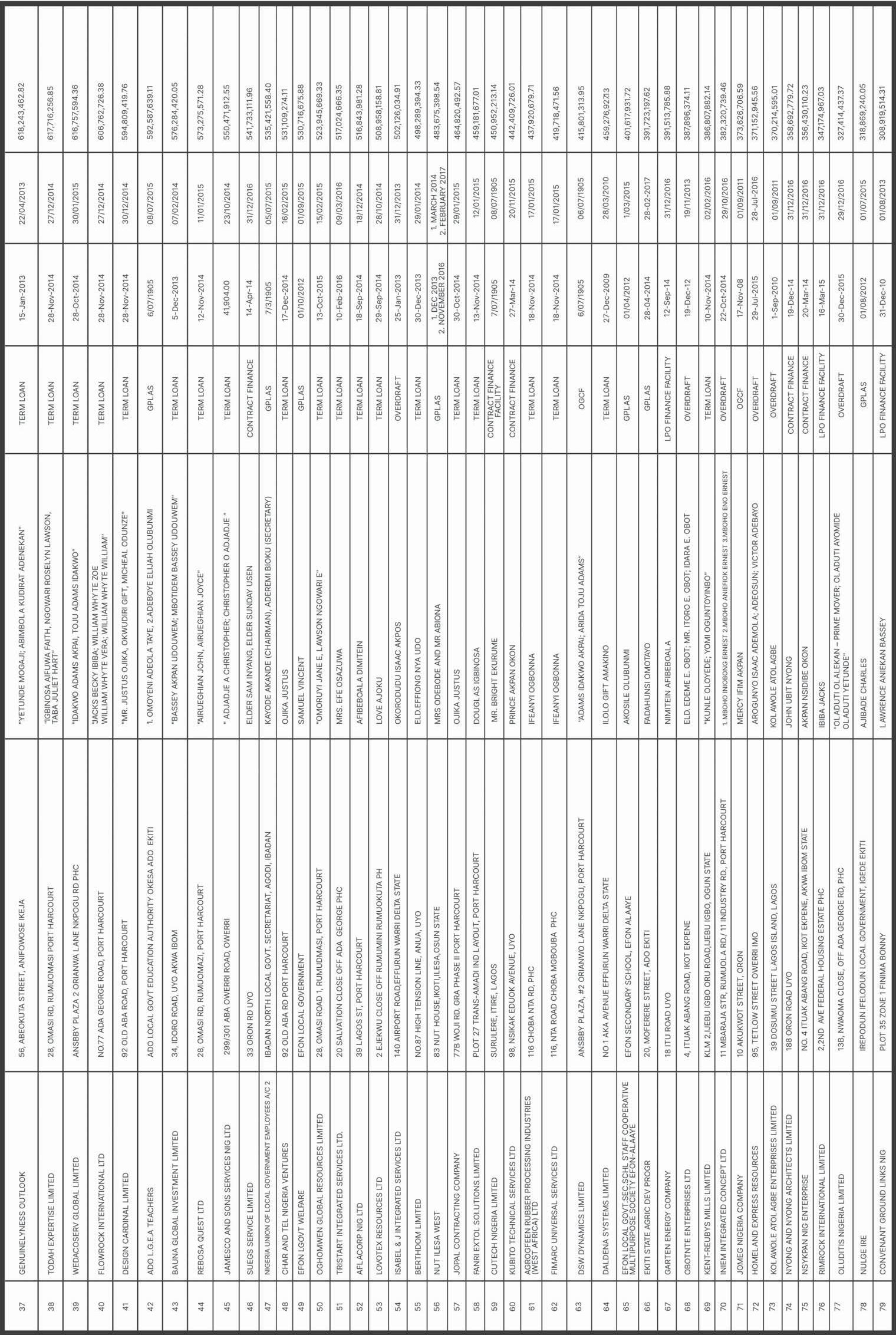
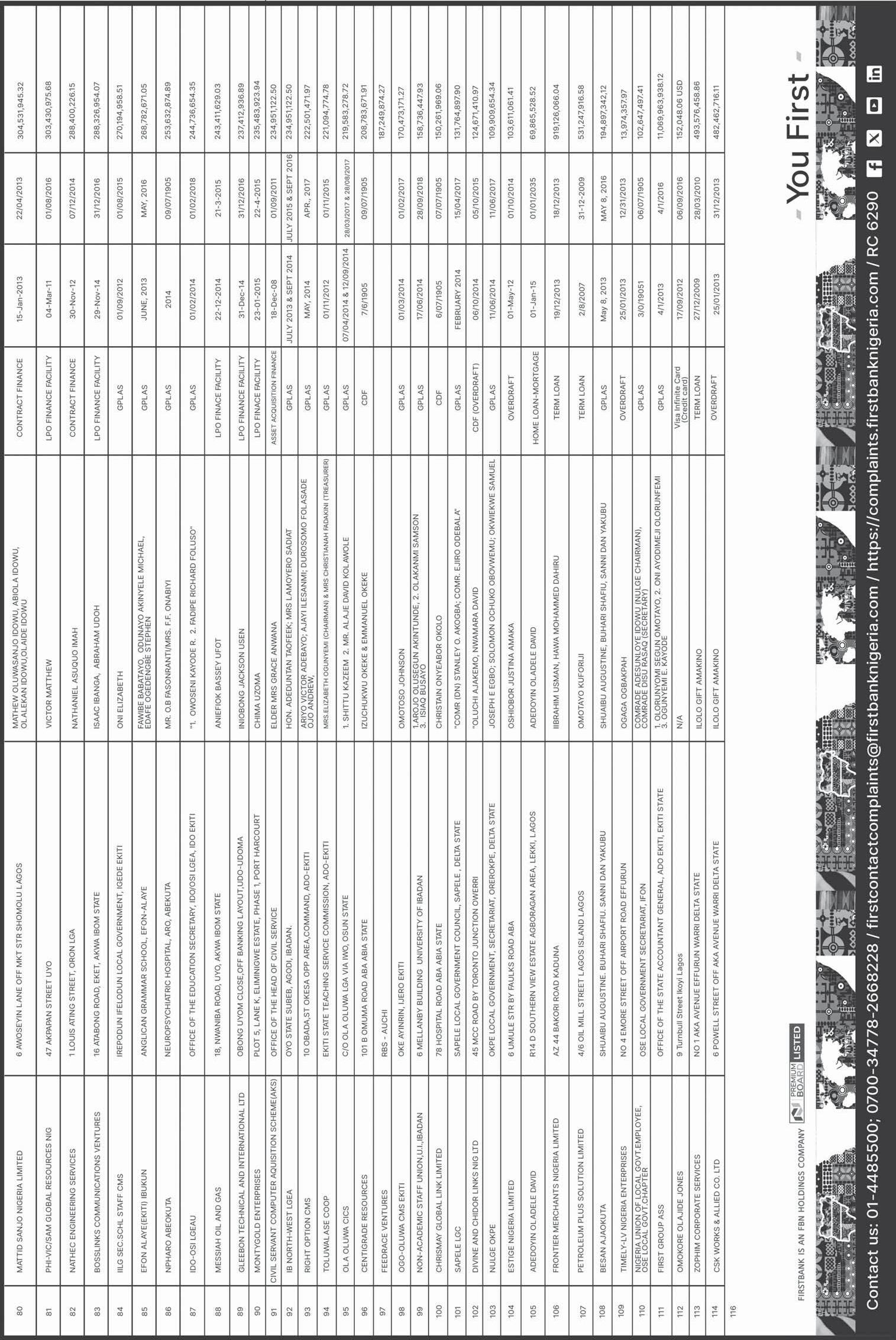
www.thisdaylive.com


opinion@thisdaylive.com
THOMAS ETUH AND RENEWED HOPE
Etuh is quietly helping to expand the frontiers of agriculture, reckons
ABDUL SHINKAFI
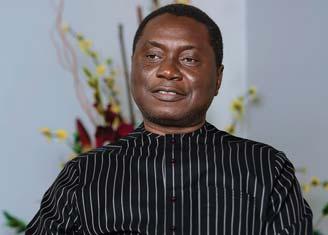
See page 21
CAN NIGERIA CREATE THE WORK FORCE FOR AN AGING WEST?
The National Security Adviser has made remarkable progress in restoring order and security across the nation, writes ABDULRAHMAN USMAN LEME
He came prepared, and he was highly recommended based on his career history as the man who always got the job done. Beyond being the first non-military officer to serve as Nigeria’s National Security Adviser since the return to democracy in 1999, Mallam Nuhu Ribadu’s trail of triumphs in tackling the security compromises he inherited has set him apart. It’s easy to see how his background as a specialized police officer, lawyer, and fearless investigator and prosecutor of financial crimes has eased him into the Office of the National Security Adviser (ONSA) in just one year in charge.
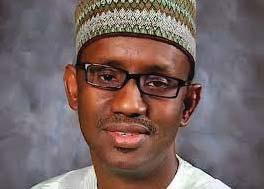
Adamawa,
and
except for a few isolated incidents in Plateau State. These states, which have experienced some of the worst communal clashes in the past decade, have seen marked improvements and greater stability over the past year. The previously unaddressed security issues have given rise to numerous Middle Belt activists who have allied with their southern counterparts to single out certain northern demographics as the masterminds of their insecurity.
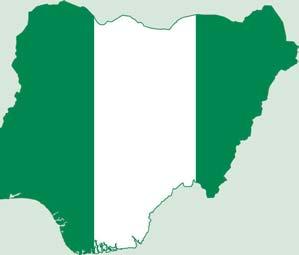
page 21
JOSHUA J. OMOJUWA contends that Nigeria needs skilled population to maximise its wealth EDITORIAL
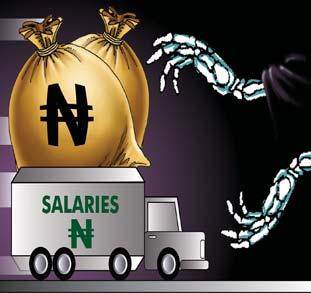
Mallam Nuhu Ribadu took charge at a time when the kidnapping economy, terrorist financing, and money laundering underscored the criminal enterprises built by terrorists, kidnappers, and bandits who’ve held the nation ransom. As the founding chief executive of the Economic and Financial Crimes Commission (EFCC), he understands that to get to the root of our security compromises, we must follow the money trail linked to these crimes against the state. This approach isn't surprising from a gamechanger who, under his watch at the EFCC, recorded over 200 criminal convictions, making it the most respected anti-corruption agency in Nigeria's history and a model for many governments around the world.
Delivering a public lecture at the Combined Convocation Ceremony of Usmanu Dan Fodiyo University, Sokoto, in April, Ribadu explained the doctrine that has defined his approach to solving the nation’s multifaceted security crisis. He argued that the way forward is unorthodox. The solution involves implementing a strategy that merges military, political, and socio-economic initiatives, emphasizing the need for cross-border cooperation, youth empowerment, and the reinforcement of local institutions. Achieving this requires inclusive dialogue, preventive measures, and regional support to ensure security and stability.
This doctrine has driven Ribadu’s engagements with regional and community stakeholders. For example, in the Niger Delta region, it has helped increase crude oil production by as much as 500,000 barrels per day. In the South-East, more than 40 police stations destroyed by criminals in recent years have been rebuilt and reactivated. Additionally, the sit-at-home order by secessionist elements is now at its weakest, regularly ignored by residents who were once held hostage by it.
Ribadu has ensured improved operations through intelligence gathering and sharing, leading to targeted actions that have resulted in the elimination of key bandit leaders—the most in one year since the banditry began. In the North-West, previously elusive bandit leaders have been decimated, with many others arrested. Abubakar Mainok, Haruna Isiya Boderi, and Kachallah Damina are among the ISWAP kingpins neutralized in clearance operations to secure the Abuja-Kaduna Expressway. In the North-Central region, the intensity of farmer-herder clashes has considerably reduced. The North-East, which has long endured the ravages of terror, is now seeing not only stability but also efforts towards reconstruction and rehabilitation to restore its former glory.
Since Ribadu assumed office in June 2023, the Nigerian government has successfully secured the release of more than 4,600 hostages, neutralized over 9,000 terrorists, bandits, and kidnappers, and arrested more than 7,000 others. Large quantities of
assorted weapons and ammunition have also been recovered. Some of the rescued individuals had spent as much as three years in captivity and had long given up hope of freedom. Ribadu has ensured swift rescue missions for abducted children and citizens. The rapid responses to rescue operations, from the freeing of the Kuriga schoolchildren to the release of students abducted from the Federal University of Gusau, and the recent rescue of Kogi students coordinated by ONSA, will go down in history as defining moments of Ribadu’s first year as NSA.
To neutralize the economic threats to Nigeria's sovereignty, Ribadu participated in operations to enforce action against the culprits, particularly Binance, a serial offender in several countries, in accordance with the nation's laws. Pursuing offenders with links to trans-border terrorism is a familiar terrain for him and is aided by his distinguished international network and reputation. Ribadu has utilized his international networks to track transborder terrorists and their financiers.
The NSA has fostered collaborations both domestically and internationally. He has ensured seamless coordination within Nigeria's armed forces. In 2023, ONSA hosted the second United Kingdom–Nigeria Security and Defence Partnership (SDP) Dialogue, demonstrating a commitment to strengthening partnerships to address mutual security concerns. ONSA has also held a Counter-Terrorism Summit in collaboration with the United Nations Office on Counter-Terrorism, which saw over 400 foreign delegates, including two serving presidents, in Nigeria. In March 2024, Ribadu convened a meeting with Northern Governors and security chiefs aimed at enhancing cooperation in combating insecurity in the region. One significant outcome of this meeting was a consensus on the need to shift focus from merely holding ground to strategically influencing perceptions and gaining the trust of local populations in the fight against insecurity.
ONSA is a multifaceted organization with several critical functions and offices. Over the past year, we have witnessed the revitalization of these specialized centers, including the National Counterterrorism Center (NCTC), the National Cybersecurity Coordination Center (NCCC), and the National Centre for the Control of Small Arms and Light Weapons (NCCSALW). This aligns with President Bola Ahmed Tinubu’s commitment to ensuring security and stability across the country. These efforts are crucial in addressing the diverse security challenges we face today.
Ribadu’s non-kinetic strategies have played a crucial role in preventing farmer-herder clashes, with significant results evident in states like Kaduna,
His unique interventions in matters of national importance are noteworthy due to his ability to strike deals and honor them, which helps prevent issues from escalating into national crises. Reviewing Ribadu’s first year in office as NSA would be incomplete without highlighting his focus on reforming the Nigeria Police Force (NPF). Much has been written and said about the anomaly of a militarized shift in internal security in Nigeria, with the Armed Forces permanently present and actively operating in virtually every State. Improving the capacity of the Police has since become an ongoing imperative, and there have been varying attempts over the years to accomplish this, with mixed results.
Ribadu has now put this high up on his agenda, drawing on his 25-year career in the Force. In 2023, the Office of the NSA entered a partnership with the United Nations Development Program (UNDP) and the German Embassy in Nigeria for the rollout of a comprehensive police reform program that will support the work of the Special Presidential Committee on Police Reform. Ribadu has prioritized interagency coordination and collaboration across a diverse group of law enforcement personnel—often across borders—to achieve success in his pursuit of fraudsters and cybercriminals.
While he's not a man given to blowing his own trumpet, even though he operates in a country where many mistake media activity for effectiveness, Ribadu acknowledges that law enforcement agencies cannot hope to receive much credit for the criminality they quietly foil. He recently described his role as NSA as “a demanding job that requires dexterity, hard work, and consensus-building across security and political structures.” In the 12 months since his historic appointment by President Bola Ahmed Tinubu, he has demonstrated a solid understanding of what is expected and has lived up to the onerous responsibilities of one of the most critical public sector assignments in the country.
While we have not yet reached our ultimate goal in terms of national security, the progress made thus far under Ribadu's leadership at ONSA is promising. His holistic and pragmatic approach, which complements military efforts through enhanced coordination and intelligence sharing, indicates a committed effort towards restoring order and security. These steps indicate a thoughtful and effective strategy aimed at comprehensively addressing our security challenges.This aligns with President Bola Ahmed Tinubu’s administration's commitment to supporting the armed forces and encouraging inter-agency coordination in combating terrorism, criminality, and all forms of terror, ensuring the nation's lasting stability.
Leme has extensive experience in strategic development, policy formulation, and a background in business administration and strategic human resource management

Editor, Editorial Page PETER ISHAKA
Email peter.ishaka@thisdaylive.com
Who are the ghost workers? All the culprits should be brought to justice
In the past two decades, almost every
Head of the Civil Service of the Federation (HOCSF), Folasade Yemi-Esan, revealed how
before sharing what has for long been an open agency told me that he discovered that a week
United Kingdom to intention to do their

the then Coordinating Minister for the Economy
Integrated Payroll and Personnel Information
It is unacceptable that Nigerians should be periodically regaled with tales of discovery of ‘ghost workers’, while no visible attempts are made to get to the bottom of such fraud
not a secret that many government workers who have relocated abroad are still on the payroll
easy for the perpetrators of the crime to do
T H I S D AY
EDITOR SHAKA MOMODU
DEPUTY EDITOR WALE OLALEYE
MANAGING DIRECTOR ENIOLA BELLO
DEPUTY MANAGING DIRECTOR ISRAEL IWEGBU
CHAIRMAN EDITORIAL BOARD OLUSEGUN ADENIYI
EDITOR NATION’S CAPITAL IYOBOSA UWUGIAREN THE OMBUDSMAN KAYODE KOMOLAFE T

EDITOR-IN-CHIEF/CHAIRMAN NDUKA OBAIGBENA
GROUP EXECUTIVE DIRECTORS ENIOLA BELLO, KAYODE KOMOLAFE, ISRAEL IWEGBU, EMMANUEL EFENI
DIVISIONAL DIRECTORS SHAKA MOMODU, PETER IWEGBU, ANTHONY OGEDENGBE
DEPUTY DIVISIONAL DIRECTOR OJOGUN VICTOR DANBOYI
SNR. ASSOCIATE DIRECTOR ERIC OJEH
ASSOCIATE DIRECTOR PATRICK EIMIUHI
CONTROLLERS ABIMBOLA TAIWO, UCHENNA DIBIAGWU, NDUKA MOSERI
DIRECTOR, PRINTING PRODUCTION CHUKS ONWUDINJO
TO SEND EMAIL: first name.surname@thisdaylive.com
many workers who reside abroad are still being paid and for how long they have been there on also be told the total so far to this organised prevalent? Who are the
periodically regaled with tales of discovery of ‘ghost workers’, while no visible attempts are
of reports of invisible workers that have been
there are workers on the payroll who reside
Letters in response to specific publications in THISDAY should be brief (150-300 words) and straight to the point. Interested readers may send such letters along with their contact details to opinion@thisdaylive.com. We also welcome comments and opinions on topical local, national and international issues provided they are well-written and should also not be longer than (750- 1000 words). They should be sent to opinion@thisdaylive. com along with photograph, email address and phone numbers of the writer.
back to colonialism with nostalgia means that colonialism meant
Apartheid and all its abominable accretions was a nightmare
a demonstration of the delicate dynamics of democratic elections,
The Adaora Umeoji-led Zenith Bank Plc is assiduously working towards complying with the Central Bank of Nigeria’s directive to banks to recapitalise with a compliance deadline of March 31, 2026, writes Louis Achi
On March 28, 2024, the Central Bank of Nigeria (CBN), leaning on its statutory powers, boldly tweaked its regulatory playbook. It handed down a directive to Nigeria’s deposit money banks (DMBs) to recapitalise, with a compliance deadline of March 31, 2026.
The CBN’s move approximates a ten-fold increase in minimum capital requirements for banks. The last such banking consolidation occurred nearly two decades ago under ex-CBN governor, Prof. Chukwuma Soludo. According to the CBN Governor, Olayemi Cardoso, the apex bank targets a strong banking sector capable of supporting govt’s $1tr GDP by 2030
There were 35 DMBs in Nigeria as at the end of the fourth quarter of 2022, comprising 26 Commercial Banks (including two Non-Interest Banking Windows), six merchant banks and three Non-Interest Banks (NIBs).
In a direct, preemptory memo, the apex financial services sector regulator seized the bull by the horns and revised the capitalisation requirements. It set new benchmarks for banks with international operations at N500 billion; those with national licences - N200 billion, and licenced regional players - N50 billion.
This directive, a crucial step towards birthing a stronger banking sector and consequentially a more vibrant national economic backbone, set the stage for strategic responses by the serious sector players to dig deep and step forward.
Although this crucial, high-impact regulatory intervention came during a leadership transition phase in the corporate trajectory of Zenith Bank Plc, Africa’s sixth largest bank and Nigeria’s leading financial institution, the behemoth is spearheading the charge in compliance with CBN’s directive.
Zenith Bank Plc emerged as the Best Bank in Nigeria in the Global Finance Best Banks Awards 2024, winning the award for an unprecedented fourth time since 2019. The recognition emphatically reaffirms Zenith Bank’s position as a trailblazer in sustainable banking practices, setting a benchmark for excellence within the Nigerian banking industry and beyond. The Bank has been a leader in monitoring and reporting sustainability impact.
Zenith Bank Plc recently announced the appointment of Dr. Adaora Umeoji, as its Group Managing Director/Chief Executive with effect from June 1, 2024. She took over from Dr. Ebenezer Onyeagwu, whose transformative fiveyear term expired on May 31, 2024. An Amazon with compelling verve and matching professional credentials and capacity, Umeoji has set the ball rolling.
Weeks after the whistle for the commencement of banks’ recapitalisation was blown by the CBN, the attention of stakeholders in these institutions has for obvious reasons returned to the boardrooms for strategic planning. This is the forte of Zenith Bank-led Umeoji. Umeoji covets knowledge-driven innovations, proactive engagement
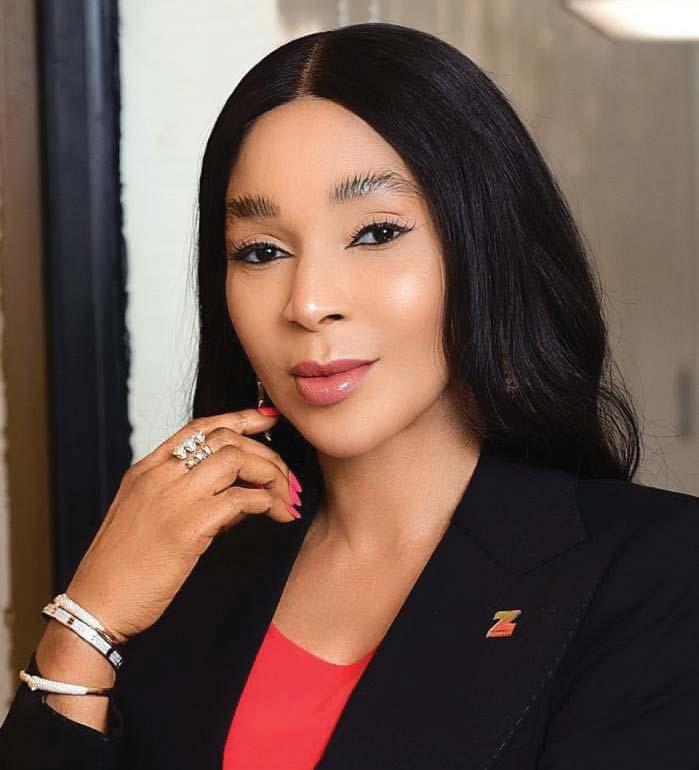
with stake-holders, policy makers and sure-footed action. She brings these dimensions to her leadership of Zenith Bank Plc, one of the continent’s most transformed financial services behemoths.
Going by available data, commercial banks in the country would require a combined N3.894 trillion to meet the new baseline capital requirements. This will necessitate capital raising efforts from both domestic and international markets.
In consonance with CBN’s directive, Zenith Bank Plc seeks to create 31.3 billion new shares, aiming to raise additional capital. The bank proposes amending its articles of association to reflect the new share capital of N31.3 billion. This would bring the total issued shares to 62.7 billion, with each share valued at 50 kobo.
“Clause 6 of the Company’s Memorandum of Association and Clause 9 of the Company’s Articles of Association are hereby amended to reflect the new share capital of N31.3 billion by the creation of the addition of up to 31.3 billion ordinary shares of N0.50 Kobo each ranking pari-passu with the existing ordinary shares of the company bringing the total issued shares of the Company to 62.7 billion, ordinary shares of N0.50 Kobo each,” the bank said.
The bank will establish a capital raising programme in the Nigerian or international capital market of up to
the authorised capital of the company, through the issuance of ordinary shares, or preference shares, whether by way of a public offering, private placement, rights issue or both, or any other method or combination of methods, in such tranches, series or proportions and at such dates, and conditions as may be determined by the board subject to obtaining the requisite regulatory approvals.
Further according to the Bank’s Company Secretary, “In the event of a Rights Issue, any shares not taken up by existing shareholders within the period stipulated under the Rights issue may be offered for sale to other interested shareholders of the Bank on such terms and conditions as may be determined by the Directors subject to the approvals of the relevant regulatory authorities.”
The plan was detailed in a notice ahead of its third Annual General Meeting held on May 8. Zenith Bank Plc can lean on several strengths it has established and finely honed over the years to lead its sector rivals in the recapitalization push and compel subscription to Zenith Bank’s offer as the May 8 AGM has already kick started its capital raising effort in line with CBN’s directive which the Bank sees as a significant opportunity for an even stronger and more resilient banking industry.
These include: its strong corporate
governance culture, unmatched stability in management, strong growth records, attractive returns on investment, attractive offer terms and more.
Another important factor in Zenith Bank’s recapitalisation drive is its undisputed ability to raise the stipulated capital because amongst its peers in the industry, it is expected to raise the least amount due to its already robust capital base.
Zenith Bank’s new share capital of N31.3 billion via the creation of the addition of up to 31.3 billion ordinary shares of N0.50 Kobo aiming to raise additional capital each have received rousing support from the investing public as key capital market stakeholders recalled the symbolic importance of Zenith Bank’s impressive growth and investor-friendly disposition over the years.
As the bank which has the highest corporate governance rating and an average annual capital gain of more than 100 per cent at the stock market, Zenith Bank has strong appeal to the investing public.
Zenith Bank Plc places premium on its core business strategy which is anchored on People, Technology and Service to create value for its clientele. With strict adherence to global best practices, the bank combines market knowledge, professionalism, expertise and ICT to create products and provide services that anticipate and meet customers’ dynamic needs.
As the recapitalisation drive gets into full gear, industry analysts and key sector stakeholders cannot easily forget that Zenith Bank has won numerous local and international awards for a reason. It was named Best Bank in Nigeria for the fourth time in five years from 2020 to 2022 and in 2024 by the Global Finance World’s Best Banks Awards; Best Bank for Digital Solutions in Nigeria by the Euromoney Awards 2023; being listed in the World Finance Top 100 Global Companies in 2023; and being recognised as the Number One Bank in Nigeria by Tier-1 Capital for the 14th consecutive year in the 2023 Top 1000 World Banks Ranking published by The Banker Magazine.
Zenith Bank has also been honoured as Best Commercial Bank in Nigeria for three consecutive years from 2021 to 2023 by the World Finance Banking Awards; Best Corporate Governance Bank in Nigeria by the World Finance Corporate Governance Awards 2022 and 2023; Bank of the Year (Nigeria) by The Banker’s Bank of the Year Awards in 2020 and 2022; and Best in Corporate Governance Financial Services Africa for four successive years from 2020 to 2023 by Ethical Boardroom.
Other recognitions include Most Sustainable Bank in Nigeria at the International Banker 2023 Banking Awards, Best Commercial Bank in Nigeria, and Best Innovation in Retail Banking in Nigeria at the International Banker 2022 Banking Awards. With Dame Adaora Umeoji at the helms, many believe the recapitalization project is already a walk-over; a stroll in the park for Zenith Bank - and understandably so.
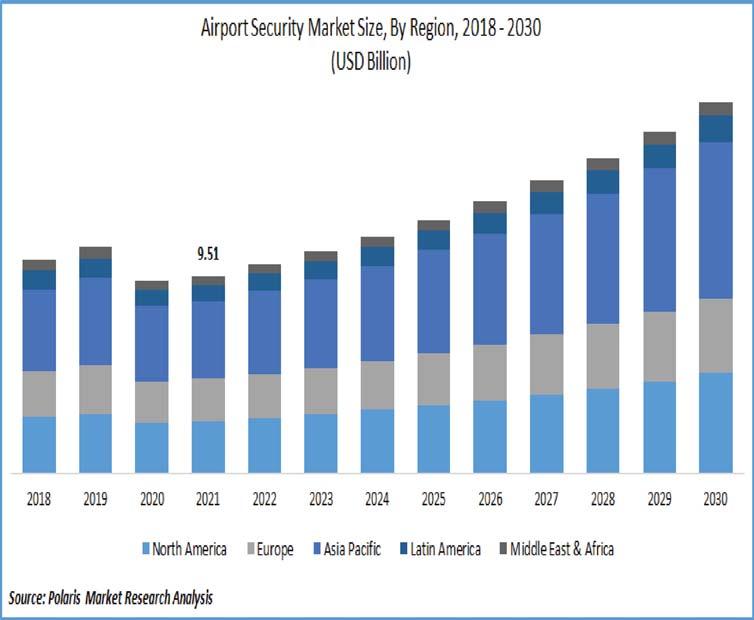
Aviation security experts and other stakeholders in the industry have condemned the recent announcement by the Federal Airports Authority of Nigeria (FAAN) of its plan arm Aviation Security (AVSEC), the outfit in charge of security at all airports and recognised by the International Civil Aviation Security (ICAO).
On Tuesday this week, FAAN deployed about 120 AVSEC ‘Special Forces’ across international airports in the country.
Former Minister of Aviation, Hadi Sirika, had in March 2018, spoke of the plan to arm AVSEC.
According to him, “The Federal Government of Nigeria has approved AVSEC to bear arms, which is a notable achievement in this administration’s effort at improving the general safety of its
citizenry and passengers passing through our airports.”
But aviation security experts and others have condemned the decision to arm AVSEC personnel, describing the move as an act to militarise civil aviation, insisting that is not in consonance with ICAO standards.
As an update of Annex 17, which has to do with Aviation Security, ICAO recently introduced the International Civil Aviation Organization’s new edition of the Global Aviation Security Plan (GASeP).
The GASeP was designed to enhance the international aviation security environment by providing detailed guidance to governments, industry, and other stakeholders with emphasis with intelligence gathering.
The new security plan focuses on six global aviation security priority
areas, which include risk awareness and response; the preservation of a strong and effective security culture; human factors (including human performance and the professionalization of the aviation security workforce); innovation and the allocation of technological resources; oversight and quality assurance and cooperation and support among stakeholders.
Reacting to the decision by FAAN to arm AVSEC, Aviation Security expert and the CEO of Centurion Security and Safety Consult, Group Captain John Ojikutu (rtd), said aviation security was not about force application nor its multiplication but more of profiling behavioural patterns of all those connected to civil aviation activities be they passengers, crew members, airports workers, visitors, or others.
Ojikutu who is former
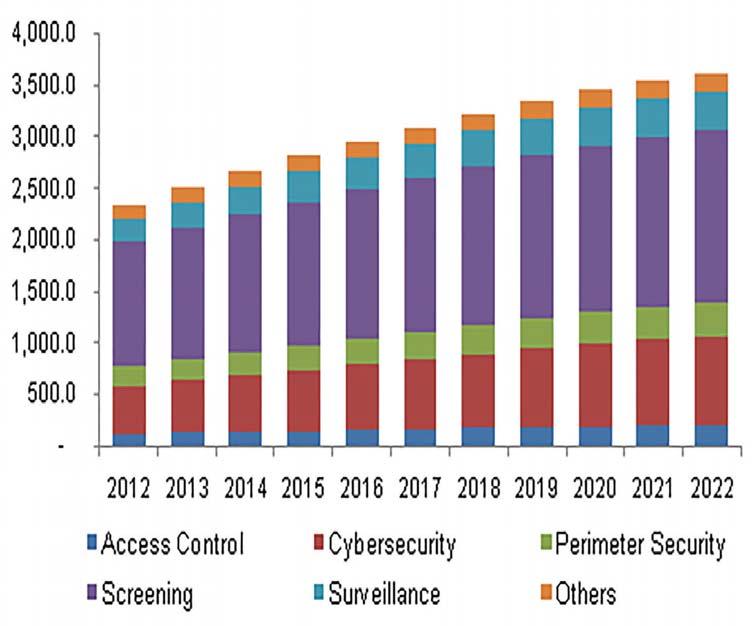
Commandant of Murtala Muhammed International Airport, Lagos (MMIA) said: “Application of forces is for contingency plan should there be a breach on the defence layers. The defence force cannot be from any of the security agencies working at the airports. We need to think out of the box but we got into it way back before the 9/11. We were in the same box with the US before the 9/11 but the US followed the pattern we had at MMIA in 1993 at the MMIA. Unfortunately, political interferences in the aviation agencies killed the career progressions of most professionals in FAAN, and that is why today we have about six geographical security agencies in the airport all carrying guns without a unified control and management. Whatever is been done now by FAAN, Keyamo who is the Minister of Aviation and Aerospace Development or the National
Security Adviser (NSA) cannot work unless they learn from the US Federal Aviation Administration (FAA) and the Transport Security Administration (TSA).”
Ojikutu suggested that the government could adopt the US TSA style whereby trained security personnel that could be selected from the Director State Service (DSS) to wear uniform different from Immigration, the National Drug Law Enforcement Agency (NDLEA), Customs, AVSEC to manage security at the airport.
“Security function is not the primary function of FAAN but airports development, operation and management. What is being developed by the management of the aviation agencies is to run away further from the planned concession of the airports which sooner than later will make things in the Nigerian commercial aviation get worse than
it is today,” Ojikutu said. Ojikutu also said that ICAO requires each member state to set up a National Aviation Security Committee not a Civil Aviation Security Committee.
“The National Civil Aviation Security Programme (NCASP) requires FAAN to coordinate security at the airports. Can FAAN do that on the multiple security agencies at the airports without conflict? US faced that problem too before the 9/11 and the Al Gore (former US Vice President) recommendations brought about the establishment of the TSA of the US. We need an autonomous security agency; not multiple and not from those with primary responsibility of commercial services and not FAAN either but the DSS,” he said.
Chairman of Mercury Maritime Concession Company (MMCC), Rear Admiral Andrew Okoja (rtd), has said that the Delta State Government has revalidated the approval granted his company for the proposed $27.29 billion Escravos Industrial Complex (ESIC) project in n the state.
In addition to the state government validation, he said the company has
received assurance from the federal government that the revalidation on the earlier granted provisional approval would soon be granted.
The Mercury Maritime Concession Company boss, who is developer and lead promoter of the port project, disclosed this in a chat with newsmen in Lagos.
According to him, “We have received a revalidation from Delta State Government, which was
communicated to us early this week. We are also in touch with the Ministry of Industry, Trade and Investment, the supervisory ministry for this project and they have assured us that the revalidation of the Federal Government would be granted before the expiration of the June deadline that the project financier gave us.”
He said the project would run across eight ministries including
the Ministry of Solid Minerals, the Ministry of Works, the Ministry of Marine and Blue Economy, and the Ministry of Power.
According to him, MMCC and its partners are bringing a development fund of $29.7 billion to support the present administration in its strive to attract foreign direct investment, develop the economy, and create jobs.
He called on stakeholders at different levels to join hands to
build Nigeria’s stressed economy by creating an enabling environment for the port project to thrive for the growth of the nation’s economy.
Okoja said the developer has also secured both financial and developmental partners.
“The EDIB International of Hong Kong had expressed willingness to invest in the project as the financial partner for the port project that would be located on 31,000 hectares
of land in Escravos (Gbaramatu Island/Omadino) Warri South-West Local Government Area of Delta State,” he said. Okoja said the port project would open up Delta State and seven other states including FCT – Abuja to international investors in the area of trade, commerce, and industry.
Dike Onwuamaeze
The Lagos State Government has commended StanbicIBTC Bank’s commitment in enhancing Nigerians capacity to own their homes.
This commendation was delivered by the Permanent Secretary, Ministry of Housing, Lagos State, Mr. Abdulhafiz Gbolahan Toriola during the StanbicIBTC Home Ownership Summit with the theme “Building Wealth Through Home Ownership,” that was organised in Lagos.
Toriola said: “I want to specially thank the organisers (Stanbic IBTC Bank) for organising this
summit and for their unwavering commitment in making home ownership a part of their corporate priorities.
“Hence, we look forward to more practical conversation and engagement for the onward implementation of the resolutions this summit will birth.”
He also stated that encouraging and providing avenues for Lagosians to fulfill their aspiration for home ownership is among the cardinal focus of the administration of Governor Babajide Olusola Sanwo-Olu of Lagos State.
The Chief Executive of Stanbic IBTC Bank, Mr. Wole Adeniyi, in
his address during the summit underscored the significance of home ownership as a cornerstone of financial stability and wealth creation.
Adeniyi emphasised the bank’s commitment to facilitating access to home ownership without undue financial strain.
He said: “As access to affordable housing remains a pressing issue, our Home Loan solution offers hope. With competitive interest rates, flexible equity contribution, and personalised guidance, our bank aims to bridge the gap and make home ownership attainable for our stakeholders.”
Stories by Chinedu Eze
The Group Managing Director, Lagos Aviation Academy (LAA), Mr. Bernard Bankole, has urged the federal government to strengthen aviation education in the country.
He made the submission while speaking on the sidelines of the unveiling of the Academy’s new facility in Lagos, adding that beyond training professionals
for local utilisation, Nigeria, like other countries of the world, must look towards educating aviation professionals for export.
According to him, the onus lies on government to deliberately look on the path of human capacity building for the sector stating that humans are the greatest assets of any industry.
He said: “This is to set the record and the path right that the government needs to look more
into how we develop education, develop our people, because in every organisation and in every country, the humans are the greatest assets. We realise that and in our little capacity we will try to see how we can enhance and develop people that will add value not only to our industry but to the rest of the world. That is what we have been doing at LAA and that is what we would continue to do.”
In a bid to enhance the safety and security of the nation’s airspace, the Nigerian Airspace Management Agency (NAMA) has embarked on the upgrade of its surveillance infrastructure across the nation’s airports and other remote installations across the country.
To this end, President Bola Ahmed Tinubu has approved an onsite visit to Spain by critical staff of the agency to inspect some of the facilities as well as engage technology solution providers to address security challenges as well upgrade the agency’s surveillance systems.
The Managing Director of NAMA, Ahmed Umar Farouk, made this known while receiving a delegation from the Nigerian Air Force
(NAF) at the agency’s corporate headquarters in Abuja.
The managing director noted that the Nigerian Air Force remained a valuable ally to the agency with regards to the safety and security of the nation’s airspace. He recalled that the collaboration between the two agencies over time had been critical to the sustenance of airspace safety and security in Nigeria. “NAMA handles civil operations, while the Air Force oversees security. Our close collaboration is vital for maintaining a safe and secure airspace,” the NAMA boss said. In his remarks, the leader of the NAF delegation, Air Vice Marshal Abubakar Abdulkadir, stated that the Nigerian Air Force had recently enhanced
its capabilities to secure the nation’s airspace with new platforms designed for national air defense and stationed with the Air Defense Group in Makurdi, stressing that the NAF had also completed its day training and was close to finishing night trainings, which would enable rapid response and interception of any intruders in the Nigerian airspace.
He also shared an update on the NAF’s enhanced capabilities to monitor and identify all aircraft entering and exiting the Nigerian airspace, adding that improved collaboration and partnership between NAMA and the NAF would sustain the current security and safety in the nation’s airspace.
Ethiopian Airlines Group, Africa’s largest airline group, announced that it has been crowned as the winner of the ‘Best Entertainment’ and ‘Best Wi-Fi’ in Africa awards for yet another year at the APEX Passenger Choice Awards 2024.
Ethiopian Airlines has collaborated with multiple service providers to cater to the diverse demographics and passenger tastes.
Ethiopian introduced onboard Wi-Fi connectivity using the latest state-of-the-art broadband satellite technology (Ka-band), allowing passengers to enjoy reliable connectivity for sending emails, shopping online, or even chatting on social media while flying over the clouds.
Congratulating on the milestone, Group Chief Executive Officer, Mr. Mesfin Tasew, said: “Elevating passenger experience
is a top priority at Ethiopian Airlines. Offering a range of entertainment options, Ethiopian has always strived to create a more enjoyable and immersive inflight experience enabling passengers to relax during long flights. As we will continue to enhance the passenger experience and set new standards in the industry, I express my gratitude to our dedicated team for making this achievement possible.”

Kasim Sumaina
The Minister of Transportation, Sa’idu Ahmed Alkali, has come up with new measures to reposition the transportation sector, with the zeal to actualise set goals that are in tandem with the renewed hope agenda of President Bola Ahmed Tinubu’s administration.
Alkali recently revealed that the Ministry of Transportation was primarily established to facilitate the provision of public transport services and effective coordination of all the agencies and institutions under it and to ensure the realisation of its mandate and the mandates of agencies under its jurisdiction.
He has therefore tailored his strategy to ensure that those goals which would enable the current administration create cheaper means of transportation for majority of Nigerians, which is the rail transport system, are met.
Alkali said: “In order to sustain this reality, the Ministry of Transport must assume a leading role of improving the public transportation sector to support the numerous policies that are geared towards providing democratic dividends that are accessible to ordinary Nigerians through effective provision of public transport that is secured, affordable and convenient across the country.
“It is important to state that the Federal Ministry of Transportation remains among the few Ministries that were established and continue in existence from colonial period to date with little modification of name given its strategic place as gateway to the nation’s economy.
“This might probably explain why the Ministry is undergoing restructuring in response to emerging national economic challenges that require the services of the Ministry.
It is safe to say that one year after, Alkali has executed and fulfilled part of his promises. Within the period of Amaechi’s exit, the ministry of Transportation suffered setbacks without purposeful direction and leadership.”
According to Alkali, there is a total breakdown in some critical sectors of the ministry especially the railway, which was left in ruins adding, “Projects initiated and ongoing were abruptly stopped due to lack of passion by those in the affairs of the ministry at the twilight of former President Muhammadu Buhari’s administration.”
While appearing before the Senate and House of Representatives Joint Committee on Land Transport in Abuja, he proposed an investment portfolio of $35 billion to develop a functioning railway transportation system in Nigeria. He went further to unveil a bold and transformative budget proposal for 2024.
He noted that his ministry’s vision for the future of Nigeria’s transportation sector places significant emphasis on the expansion and modernisation of railway infrastructure, with plans to connect nearly 6,000 kilometres of standard gauge railways and rehabilitate an existing 3,505 narrow gauge line. The ambitious plans he added aimed to link Nigeria’s North and South, East and West regions, reaching key agricultural belts, oil and mineral resource zones, as well as ports of origin and destination, including the Lekki Deep Sea Port.
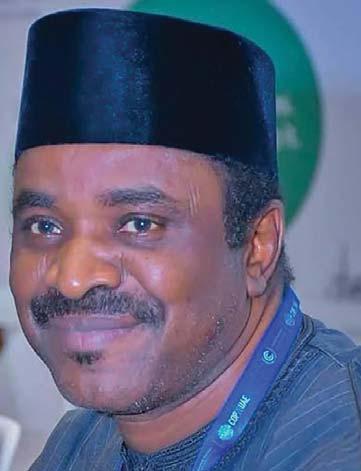
He said that due to several technical and contractual issues, the project rehabilitation commenced in March 2022. He explained that it was worthy to note that the scope of the project covers the rehabilitation of the existing narrow gauge railway line, construction of new modern stations, and procurement of new modern rolling stock.
“The railway line will also link the ports of Onne, Bonny, and Port-Harcourt to facilitate evacuation of goods and sundry freight through the Eastern corridor. The federal government in the contractual agreement is to provide 15 per cent of Direct Construction Cost (DCC), inclusive of land acquisition and Value Added Tax (VAT), while a bank loan through DCC is to cover 85 per cent of the project.
“Facilitation of the bank loan is in progress and expected to be concluded soon. Thus, the progress achieved on project from inception in 2020 to the present date has been funded exclusively from the yearly budgetary allocation of the Federal Ministry of Transportation,” Alkali said.
He maintained that the federal government, with the commencement of operations along the section of the project, aims to boost economic activities between the South-South and South-East region of the country pending completion of the other sections of the project.
“With the completion of the rehabilitation of Port-Harcourt to Aba rail corridor, the Ministry will continue to vigorously drive Messrs CCECC towards the speedy completion and delivery of the 181 kilometres Aba - Enugu stretch. Commencement of operations on this stretch of the project aligns with priority 5 of the President Bola Ahmed Tinubu’s Presidential Priority Areas which identifies “Enhanced Infrastructure and Transportation as Enablers of Growth” to the economy”, he added.
Group Business Editor
Eromosele Abiodun
Deputy Business Editor
Chinedu Eze
Comms/e-Business Editor
Emma Okonji
Asst. Editor, Money Market
Nume Ekeghe
Senior Correspondent
Raheem Akingbolu (Advertising)
Correspondents
Emmanuel Addeh (Energy)
KayodeTokede(CapitalMarkets)
James Emejo (Finance)
Ebere Nwoji (Insurance)
Reporters
Peter Uzoho (Energy)
Ugo Aliogo (Development)
Following the directives from Corporate Affairs Commission (CAC) that all Point of Sales (PoS) operators should register and submit their CAC details on or before July 7, 2024, PalmPay is encouraging its Business users who have not yet complied with the directive to do so promptly.
The directive follows Section 863 (1) of the Companies and Allied Matters Act (CAMA) 2020 and the 2013 CBN guidelines on Agent Banking.
Speaking about the directive, Head of Marketing and Communication at PalmPay, Umuteme Enakeno, said: “PalmPay fully supports the CAC’s directive. To provide a seamless experience for our
customers, we have integrated the registration portal with our Business App. In cases where the customers need support, we provide 24/7 customer support to our operators and also conduct weekly meetings to guide them on the process.”
Enakeno advised PoS operators to register their business via the PalmPay Business App and ensure that all necessary documents and information are provided accurately before submitting their application.
“We urge all PalmPay Business customers to submit or register their CAC before the deadline. Failure to do so means that the account would be frozen,” Enakeno warned.
“Our goal is to close the infrastructural gap in the country, support national economic growth, create employment, generate wealth, and improve the standard of living for all Nigerians. Despite the challenges faced due to funding gaps and dwindling revenue, the Ministry remains committed to realising Nigeria’s Integrated Infrastructure Master Plan,” Alkali further said Alkali, like Amaechi has taken the bull by the horns in implementing various policies of the current administration of President Bola Ahmed Tinubu in revitalising the rail and mass transit sector of the ministry. So far, the ministry, under the supervision of Alkali, has completed and flagged off commercial service on the Aba section of the Port Harcourt - Maiduguri narrow gauge line.
Upon completion and commissioning, the government commenced operations on the rehabilitated Aba section of the 1443 km Port-Harcourt to Maiduguri narrow gauge rail project.
This was part of government’s intentions to drive and to facilitate trade, enhance mobility, accessibility and ensure connectivity between the Southern parts of the country to the North-Eastern part, the 1443 km Port-Harcourt to Maiduguri narrow gauge rail project, stretching from Aba has received priority attention.
Furthermore, Alkali flaghed off the commencement of the commercial services on the 62.0 kilometers of the Port-Harcourt to Aba corridor on 30th April 2024. The project was awarded to Messrs China Civil Engineering and Construction Company (CCECC) on October 16, 2020, with a completion timeline of 36 months.
It is, however, worthy of note that the commercial operations on the corridor were offered to passengers free of charge.
Alkali revealed that the first segment of the ongoing 387km of Kano - Daura rail project will be ready by 2026. He said the inspection was his second since his assumption as the Minister of Transportation and expressed his satisfaction as remarkable progress has been achieved between now and his last visit.
According to him, “We came all the way from Kano, we drove on the formation that they did, they are doing the earthwork and the culvert and this is a station where they have started preparing the rail lines and the slippers so that they will use their locomotive to convey the materials on the rail.
The ministry recently partnered the Association of Local Government of Nigeria (ALGON) to establish Compressed Natural Gas (CNG) service centers in the 774 local governments of the federation.
Alkali added that the federal government believed that service centers for CNG conversion should not be in urban centres alone which was why the government was partnering with the Association of Local Governments of Nigeria to ensure that it also has the service centers closer to the people at the grassroots.
Speaking on the benefits, Alkali said it will bring down the cost of maintenance by about 60 to 70 per cent as well as control emissions given that once the locomotive moves to gas there won’t be gas emissions. He revealed that the process would begin with the Abuja - Kaduna rail corridor, noting that they intend to move to other corridors soon.
Travel expert and organiser of Akwaaba African Travel Market, Ambassador Ikechi Uko, spoke about how Nigeria could take advantage of its huge population and natural endowments to develop tourism and attract investors, like other countries in Africa. He spoke to Chinedu Eze during a recent trip to Kenya. Excerpts
In those days, the West Coast used to be lucrative for Nigerian airlines, during the era of Belview and Virgin Nigeria, but this time it seems Nigerians are losing the market. What do you think could be responsible for this?
Okay, I would not agree that Nigerians are losing the market. Nigerians still travel, maybe not in large numbers like before. Years back, we were the major entrepreneurs in West Africa, we supplied almost all the wealth that were distributed in West Africa. Now other people are also rich, and they can travel, but I don’t think we are losing the market. The only thing we have lost is that we have lost control of the aviation business in West Africa. There are dominant connectors of West Africa, Air Senegal, Air Cote d’lvoire, and ASKY, cover more of West Africa than any Nigerian airline. So aviation in West Africa now is not in the hands of Nigerians anymore. But when you look at the market generally, because of our population, in terms of economic activities, we still play a major role in the market. But in aviation, we seem to be losing.
Do you see Nigerian airlines dominating the West Africa region in the future?
I don’t see any Nigerian airline that has a vision to dominate West Africa. I don’t see a plan by any Nigerian airline to be the major player in West Africa. I have not been told, I have not seen any. The ones that are already flying, the way they have aligned their business is beyond West Africa. So, until one comes that plans to be the king of West Africa, then we can start having discussions. We can’t be the hub, we are not the hub, there is no plan by any Nigerian airliner that I know to fly to every capital in West Africa. What I knew Ethiopian What airlines do is that when any African country became independent, they try to connect a flight to that destination. So, there was a long-term plan to be the masters of Africa by Ethiopian Airlines and now it has benefited them. There is no Nigerian airline I know that had a plan to dominate West Africa. Maybe
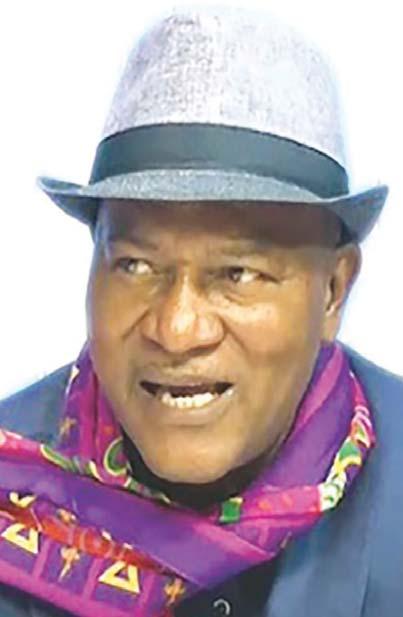
some of them planned it internally, but it has never been communicated publicly for outsiders like me to know that there is a plan to be the masters of West Africa.
Okay, but from all indications, Asky Airlines seem to have a long term plan to dominate West and Central Africa from the way they started, and the way they were growing. So what do you think about Asky airline?
That was an airline that was set up from the beginning with such a plan to be a PanAfrican airline. And ASKY means African
sky. So the vision is there, is captured in the name, is captured in everything they do. They fly to 28 destinations in 26 countries with only 14 aircraft. So from the beginning, that vision is very clear that we want to be the king of West and Central Africa. We want to be the major airline in West and Central Africa. And within five years, they achieved that. Now they are connecting East Africa; they are connecting South Africa. They are now going to go to France. But they stayed, more than 10 years consolidating on West and Central Africa. Then they started South Africa maybe by the 10th year. Then they started Nairobi by the 10th year. And they are now saying, OK, France. Then after that, we will connect North Africa. So they have spent 10 years consolidating their operations in West and Central Africa. And today they connect almost every capital city in West Africa.
And what is surprising is that they are operating from a small country. They don’t have domestic markets. So they primed to go international from there but they started slowly, small, planned well.
Do you see any Nigerian airline following that kind of trend?
Okay, today we are here (in Kenya) because of Jambo Jets. Jambo Jets owns 52 per cent of the domestic market in Kenya. Jambo Jets is a subsidiary of Kenya Airways, actually doing better as it were than its big brother (Kenya Airways). So, a Nigerian airline could also have a spin-off that would dominate the local markets; just like Jambo Jet and now create an international flight service and have an international link with big airlines.
So the small airline will mop up people fromvarious airports and bring them to Nairobi for the big airlines; especially Kenya Airways and other to take them to international designations. Jambo Jet do 10 flights a day between Nairobi and Mombasa, and do maybe 10 flights to Kisumu. So they mop up everything. So
this is a proper hub and spoke operation that is working very well. So it’s also possible that a Nigerian airline, which I thought Air Peace was trying to do with the City Hopper. From my study of the data provided by NCAA, Air Peace international operations have less delay and less complaints and has actually done well compared to its local operation. So the City Hopper was a good idea, but it did not go beyond that. And for Jambo Jets, they have a different board. They run as an independent airline, and that is why they could actually go and do a partnership with ASKY when Kenya Airways also flies Nairobi to West Africa. So that shows you that though they are owned by Kenya Airways, they are also independent in what they do.
How do you see the partnership between Jambo Jet and ASKY in terms of connection between West and East Africa?
It is like two masters coming together. ASKY has mastered West and Central Africa. Jambo Jet has mastered the whole of Kenya and is also extending it to East Africa. So ASKY brings the network. Asky brings the whole of their 28 destinations. And Jambo Jet brings 11 of their destinations. That is 39 destinations. So Asky can reach more destinations in Kenya. Jambo Jet passengers can reach more destinations in West Africa. So it is a partnership that benefits both sides. No one loses.
Do you see a possibility where Nigerians will begin to take advantage of Asky connection to come to East Africa and enjoy the benefits of wildlife in Kenya and the East Africans visiting West Africa for holidays and in terms of tourism?
Yes. About 35,000 Nigerians travelled to Kenya in 2023. The Kenyan tourism board wants to double that number. And to double that number, Nigerians go to Kenya for two things: MICE, which is meetings, incentives, conferences and exhibitions, and the second is for leisure. And the leisure capital of Kenya is Mombasa.
The story continues online on www.thisdaylive.com
Nelson Tosin Ajulo is the Chief Executive Officer of 15 Wins Venture, which seeks to revolutionise service booking with the rebranding of its KOKO platform, an online application to Heilen, a spiritual medicine software that will make healing and holistic wellness accessible to everyone globally. He recently met with select journalists, including Funmi Ogundare, virtually, where he explained how the technology will play a crucial role in facilitating access to holistic wellness for people
When KOKO, a software, was launched in January this year, it was to enable service seekers make and manage appointments effortlessly, while bolstering Nigerian businesses and facilitating service offerings, irrespective of the geographical zone. However, the organisation soon realised that there was a huge gap in the service offering which was too broad, hence the need to make it a lot more specific, towards addressing problems of humanity and bring healing to people.
The Chief Executive Officer, 15 Wins, Nelson Ajulo explained that the name change was necessitated by the need to do something that will make an impact and create value with technology.
According to him, “for me, it is about contributing to humanity or to solving a real life challenges or helping people . So we are all about making technology solve and address problems affecting humanity and helping to bring equality to the world. We have seen that the world is actually getting bigger. A lot of people miss out on the purpose of life. A lot of people are confused the more especially, as the world become more modernised. There is a huge gap in family values, perceptions, ownership and people are looking for answers. So we thought why don’t we actually have a clear focus and turn this amazing technology that we already have, to help people to find these answers and have peace so they could contribute towards the whole community fulfillment.”
He stated that since technology can bring people to meet and trade, his organisation decided to bring healing practitioners on the platform and then connect them with the needs and solutions so that people can have access to healing at their finger tips anywhere in the world.
Ajulo who has been learning a lot about

spiritual healing in the last few months, described Heilen as a German word for healing stating that it is a combination of the mind, body and spirits; and that the lessons learnt, has been a very big eye opener for him.
“Contrary to what a lot of people think actually, spiritual healing is from within. It is you connecting to the depths of who you are, it is you actually been in touch with you are. Sometimes you might need guidance of different people who are experts or who have professional, academic or psychologic trainings, or who have had wealth of experience. I have been trained under other people, and now we need to replicate that kind of training to other people to actually help their journey to that base of self consciousness.
“And when it comes to how we ensure that we have the record for the platform, we as Heilen, do not provide the services, but we essentially provide the technology that allow the connection between the spiritual healing experts and the rest of the world that need access to healing rather than an alternative way of swallowing a bunch of medicines all the time. It is a kind of psychology therapy or trauma therapy that you can actually have through spiritual guidance.”
To ensure that quality experts operates on the platform, the chief Executive officer stated that it involves the use of automated Know Your Customer ( KYC), adding that clients are validated before they are allowed on the platform.
“For instance, clients identity are validated through KYC. We also validate where they are from and if they have a business and do a basic check of that business as well. At the individual level, we validate that they are really well paid so that if anything goes wrong, they can be held accountable. Of course we also collaborate with authorities.
More importantly, we work with different people with wealth of experience from all around the world with clear track records that we can verify. And we also make sure that they are the best of the best in each field.
“We are not going to allow everybody because there’s so much solutions all over the world, we’re going to allow only the best of the best to the platform that we are sure have good track records and the platform also shows us that their record is good,” the chief executive officer stressed.
Ajulo who is also the Chief Executive Officer of Zarttech believes that technology plays a crucial role in facilitating access to holistic wellness as they can now connect best
practices in Africa to the European audience, as well as best practices in Europe to the Africans, Asia to North America, from all over the world to each other. Some of these best practices, he noted are things that wouldn’t have been possible in the past as a result of disconnections , adding that despite the fact that humans are influenced by the same kind of elements, there are already spiritual solutions that that can help connect people back to find healing in a much more sustainable way without having to take huge medications.
He stated, “so this is the role that it plays whereby we can connect instantly through our app to see the best practitioners and receive the best solution from different parts of the world. You will also join a forum on the platform and communities where people are sharing testimonies about what they have done and they can learn about what is working and what’s not working.
“Let’s say you have a specific kind of problem that you’ve been dealing with and there is no solution, you can go to the forum and create new conversations such that will enable others who are facing the same problem to communicate and share solutions.
“You can also book an appointment to go to the expects in person. You can also chat with like minded people, as well as give solutions. It’s just a bunch of community to actually connect with like minded people to share struggles, solutions, victory and actually create that human connection from people to people, while also needing to find help when you need it at the comfort of your home. So Heilen is a place, leveraging those technologies today and finding solution.”
Kayode Tokede
The Consul General of the People’s Republic of China in Lagos, Ms Yan Yuqing, has disclosed that China and Nigeria would jointly explore cooperation opportunities in digital economy, green economy and blue economy.
Yuqing, who made this disclosure in a statement, stated that the Chinese is willing to expand imports of Nigerian agricultural products.
She explained that Nigeria had called for increased partnership in Mining and Solid Mineral development and expressed willingness to partner with Chinese companies to establish manufacturing companies in Nigeria for local consumption and exports.
“The two sides stand ready to create an open, transparent, fair and non-discriminatory
business environment for the corporate cooperation between the two countries, strengthen the WTO-centered multilateral trading system, oppose trade protectionism, and promote trade and investment liberalization and facilitation. Both governments committed to intensifying efforts to protect the rights and dignity of each others’ citizens living in its country and create a business-friendly environment for their business”, Yuqing added.
Yuqing stated, “Deepening political mutual trust, enhancing military cooperation, and jointly safeguarding national peace and stability. In the political arena, the Government of Nigerian side acknowledges that there is but one China in the world, the Government of the People’s Republic of China is the sole
legal government representing the whole of China, Taiwan is an inalienable part of China’s territory. Nigeria opposes any separatist activities of “Taiwan independence” in any form, and any external attempts to interfere in China’s internal affairs, and Nigeria will also support the efforts made by the Chinese government to realize national reunification.
“The two sides agreed to work towards good governance and democratic values, peace , security and stability in the Sahel region and recognize Nigeria’s leading role in the fight against terrorism and other related transborder crimes. China commends His Excellency, President Bola Ahmed Tinubu’s leadership role in ECOWAS and his efforts towards bringing about stability in the region.”
Bvndle, a customer engagement and loyalty platform, is set to redefine how Nigerians experience rewards and loyalty programs. Designed with the modern consumer at its core, Bvndle addresses the frustrations often associated with traditional loyalty programs, delivering meaningful rewards and personalised experiences that make every Naira count. Through Bvndle, customers earn rewards by simply engaging in their everyday activities – shopping, dining, or utilising services from Bvndle’s extensive network of partners. These earned rewards unlock curated benefits, ranging from exclusive discounts and
special offers to unforgettable experiences and products. In simpler terms, Bvndle is like getting free money to spend on things you already buy. The more you use Bvndle, the more rewards you get. It’s that easy.
“We understand the frustration customers feel when loyalty programs fail to deliver on their promises. That’s why we created Bvndle – a platform that puts the customer first, offering genuine rewards and a seamless experience that makes loyalty rewarding,” explains Kemi Balogun, Managing Director of Bvndle. Head of Marketing and
Corporate Communications at Bvndle, Ikechukwu Nwaguru, highlights the platform’s value proposition for businesses: “As the economic landscape becomes more competitive, businesses must look beyond generic loyalty programs and seek solutions that provide the tools to cultivate lasting customer relationships.
“This is where Bvndle comes in. Partnerships with organisations like UBA, Piggyvest, VFD Microfinance Bank, AXA Mansard, and Aura by Transcorp highlight Bvndle’s commitment to innovative solutions that drive business growth and foster customer loyalty.”
Skills Council for Building in Nigeria, has said that the human, material and natural resources in the country can position it to be global leader in the building and construction industry.
President of Council, Builder Samson Opaluwah in a statement said that the sector had lost opportunities in the past adding that it was now time to ginger and promote new strategies for actualizing our nation’s rapid development.
Opaluwa also said that needs to focus on its human resources to revamp the economy cannot be overemphasized as Nigerians’ capacity to acquire competencies at whatever level worldwide was not in doubt.
He explained that with skills fully deployed, country’s economic fortunes can be turned around such that the JAPA
syndrome could be arrested noting that Skills are the quick fix to the challenge of youth unemployment.
He said: “Nigerians that are currently exiting the country will remain rather than run to the embrace of the unfriendly climate and people in some of these extremely cold countries if and when stills fully deployed.
“Nigeria is positioned by God’s endowment to be the prime mover for developing the African continent. A cursory look at the human, material and natural resources bestowed on this nation clearly indicates that this country will be a continental and global success when properly tapped, harnessed and deployed.
This move by the Council is not intended to mourn the lost opportunities in the past
but to ginger and promote new strategies for actualizing our nation’s rapid development.
“Nigeria needs to focus on its human resources to revamp the economy. Nigerians’ capacity to acquire competencies at whatever level worldwide is not in doubt. The irony, however, is that the country is rich with potential in every sector but has a high youth population who are largely unskilled, underemployed, or unemployed.
“With skills fully deployed, our country’s economic fortunes can be turned around so that many who are currently exiting the country will remain rather than run to the embrace of the unfriendly climate and people in some of these extremely cold countries. Skills are the quick fix to the challenge of youth unemployment, “he said.
Kemi Olaitan
The Group Head, Public Sector West of the FirstBank of Nigeria (FBN), Dr. Timothy Arowoogun, has declared that the creative arts has the potential of boosting the economy of the country through promotion and exportation to the outside world.
Arowoogun, who said this in Ibadan, at the premiere of a stage play, “Oke Langbodo”, at the Wole Soyinka Theatre, University of Ibadan, stated that the bank is committed to support anything linked with creative arts because it is a big business.
He said, “As a bank, we have aligned ourselves with creative arts in Nigeria and Africa because FirstBank is a global institution and we believe that we can sponsor the industry.
“It is like the Small and Medium-Scale Enterprises (SMEs), which is one of our core areas of support. In Nigeria, without supporting the real sector, which creative arts, we believe, is part of it, we can’t go anywhere.”
He maintained that to bring down the rising foreign exchange in the country, Nigeria needed to build and support its SMEs to export goods and services thereby

limiting the level of importation.
The Chief Executive Director, Creazioni Network and Executive Producer of the stage play, Otunba Ayodeji Osibogun, lauded FirstBank, under its First@Arts initiative, for partnering with the company to produce the play.
According to him, “Oke Langbodo is a Yoruba folklore that has been adapted into various forms of literature, including plays, novels, and poems. The story is often seen as a metaphor for life’s journey, with Langbodo representing the human spirit’s resilience in the face of adversity.”
Kayode Tokede
VFD Group Plc, yesterday obtained shareholders approval to raise additional N30 billion fresh capital through an offer by way of issuance of shares, global depository receipts, commercial papers, among other market instruments.
The company at its virtual 8th Annual General Meeting (AGM) stated that the specific form of the N30 billion additional capital raise will be disclosed in due course, as significant infusion will undoubt-
edly strengthen the financial position and support future initiatives, acquisitions, and growth capital required for the Group’s investee companies’ expansion.
The company recorded growth in key financial metrics, with gross earnings increasing by 33per cent to N45.1 billion in 2023 financial year from N33.8 billion in 2022 financial year, and asset growth of 45.0per cent from N151.5 billion in 2022 to N219.4 billion in 2023.
Based on this performance, the Board recommended a bonus
share of four new shares for every oneshare held, which was approved by the shareholders during the AGM.
Addressing the shareholders at the AGM, the Chairman, VFD Group, Mr. Olatunde Busari stated that over the past three years, the company has strategically laid the groundwork for the kind of investment company it aspires to be.
He noted that in 2023, VFD Group Plc took a major step by restructuring the firm to enhance its focus as a proprietary investment company,
aligning the management structure and organisational model with key strategic objectives.
Busari highlighted the company’s significant milestones achieved during the past year, which have significantly shaped its history and laid a strong foundation for accelerated performance in 2024. These achievements remain strong indicators of VFD Group’s unwavering commitment to the welfare of its shareholders.
While closing the meeting, the Chairman thanked the manage-
ment, staff, and service providers of the company for their consistent service, support, and diligence in the detailed delivery of their jobs and support of the company.
The Group Managing Director and Chief Executive Officer of VFD Group Plc, Mr. Nonso Okpala, reiterated the monumental significance of the next five years, beginning from 2024, contextualising a critical growth phase in the Group’s evolution, aptly themed “A New Dawn.”
He noted the importance
of the Group’s transition from a founder-led organisation to a publicly quoted, multiple shareholder-led entity, and a strategic vision of the Group’s inclusive mindset of equally protecting minority interests.
“To facilitate this transition, VFD Group has developed a comprehensive framework that encompasses a new shareholder structure, a refined investment philosophy, and a redefined corporate culture centred around its evolving identity,” he said.
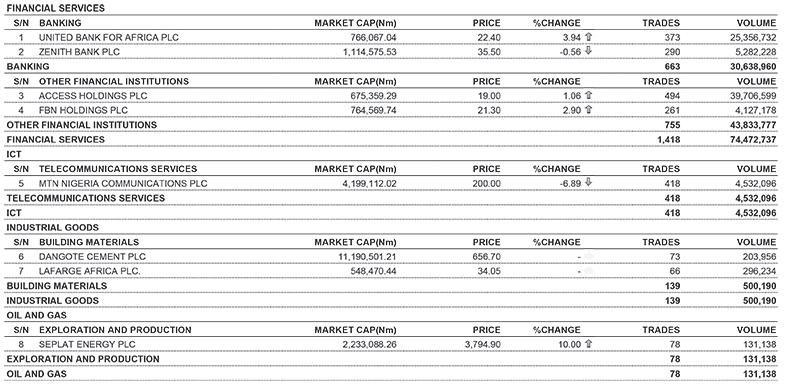

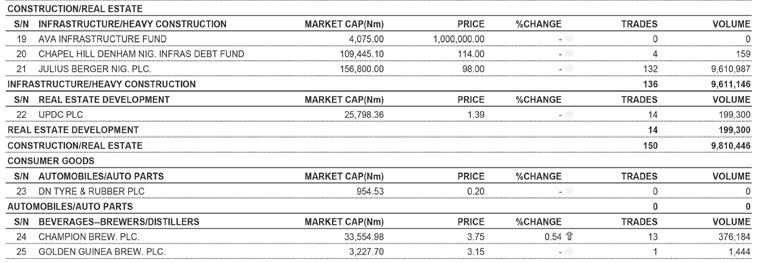
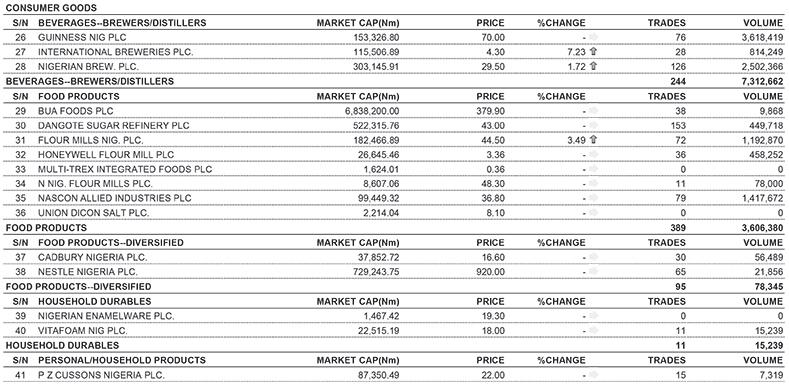

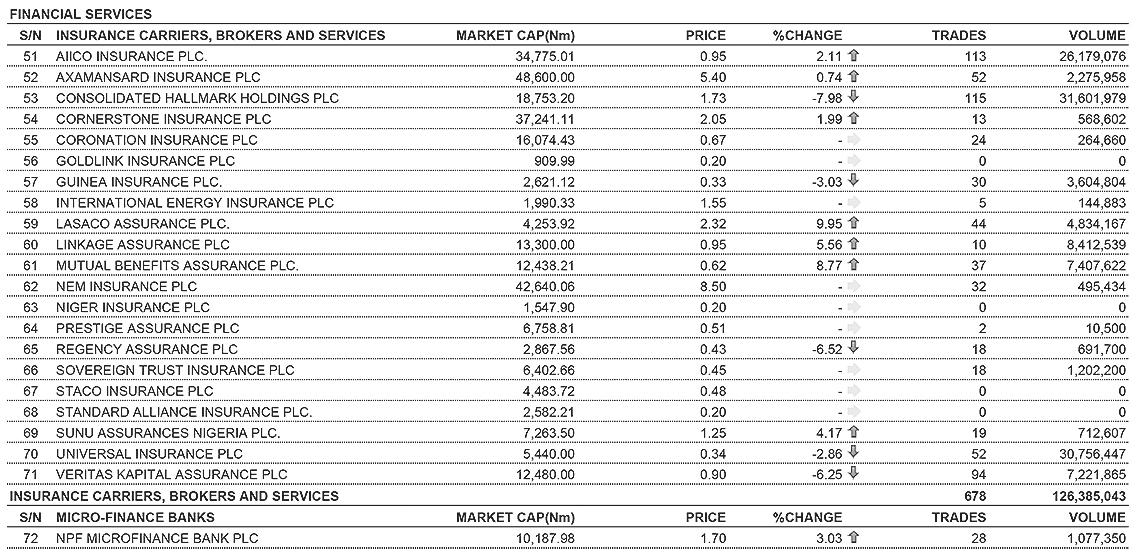

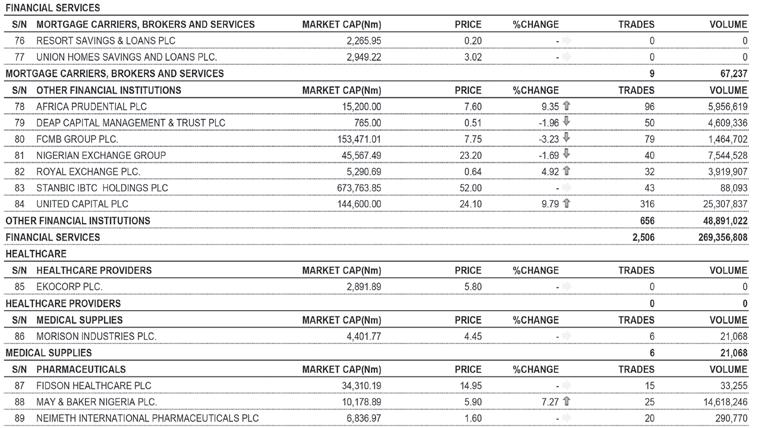
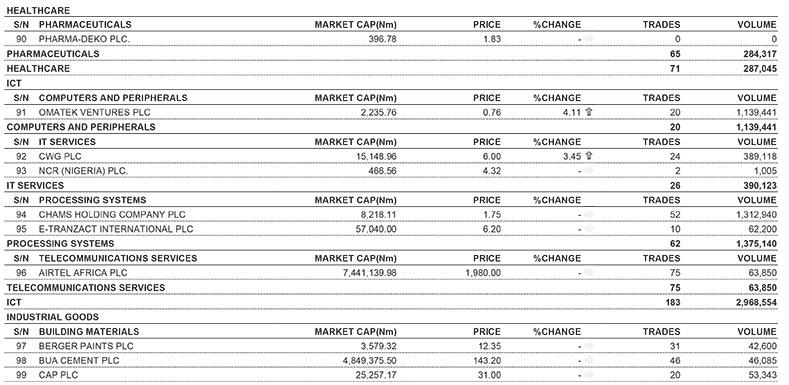

















































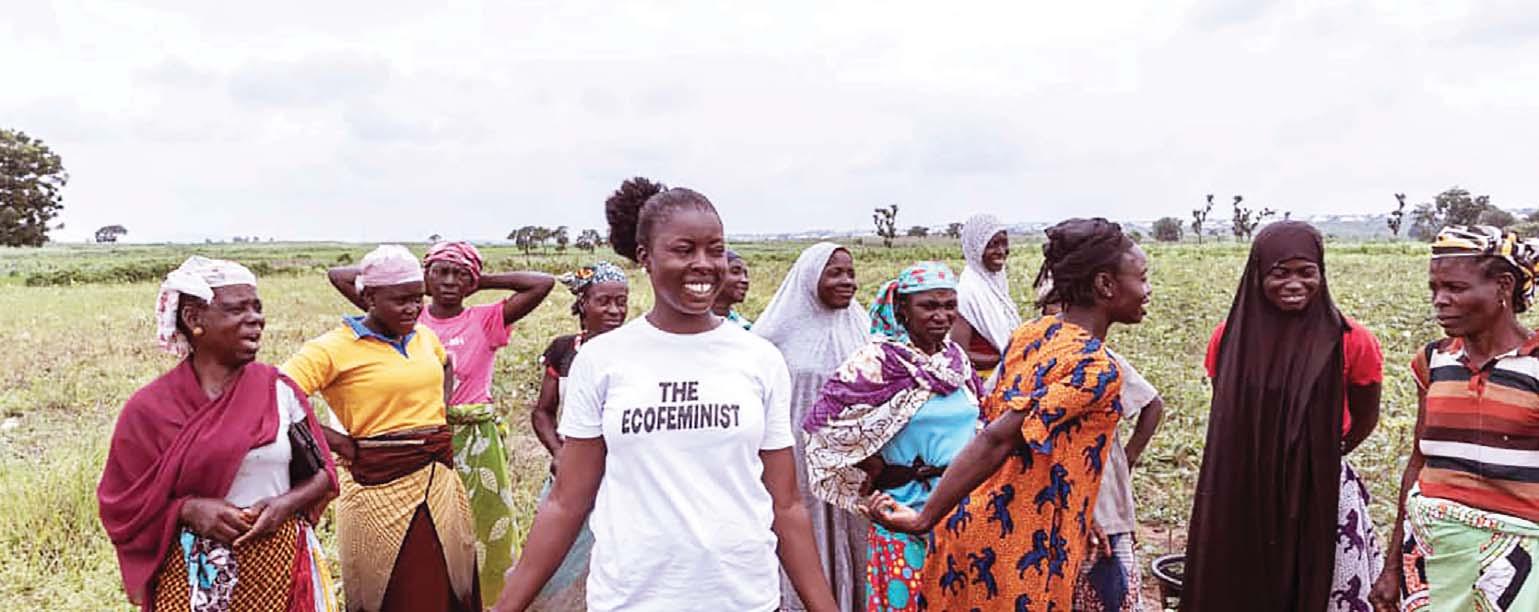
In a world where climate change and education are intertwined, one woman is leading the charge to ensure that every child has access to quality education, no matter what challenges they face. Adenike Oladosu, a renowned ecofeminist and climate justice leader, is spearheading a revolution in education in emergencies as the Global Champion of Education Cannot Wait. With her expertise and passion, she is shaping the future of education and creating a more sustainable world for all. In this exclusive interview with MARY NNAH, Oladosu shares her vision for a better future, her thoughts on the intersection of climate change and education, and her work as Education Cannot Wait’s Global Champion
What motivated you to focus on the global fund for education in emergencies and protracted crises?
Education Cannot Wait (ECW) is the global fund for education in emergencies and protracted crises within the United Nations. ECW is making a real difference in the lives of girls and boys worldwide by providing access to safe, quality education. ECW’s ground-breaking work to connect climate action with education action provides a visionary pathway to address the climate crisis.
In your journey as a climate change advocate, what would you identify as a major problem in protecting the environment?
The major problem is the ability to meet up with our climate promises. We have several financial pledges and commitments that we should have attained within a specific period, and yet, we are derailing from some. Among these are the targets included in the Paris Climate Agreement and Sustainable Development Goals. If we could meet all of these commitments, we would be one step ahead in solving the climate crisis. This problem can be resolved through stronger and deliberate actions by world leaders.
What’s the connection between the climate crisis and attaining quality education?
The climate crisis and education crisis are two sides of the same coin. Yet, the climate crisis is not a single crisis and one of the biggest disruptions to education. The very future of humanity is at stake. Rising seas, spiking temperatures and ever-more-severe droughts, floods and natural hazards are derailing development gains and ripping our world apart.
As we’ve seen with Cyclone Freddy in Mozambique, the floods in Pakistan, and the drought in the Horn of Africa and the Sahel, climate change is triggering jumps in forced displacement, violence, food insecurity and economic uncertainty in the world. These show that climate change is a threat multiplier, and the reality is that the climate crisis threatens education on every level.
When floods hit, they can wipe out schools entirely, preventing students from having access to their classrooms whilst destroying key infrastructure. When a cyclone hits, it displaces people from their homes, among those displaced are children who might not be able to have access to schools nor even return to school. When there is a heat wave, it affects the learning ability of the students and in some cases, it could lead to the closure of schools. This is pushing girls and boys out of school and derailing progress toward the Paris Agreement targets and Sustainable Development Goals.
As countries move toward climate-resilient economies and we make good on the commitments outlined in the Paris Agreement, this generation will be the powerhouse behind greener agriculture, climate-smart businesses and more efficient transportation. They will be the architects of the reimagined cities, economies and communities of the future.
Should climate change education be integrated into school curricula to promote a sustainable future?
Education is the cornerstone of addressing the climate crisis and providing 12 years of quality education to every child is crucial for equipping them with the skills, knowledge, and values necessary to respond to this global challenge. By prioritizing education, we can empower children to become active stewards of the environment, promote sustainable development, and address the systemic inequalities that exacerbate
climate vulnerability. Through education, we can inspire a new generation of leaders, innovators, and citizens who are committed to creating a greener, more resilient, and more equitable future for all. By investing in education, we are investing in the future of our planet, and ensuring that future generations inherit a world that is safe, prosperous, and just.
As we transition from fossil fuels to a green ecosystem, how can world leaders create job opportunities for young people in the sustainable energy sector?
ECW and our global partners are calling on leaders everywhere to ensure today’s youth have the green skills they need today to build toward a sustainable tomorrow.
For today’s youth, this means ensuring they have the knowledge and skills they need to use modern technologies, access jobs in the green economy, and have the capacity to lead and make sustainable decisions for their communities. Youth are the future of a green economy and climate resilience. Let’s invest in their education today to build a better future for generations to come.
What role can teachers play in educating students about climate change, and how can they be better prepared for this role?
Teachers are at the forefront of education and at the same time, the children are at the frontline of the climate crisis. Worldwide more than a quarter of a billion children are out of school altogether. They don’t even have a teacher. Once they are in the classroom, especially in the frontlines of crises, teachers are often untrained, underpaid and underqualified. We need to provide systematic training for teachers, support the creation of quality learning spaces, and provide funding to ensure every girl and boy, everywhere, can go to school. And every teacher, everywhere, has the support they need to succeed in their job.
How do you think climate change education can be made more engaging and relevant to student’s lives and future careers?
Long-term investments in human capital –including education, skills training and overall health and well-being – offer 10 times more return on investment than investments in physical capital.
Think about the school of the future and how it will cultivate the vast untapped potential of developing countries everywhere. Because we know that children perform substantially worse when they take exams on hot days, the school of the future is cooled by a low-cost, low-impact heat pump. It’s a vital step in bridging the achievement gap in under-served communities around the world.
As schools are essential community hubs for information – especially in places like refugee camps where electricity, communications and internet are non-existent or extremely limited – the school of the future serves as a community message board issuing early warnings on disasters and emergencies. With the school of the future, students become the teachers, activating community participation in climate awareness and environmental protection. That is, today’s students are tomorrow’s teachers and leaders.
Girls and women are the stewards of our planet. In the school of the future, girls gain valuable skills to find green jobs when they graduate while, at the same time, blazing new pathways away from child marriage, forced labour and continued marginalization.
Also, for boys, the school of the future is a pathway towards passing on positive and responsible skills that will empower society rather than being recruited to join non-state armed groups. Hence, it enables them to gain the right skills and knowledge for social good and the development of our society.
The climate crisis threatens to end human civilization as we know it today. Now is our time to address this issue head-on. By educating the world’s most vulnerable children, and connecting quality education with climate action, we can empower an entire generation of climate stewards that will guide us to a better future.
How do you measure your interventions’ impact on educational outcomes and resilience building?
Education Cannot Wait has successfully implemented several programmes that are helping with the immediate response and support of children in accessing education.
Globally ECW has reached a total of 8.8 million children with quality, holistic education support. We are working with our partners to establish metrics and markers for our climate work. Many early examples are arising as best practices.
In Pakistan, where massive floods destroyed more than 30,000 schools, the educational outcomes and resilience building is an example of the ECW investment delivered by UNICEF, ACTED and other local partners provided over 100,000 girls and boys affected by the floods with access to inclusive, quality education.
ACTED has embraced an interesting modality that combines education, sustainable livelihoods, disaster preparedness, response and recovery into a coordinated intervention designed to address broader stressors such as exclusion, poverty and environmental destruction: a whole-of-systems response to a whole-of-world problem.
Another similar example is in Chad, where ECW is investing in disaster-resilient classrooms. Traditionally, many classrooms were built in remote areas and refugee and displacement camps were built from temporary materials, such as straw, tarps and wood. But they are highly vulnerable to the forces of nature. Floods in late-2022 destroyed many of these temporary classrooms. To build back better, ECW is funding the construction of durable classrooms that are built to withstand future shocks and ensure children can continue their learning.
In Haiti, ECW investments are supporting the Ministry of Education to establish emergency response cells, set up disaster alerts, and prepare contingency plans centred around public schools and existing systems already well-positioned to reach broad swaths of the community.
This is not limited to the countries mentioned above, there are more outcomes of the ECW works especially in countries faced with the
interconnected challenges of climate change, forced displacement, conflicts and environmental degradation. Please check more on the ECW website.
In the quest to deliver effectively, how do you ensure that marginalised and vulnerable groups, such as girls and children with disabilities, are included in your education initiatives during crises?
Existing data show that most children and adolescents with disabilities are less likely than their peers to attend school, learn as much and move successfully from primary to secondary education. On the frontlines of the climate crisis, these inequalities compound with a heightened risk of violence and exclusion from education. Unfortunately, the humanitarian response has often failed to meet the requirements that guarantee access to education and a meaningful learning experience for girls and boys with disabilities.
ECW operates in low- and middle-income countries, where it is estimated that 80% of girls and boys with disabilities live. ECW’s work to enhance access to education and learning for children and adolescents with disabilities takes place at both the global and country levels. ECW raises awareness of disability inclusion among key stakeholders – including government, and humanitarian and development aid actors.
ECW also funds, through its Acceleration Facility, the generation of knowledge and tools that can help improve access and learning outcomes of girls and boys with disabilities in emergencies and protracted crises. At the country level, ECW leverages a two-pronged approach. In each programme, ECW seeks to target girls and boys with disabilities through interventions meeting their specific requirements. The Fund also ensures that all programme interventions embed the perspectives of learners with disabilities so that they can benefit and be active stakeholders equally with others.
Looking ahead, what are your priorities and goals for advancing the global fund for education in emergencies and protracted crises?
When Education Cannot Wait was founded in 2016, it was estimated that 75 million crisis-impacted children needed ECW’s support in accessing quality, holistic education opportunities. That number has tripled to 224 million, according to ECW’s Global Estimates Study in 2023, and we anticipate it will continue to rise as we prepare the 2024 report. To put that number in perspective, that’s more than the populations of Australia, France, Italy and the United Kingdom combined.
While the needs have skyrocketed in recent years, funding for education has not been able to keep pace. According to Educo, humanitarian appeals to meet education demands have dramatically increased more than sevenfold in the last decade – from US$517 million to US$3.7 billion – while contributions have only increased fourfold over the same period, from US$190 million to US$805 million.
Education Cannot Wait and our strategic global partners are working with governments, donors, civil society and the private sector to fill this gap. We have already mobilized more than US$900 million toward our 2023-2026 Strategic Plan. With US$600 million in additional funding, including $150 million for climate, we can reach 20 million crisis-impacted children with the power and opportunity that only quality, holistic education provides.
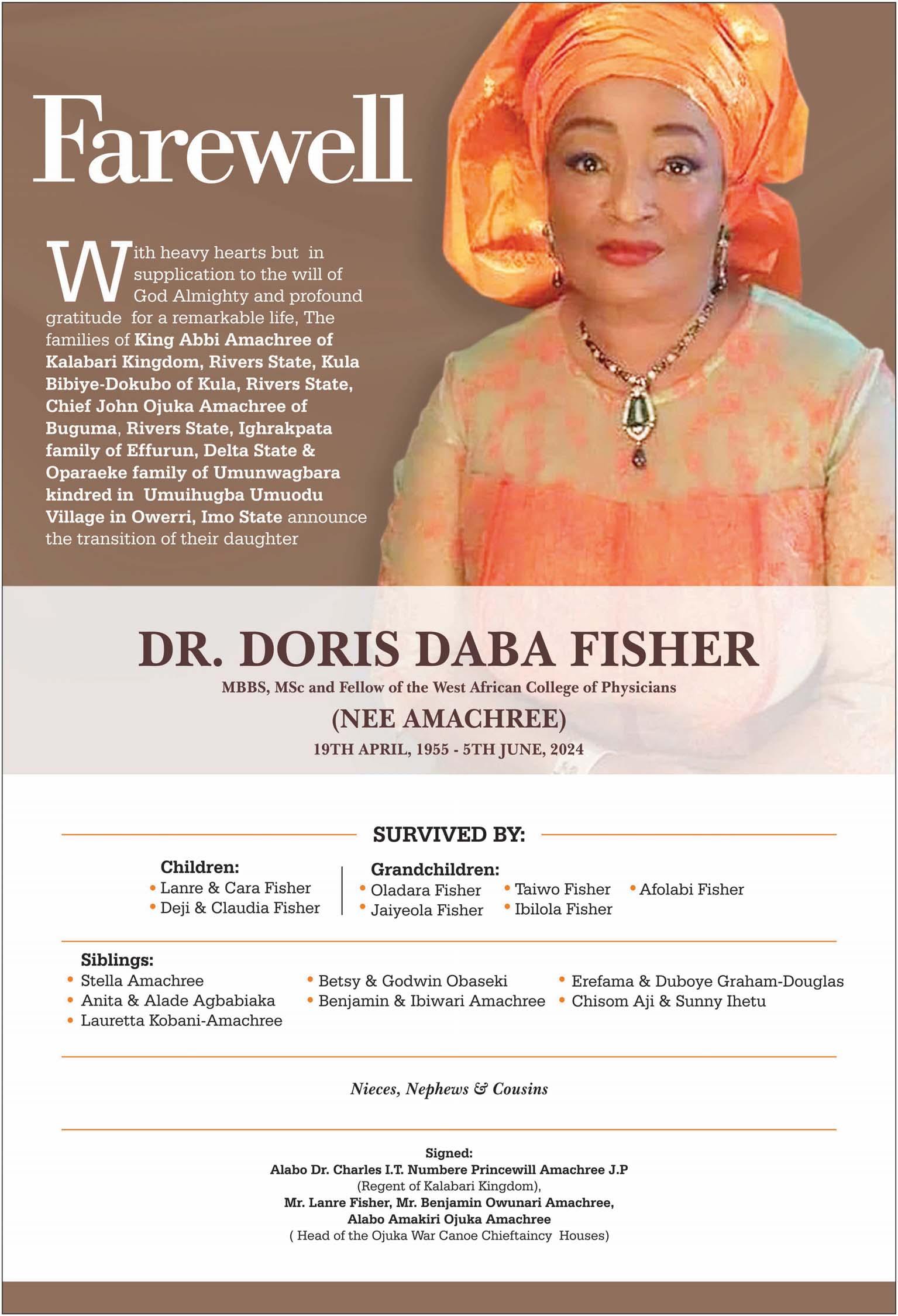
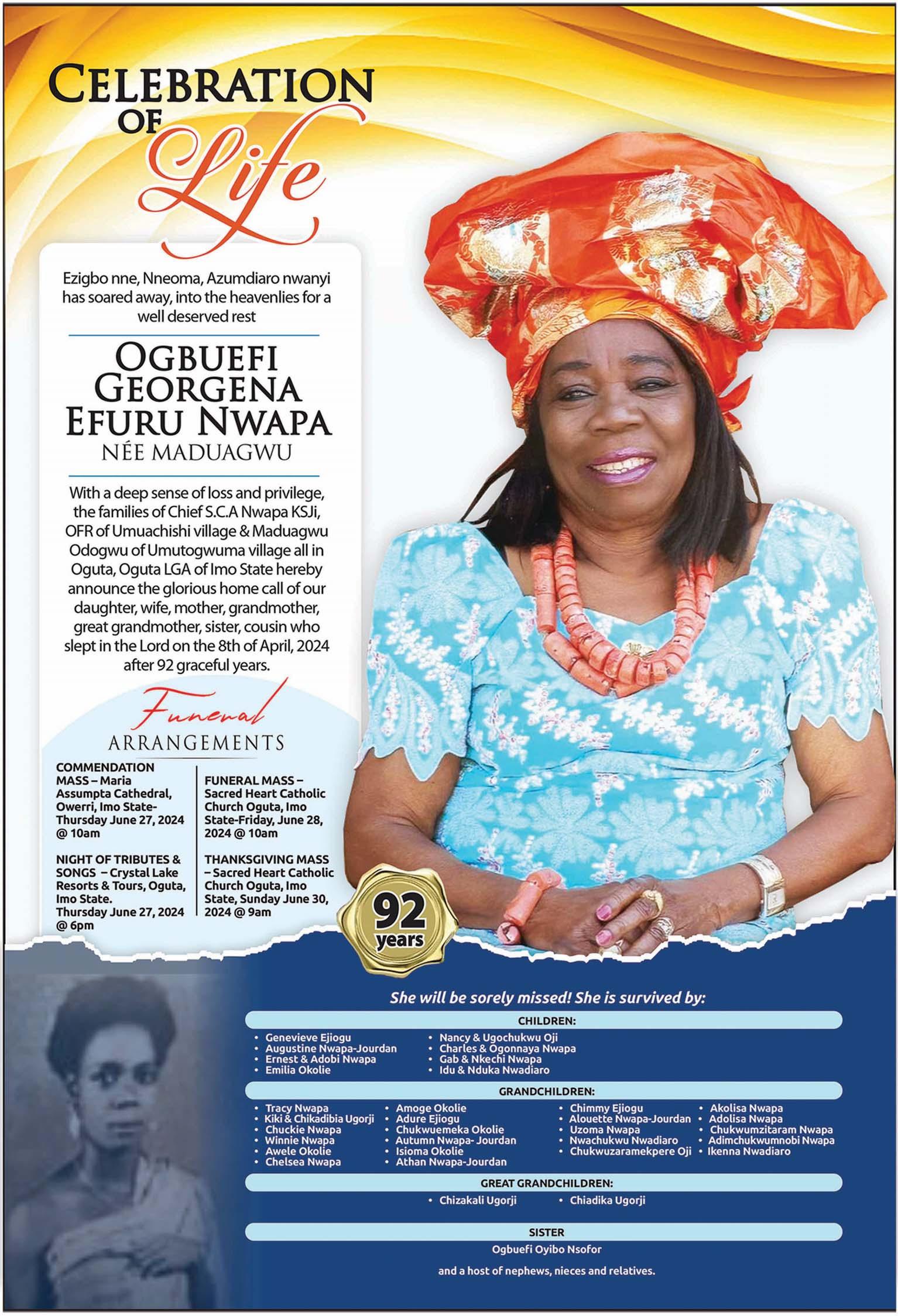

L-R: Director General, National Council on Climate Change (NCCC), Dr. Nkiruka Maduekwe; Special Presidential Envoy on Climate Change, Ajuri Ngelale; Minister of Budget and Economic Planning, Abubakar Atiku Bagudu; Director for Countries, Agence Francaise de Developpement (AFD), Philippe Orliange; Acting Ambassador, Republic of France to Nigeria, Jean-Francois Hasperue and Representative of Lagos State Governor/ MD LAMATA, Mrs. Abimbola Akinajo, during the 15th anniversary of AFD in Abuja ... yesterday
Emmanuel Addeh in Abuja
A House of Representatives member, Ikenga Ugochinyere, has argued that the purported fight for a southern president by the Minister of the Federal Capital Territory (FCT), Nyesom Wike, during the 2023 presidential election was about himself and not for the people of the region.
Speaking with Symfoni, an online television station, Ugochinyere argued that in Rivers state, the former governor of the state wanted to outdo a former Lagos state Governor and current President of Nigeria, Bola Tinubu, by taking full control of the politics of the entire state.
He stated that while Tinubu even tried to devolve power through the so-called Governor’s Advisory Council (GAC) in Lagos, Wike wanted to ration even the air his erstwhile political associates like Governor Siminalayi Fubara breathed.
Arguing that Wike has always been the aggressor, not Fubara, he maintained that if Wike’s position during the last election that he was fighting for the south was true, he would have accepted after a former Governor Ifeanyi Okowa and not him (Wike) was picked as vice presidential candidate.
“You once made us believe that the struggle was about south... It wasn't about the south, it was about you.
Okon Bassey in Uyo
Governor Umo Eno of Akwa Ibom State has authorized immediate release of the sum of 4.755 billion Naira, in keeping with his electioneering campaign promises towards regular payment of gratuities, the prioritization of the welfare of civil servants, and others related matters.
In a statement issued by the Chief Press Secretary to the Governor, Ekerete Udoh, the governor noted that the funds, will help cushion the effect of the current harsh economic situation in the country.
A breakdown on how the money will be released showed that N2.3 billion is for the payment of gratuities for retired state civil servants, retired primary school teachers, and retired local government workers.
The statement showed that N1.1 billion is for the one-off payment of wardrobe allowance for twenty thousand, three hundred and fortyfive (20,345) public primary school, technical college, and secondary school teachers.
The governor also released N1billion for the payment of bonuses (twenty thousand Naira) to each of the 52 thousand public service workers.
Also N79 million for the award of full scholarships for four Akwa Ibom indigenes who were recently granted admission to study the Standard Pilot Course and Standard Air Traffic Control Course at the Nigerian College of Aviation Technology,
Zaria, was released.
Additionally, 104 million Naira has been released as the first tranche payment of the 2024 primary school teachers' Leave Grant, and N172 million as a severance gratuity package for chairmen and vicechairmen of local government councils who served from 2018-2022.
The statement pointed out that the release of these funds further deepens the compassionate bonafides of the governor towards the downtrodden, which he had promised to champion.
The statement further read in part: "The construction of Arise Compassionate Homes throughout the state, which he is currently being celebrated for; the monthly N50 thousand palliative for elderly care throughout the state; the free medical outreach programmes he has been funding; the Arise Free Food Voucher programme executed under the Bulk Purchase Agency; and the N2 billion interest-free loans to traders as well as Arewa, Yoruba, Igbo and Niger Delta communities in the state;
“Other include the N500 thousand grant given to each of the over 800 budding entrepreneurs under the IBOM-LED Entrepreneurship Accelerator Programme (EAP); the payment of bursary and other educational grants, among other infusion of funds towards the expansion of soft infrastructure while also executing bold and audacious hard infrastructure, define Governor Eno as a man who has kept faith with his campaign promises."
So the south is you. Because, now yes, for whatever reason, Abubakar Atiku didn't announce him as vice president.
“He announced Okowa. Is Okowa a lesser human to be a vice presidential candidate? For whatever reason, it was about south-east and the south. Since you are willing to be a VP, but it was given to Okowa, your brother, you should support him.
“So, character, measuring character is also important. When people say he contributed so much, no. He didn't contribute more than some
of us. We all contributed. Everybody contributed. Because the question I will ask you, what did he actually save us from? He saved us from the fire he put up.
“So when a man puts fire in his bedroom, and he gets extinguisher to take it out, we see him as a great man. You brought Modu Sheriff single-handedly. Some of us had reservation about it because of his past in his other party.
“He started quarrel with Sheriff...It ended in commotion, remember? We all went to court. I was the one that
secured it. I went to court. I secured the injunction, the court judgment that nullified Sheriff's chairmanship and quest to hold on to power. I have a stake. I know this journey very well. So he led us into that crisis,” the federal lawmaker argued.
On Fubara, he asserted that the reason for the disagreement with Wike was that the FCT minister wanted to control the entire government without conceding anything to his successor.
“What led to an impeachment being served on him (Fubara) on
that day? What led to him being fired at and a hot water tank sprayed on him by the police. I want all Nigerians to ask that question because getting at that question will help us unravel what this whole madness is all about.
“What happened? Because even Asiwaju (Tinubu) with all his being a political maverick doesn't control Lagos 100 per cent, he shares it among the key stakeholders you have in the GAC or what they call that group. But you are the only one.
Blessing Ibunge in Port Harcourt
Supporters of the Minister of Federal Capital Territory (FCT), Nyesom Wike, have dismissed claims by the Rivers State Governor, Siminalayi Fubara, that there was an attempt bomb the Hotel Presidential in Port Harcourt on Tuesday.
The supporters under the aegis of Rivers Leaders Forum (RLF), described the claims as "misinformation" and
"deliberate efforts to undermine the state's peace and security."
Speaking with Journalists in Port Harcourt, yesterday, the forum clarified that a peaceful march was held in Obio/Akpor Local Government Area to show solidarity with Wike and express gratitude to the police for maintaining peace despite provocative actions.
They insisted that the march did not involve a failed attempt to blow up Hotel Presidential, as alleged by
the state government.
Speaking on behalf of the group, former Senator representing Rivers South-East Senatorial District, Senator Olaka Nwogu, accused Fubara of misinformation and urged the public to disregard his claims.
He emphasised that the peaceful march was a demonstration of support for Wike and a testament to his successful tenure as governor.
"To be clear on the matter
of the explosion at Hotel Presidential, there was no incident at the hotel associated with the Peace March as the routes for the march are completely different from the location of Hotel Presidential,"he said.
He stated that the peaceful walk had a distinct route, starting from Rumueme Civic Centre along Ikwerre Road and ending at People's Club premises along RumuiolaRumuadolu Road.
James Sowole in Abeokuta
The Ogun State Government, yesterday, read riot act to allotees of its housing schemes in various parts of the state, warning them not to resell the houses, within two years after handing over the houses to them.
The government also warned that it would revoke allocation of any allotees who failed to take physical possession of their houses, within 60 days after handing over.
The Commissioner for Housing, Chief Jamiu Omoniyi, disclosed the decisions of the government, at a news conference held to highlight some policies of Governor Dapo Abiodun's Administration on housing.
The commissioner also clarified issues on controversies that ensued,
over the government's demand that allotees, should bear 50 per cent of infrastructural facilities including roads, electricity, water among others in the estate.
Omoniyi warned that any allotees found to have resold the houses in order to make profit within two years, would be surcharged with the application of the principle of "Best of Judgment" Assessment.
According to him, any allotee that sold his or her allocation, would be reported to appropriate tax authority, that shall handle the matter in accordance with the rule set as conditions precedent before entering into the contract.
He specifically, Said allocations of any person that failed to take physical possession of the property, would be revoked and reallocated to other subscribers that have met
the criteria.
He said: "Low-cost housing schemes are not for profit making but social services for low-income earners and civil servants.
"We have discovered that some of the subscribers do not subscribe to live there but for speculative purpose. They get the houses and wait for three months or one year and sell the house for say N20 million.
"Government frowns at a situation whereby somebody bought a house for N5.5 million and sold the same for say N20 million within short period.
"Moreover, not taking possession of one's allocation shows that one does not need it and it shall be allocated to someone that needs it and subscribers shall be refunded.
"We have revoked allocation of 20
houses at Kobape Phase II because allotees did not take possession within the stipulated period."
The commissioner disclosed that provision of affordable housing units is a deliberate policy of Governor Abiodun Administration.
He said that out of 5,000 units targeted by the administration, more than 4,000 within first term of the administration has been delivered.
Speaking on the controversies that recently ensued on the housing scheme, the commissioner disclosed that out of the 200 subscribers of the Kobape Phase III Scheme, 110 would be allocated next week. He said the allocation shall be done on first-come, first-served basis depending on meeting of certain condition precedent and rules set in the form obtained by would be subscribers.
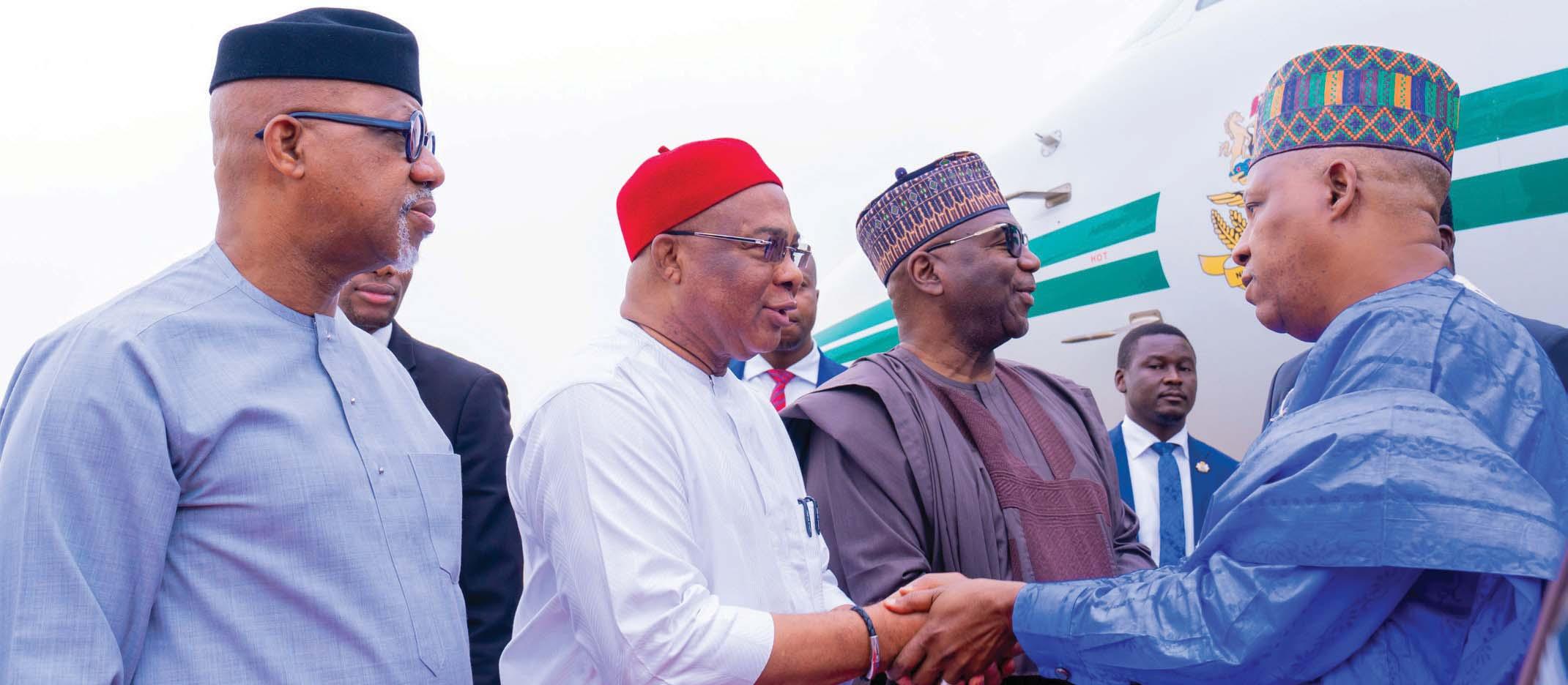
Alex Enumah in Abuja
Fugitive former governor of Kogi State, Yahaya Bello, has asked the Chief Judge of the Federal High Court, Justice John Tsoho, to transfer his alleged money laundering charge to the division of the court in Lokoja.
Bello predicated his request on the grounds that the proper place for trial is the place the alleged money laundering offence was committed.
Attempt by the Economic and Financial Crimes Commission ( EFCC), to arraign the former governor over charges bordering on money laundering to the tune of over N80 billion have been unsuccessful since April this year.
Justice Emeka Nwite of the Abuja division of the Federal High Court had on June 13, following request of prosecution counsel, Mr Kemi Pinheiro, shifted Bello’s arraignment to June 27.
However, when the matter was called Bello was not in court and one of his lawyers, Mr Adeola Adedipe SAN, informed the court
(Mitigation, Adaptation, Preparedness and Response), presented by the governor of Kogi State, Ahmed Ododo, which called for the revitalisation of State Emergency Management Agencies (SEMAs) and improved coordination between different levels of government.
The council also resolved that the vice president, Minister of Finance and Coordinating Minister of the Economy, Minister of Agriculture and Food Security, Minister of Water Resources and Sanitation, and Minister of Budget and Economic Planning should meet on Monday to strategise on funding sources to mitigate the climate challenge facing the states.
The outcome of the meeting will be presented to the president on Tuesday. NEC also resolved to adopt the recommendations of the committee's report on implementation and provision of funds to states and relevant MDAs to address the problems.
On update from NEC Ad-Hoc
that the defendant was not in court owing to a letter seeking the transfer of the trial from the Abuja division to the Lokoja division of the court.
Specifically, Adedipe said the request for Lokoja was due to the fact that the Federal High Court has territorial jurisdiction to hear the matter in Lokoja.
According to the senior lawyer, the CJ has already activated administrative steps in that direction by writing to the prosecution lawyer and requesting his response within six days.
He added that the legal team of the former Kogi governor was still awaiting the response of the Chief Judge on the request for transfer of the case to Lokoja.
“Although the letter requesting for transfer of this matter to Lokoja, was written by Yahaya Bello’s lead counsel, Abdulwahab Mohammed SAN, I am however under obligation to draw the attention of this honourable court to the issue,” Adedipe said.
The defence lawyer said the prosecution had been notified and
Committee on Economic Affairs, presented by Governor of Kwara State, Alhaji AbdulRahman AbdulRazaq, the council resolved that the committee aligns its mandate with the National Economic Management Team [NEMT] to come up with robust solutions to the country's economic challenges.
The committee was working closely with states to address challenges related to foreign exchange loan facilities and fuel pricing.
The Ad-Hoc Committee on Crude Oil Theft Prevention and Control, chaired by Uzodinma, presented key recommendations as part of interim measures to improve security at oil and gas terminals and enhance regulatory oversight in the sector.
Oyo State Governor Seyi Makinde was co-opted into the committee as a subject matter expert, just as the committee was mandated to submit its final report to council within one month.
The council also received an update on the ongoing discussions
their opinion had been sought via a letter dated June 14, 2024 from the Chief Judge’s office.
“The letter, addressed to EFCC Counsel, Rotimi Oyedepo, SAN, was signed by the Special Assistant to the Chief Judge, Joshua Ibrahim AJI, Esq.
“You will find attached the
copy of a letter by Counsel to the Defendant on the above subject matter, dated June 10, 2024.
“I am directed by His Lordship, the Honourable, the Chief Judge, to forward the letter to you for your response within 6 (six) days of receipt,” the letter read in part.
But the request for transfer was
vehemently opposed by the EFCC lead counsel, Dr Kemi Pinheiro, SAN, who described it as an attempt to frustrate the trial.
The EFCC lawyer pleaded with Justice Nwite to hold Adedipe and Mohammed, responsible for their inability to produce their client in court, despite the undertakings they made. The EFCC lawyer also requested that the two SANs be cited for contempt of court. Meanwhile, the court has fixed July 17, for arraignment of the former Governor and ruling on the request of EFCC to cite the SANs for contempt.
The Armed Forces of Nigeria (AFN), yesterday, said that its troops deployed to different theatres of operations, across the country, killed no fewer than 2,245 terrorists, arrested 3,682 others, and rescued 1,993 kidnapped hostages, in the second quarter of this year.
The armed forces also revealed that troops recovered 2,783 weapons,
regarding the establishment of state police, and urged states to expedite their submissions on the matter.
In a move to bolster food security, Shettima announced the presidential approval for operationalising the Presidential Food System Coordinating Unit, tasked with developing robust economic solutions for the country's food system.
The council also received updates on the country's financial standing by Minister of Finance and Coordinating Minister of the Economy, Mr. Wale Edun, with the Excess Crude Account reported at $473,754.57, the Stabilisation Account at 28,738,722,369.83, and the Natural Resources fund at 53,891,102,650.71.
In his opening remarks, Shettima linked the boost in Nigeria’s economic outlook to the financial prudence and transparency framework adopted by Tinubu.
According to him, “At the helm of the nation’s affairs is a leader who always reminds us of the necessity of making the right calls to deliver
64,547 ammunition and denied the oil theft of an estimated sum of ten billion, five hundred and thirty-three million, one hundred and thirty one thousand, four hundred and seventy naira, only.
Director, Defence Media Operations, Maj Gen Edward Buba, made this disclosure during a press conference at the Defence Headquarters (DHQ), in Abuja. Buba further revealed that troops
on our promises to the nation.”
The vice president explained why Tinubu earned and deserved the title, Jagaban, conferred on him by the Emir of Borgu, saying the president is Jagaban (the front-row commander), he has a rare political virtue that has made him the unifying nub of the zeal to serve the country.
Shettima said, “Again, we highlighted Nigeria's improved credit outlook by Fitch Ratings, owing to Mr. President’s transparency and effective financial management to further the nation’s economic progress.
“Today, as we prepare for the agenda of the day, I am excited by the presence of His Excellency, President Bola Ahmed Tinubu, a reservoir of ideas, a visionary extraordinaire, as he guides us towards finding a common ground.
“Nobody can do so better than he does, and it is this rare political virtue that has made him the unifying nucleus of our aspirations to serve the nation.
He is the Jagaban, the front-row commander, for a reason.”
recovered 9,225,149 litres of stolen crude oil, 2,874,916 litres of illegally refined AGO, 29,900 litres of DPK and 31,380 litres of PMS amongst other items.
He noted that the weapons and ammunition recovered include, 1,169 AK47 rifles, 36,273 rounds of 7.62mm special ammo, 14,764 rounds of 7.62mm NATO, 713 assorted arms and 9,850 assorted ammo.
He also noted that the military has emplaced measures to guarantee security of farmers throughout the raining season, as part of effort to ensure food security.
While answering questions on the strategy the military is adopting to provide security to farmers across the federation, Gen Buba said: "Operational flexibility allows us to attend to strategic need as it arises. In this particular instance, and answering your question, we have looked into the issue of protecting our farmers and farm lands.
“This is because we are in the raining season, and we have a situation in the country where it seems like food shortage is around the corner and we must not allow that to happen, that is very strategic and as a result of that we must protect these farms. We must ensure that they are able to farm so that we can have a bumper harvest afterwards, and then the citizens will have food on their tables.
“I will however not reveal our operational strategy on how we are doing that to you because we are aware that the enemies are also
watching us as we speak".
He said, the terrorists exist for the sake of war and for the sake of peace, they would continue to kill them. On the security in FCT, Gen Buba said, "Our troops are out there in every corner of Abuja including the mountains. We also have our men who are picking intelligence for us to prevent crimes before they occur".
He said the resolve of the armed forces is very clear and it is to destroy the terrorist and dismantle their military capabilities in order for citizens to be safe. He said that troops are actively fighting in different forms and retain operational flexibility which gives them the ability to respond to different events and to project forces according to strategic needs.
Buba noted that the military has greatly degraded the terrorist, even though they are still present in the theatres of operation.
Stressing that it would take time and effort to completely destroy these terrorists, particularly as counter insurgency is akin to a marathon not a sprint, the director said, "It is safe to say that the terrorist have prioritised their military capability over everything else.
“This is because as our forces advance and clear areas in which these terrorists hibernate, we continue to recover weapons, explosives and IEDs which are indicative of the priorities of the terrorist".
He concluded that the military will continue to wipe out the terrorist through synchronised ground and air operations.

L-R: Non-Executive Director, CAP Plc, Mr. Debola Badejo; Executive Director, Commercial, Ifeoma Chuks-Adizue; Chairman, Mr. Folasope Aiyesimoju; Non-Executive
and Non-Executive Director, Mr. Vitus Ezinwa, at the 59th Annual General Meeting of the company held in Lagos…recently
John Shiklam in Kaduna
Operatives of the Kaduna state police arrested 1,137 suspected criminals in the past two months.
Addressing a press conference yesterday at the command’s headquarters in Kaduna, the Commissioner of Police(CP), Audu Dabigi, said the arrested suspects include 73 armed robbers, 79 kidnappers and 985 phone snatchers.
Dabigi also said five AK47 rifles, seven locally made rifles, 1,817 rounds of ammunitions, eight vehicles and seven motorcycles were recovered from the suspects within the same period.
Giving details of the arrests, he said a suspected Railway vandal - Naim Mikaila, a resident of Kajuru, was found in possession of 100 pieces of railway tracks without providing satisfactory
Sunday Okobi
The National Institute of Marketing of Nigeria (NIMN) has inducted 58 Fellows and other members into various membership categories, underscoring its commitment to fostering high standards of professionalism and expertise in the industry.
The induction ceremony held during the Annual Marketing Conference in Ibadan, the Oyo State capital, had as its theme: ‘Empowering Nigerian Brands: Leveraging Local Content for Global Success’.
It was learnt that over 200 marketers were conferred as Associate Members, Full Members, and Fellows of the Institute after a thorough assessment and confirmation process.
Addressing the new inductees, President and Chairman of the NIMN Council, Mr. Idorenyen Enang, emphasised the importance of upholding the highest standards as marketing professionals.
He urged them to familiarise themselves with the NIMN Act, stressing that ignorance of the law is not an excuse.
Kemi Olaitan in Ibadan
The President of the International Council for Ifa Religion (ICIR), Dr. Fayemi Fakayode, has hinged the survival of the Yoruba language and culture on the preservation and promotion of traditional religion.
He made the assertion while delivering a lecture titled: ‘Yoruba Language and Culture, Yesterday, Today and Tomorrow’, at the Palace of Ooni of Ife, Oba Adeyeye Enitan Ogunwusi, during the 2024 Annual Cultural Festival organised by Egbe Akomolede
Ati Asa Yoruba, Nigeria, Ekun Ife (Association of Teachers of Yoruba Language and Culture, Nigeria, Ife Zone).
The ICIR president in a call on South-west governors of Osun, Oyo, Ogun, Ondo, Ekiti and Lagos States to immediately commence process of changing the language of all textbooks used in primary and secondary schools to indigenous Yoruba language, emphasised that without traditional religious practices, the language, and its rich cultural heritage might face imminent extinction.
Funmi Ogundare
The Akin Fadeyi Foundation (AFF) yesterday, hosted an impact series event to honour Victor Ogunmola, a geoscientist and the President of I-Scholar Initiative (ISI).
Ogunmola founded the ISI to mentor and motivate young African students from underprivileged backgrounds, providing them with fully funded scholarships abroad to pursue their graduate studies and achieve their dreams.
The impact series aimed to
celebrate Nigeria’s “unsung heroes” during their lifetime.
Speaking during the virtual programme, the Executive Director of the AFF, Mr. Akin Fadeyi, commended Ogunmola for his efforts in helping indigent students over the years to fulfill their dreams.
He described Ogunmola as exceptional and passionate about impacting the lives of people despite his background.
Funmi Hector-Olukoya, a partner at ISI, described Ogunmola as an achiever.
explanation.
Also arrested, according to the CP, were eight notorious armed robbers, three receivers of stolen items and a cyber criminal, who specialises in unlocking phones
and alteration of I.M.E numbers.
He said the suspects, namely, Khalid Lawal, Abdulhamid Zubairu and Musa Yusuf were arrested by police surveillance team along Yakowa Expressway,
Kaduna.
Dabigi said the suspects, who were armed with guns, knives and matchets, made confessional statements which led to the arrest of Aminu Aliyu (a.k.a Bosho),
targets of the suspects.
Gbenga Sodeinde in Ado Ekiti
The management of Ekiti State Universal Basic Education Board has relieved the Head Teacher of St. Philips CAC Nursery and Primary School, Erio - Ekiti, Mr. Adeniyi Olutayo Ayodele of his post for two months with immediate effect over allegation of illegal collection of fees from pupils of the school.
The Executive Chairman of SUBEB, Prof. Femi Akinwumi, said in Ado Ekiti that the decision became necessary after the Head Teacher had confessed that he committed the infraction and pleaded guilty to some of the allegations leveled against him.
Prof. Akinwumi said the man had persisted in the illegal activity despite several warnings against such act which is described as sabotage against the free and compulsory education policy of the present administration in the state.
He revealed that evidence proved that Ayodele was collecting the sum of N25,000.00 from each of 28 pupils in primary six while another N8,000.00 was being collected from each of primary four pupils. Prof. Akinwumi said the punishment was to serve as deterrent to other Head Teachers in the state public primary schools who are fond of breeching government policies
SegunAwofadejiinBauchi
Ten Officers of the Nigerian Army Armoured Corps (NAAC) were yesterday pulled out of service having spent the mandatory years of service in the Force.
The pulling out ceremony was held as the climax of series of events
organised by the Headquarters of the NAAC, Bauchi including the inauguration of its new headquarters complex performed by the Chief of Army Staff (COAS), Lieutenant General Taoreed Lagbaja on Wednesday. Those pulled out of service were Six major generals including the
Reviewing officer, Maj Gen Nsor Okpa Ojiji alongside Major General, MH Magaji, Major Gen GB Audu, Maj Gen M Danmadami, Major Gen JG Mohammed and Major Gen UI Moh’d
Others are four Brigadier Generals including, Brigd Gen A Israel,
Brig Gen BA Moh’d, Brig Gen D Abdulsalam and Brig Gen SPAkpan.
Speaking after reviewing the Special Parade proceeding the pulling out, the Reviewing Officer, Maj Gen Nsor Okpa Ofilii expressed gratitude that the tradition has been kept and came to their own turn urging that it should be kept on.
Tony Icheku in Owerri
The Imo State Commissioner for Information, Public Orientation and Strategy, Declan Emelumba yesterday denied the allegation by the National Secretariat of the Nigeria Labour Congress (NLC), that the state has not been paying workers the N40,000 minimum wage. Emelumba, who claimed that Imo State Government not only pays N30,000 wage since 2020, added that the government topped the payment with N10,000 to make it the N40,000
minimum wage.
“Even the Imo State NLC chapter clearly admitted that workers in the State had been receiving N30,000 minimum wage since 2020. The same State chapter also admitted that since the removal of fuel subsidy, the workers now receive N40,000 as minimum wage.
“We wonder what the NLC National secretariat stood to gain by dishing out falsehood to Nigerians, whereas the workers in Imo have acknowledged the payment of N40,000 minimum wage to them by the State government.”
Olusegun Samuel in Yenagoa
As part of efforts to educate and empower entrepreneur, small and medium-sized enterprises in the export sector, the Nigerian Export Promotion Council (NEPC) said the commission was ready share
insights, strategies and empower local businesses to compete on the global scale.
Speaking at a workshop organised by the commission in collaboration with the Bayelsa State Ministry of Trade, Industry and investment for would-be-exporters, the State
Leading Nigerian right advocacy non-governmental organisation, Legend Golden Care Foundation (LGCF) has demanded tougher legislations and deterrent actions against all forms of torture in the country.
Coordinator of NEPC, Mrs. Sylvia Adeneye, said it was committed to ensuring Bayelsa fulfilled its full potentials in the export trade.
She said: “Bayelsa State, known for its rich natural resources and strategic location, holds immense potential for export. However, tapping into
The NGO also demanded stronger government policies and collaborative actions by stakeholders to ensure punishment for perpetrators as well as prompt redress and rehabilitation for victims and survivors of torture in Nigeria LGCF Executive Director, Mrs. Kanayo Olisa-Metuh, who stated
this potential requires a converted efforts of all stakeholders, including government agencies, private sector, the participants, and all the communities at large.
“NEPC is committed to fostering an environment where businesses can thrive through export activities.
this in Abuja, while delivering her opening speech at a two-day workshop facilitated by International Rehabilitation Council on Torture (IRCT) and funded by the European Union (EU) and United Against Torture Consortium.
June 26th is observed as the UN International Day in Support
of Victims/Survivors of torture across the world.
Insisting on tougher legislations against torture, Mrs. Olisa-Metuh stressed that the National Preventive Mechanism (NPN) must be equipped with strong legislative and necessary human and financial resources to thrive.
Emmanuel Ugwu-Nwogo in Umuahia
The Abia State Government has come under condemnation for imposing restrictions on commercial tricycle (Keke) and motorcycle operators in Umuahia
and Aba with effect from July 1, 2024.
The state Commissioner for Local Government and Chieftaincy Affairs had last Tuesday announced the government decision that tricycles and motorcycles would operate
in the two cities between 6 a.m. and 7 p.m.
He said it was among the measures taken to curb rising wave of criminalities in the state, especially in Umuahia, the capital city and Aba, the commercial hub.
But a group of youth leaders
under the aegis of Coalition of South East Youth Leaders (COSEYL) has said that placing restriction on people that use Keke and motorcycle operations as means of livelihood was a misguided policy given the present economic situation.
Kayode Tokede
The Director-General of the Security and Exchange Commission (SEC), Mr. Emomotimi Agama, yesterday disclosed that the Nigeria’s crypto-currency market is estimated to be worth over $400 million, with a significant portion of the population involved in crypto-currency trading and transactions.
Speaking at the 2024 Annual Conference of the Association of Capital Market Academics of Nigeria (ACMAN) in Abuja, with the theme: ‘Crypto Assets and the Nigerian Economy: Implications for Financial Markets Regulation’, the
SEC DG said the volume of the crypto-currency market in Nigeria would hit $52.5 million in 2028, indicating a 12.66 per cent increase between 2024 and 2028.
According to Agama, despite economic challenges, the country has emerged as one of the leading countries globally in terms of crypto adoption and volume of transactions.
He said: “Reports indicate that Nigeria’s crypto transaction volume reached $56.7 billion between July 2022 and June 2023, representing a nine percent year-over-year growth.
“The country’s crypto market is estimated to be
worth over $400 million, with a significant portion of the population involved in crypto-currency trading and transactions.”
While disclosing that approximately 33.4 percent of Nigerians own or use crypto-currencies, the directorgeneral said the country can take advantage of the large number to further provide financial services for the over 38 million unbanked adults. According to him, some people don’t have bank accounts but they have wallets.
He added that cryptocurrencies can also provide cheaper and more efficient methods of remittance for Nigerians in diaspora.
Sylvester Idowu in Warri
Delta State Commissioner of Police, Olufemi Abaniwonda, has decorated three newly promoted Deputy Commissioner of Police and an Assistant Commissioner of Police with a charge to justify their elevation by the Inspector General of Police (IG), Kayode Egbetokun.
The newly promoted officers were DCP Oladipo Sunday; DCP Abubaka Mohammed Bashir; DCP Lamba Dauda Bot, and Assistant Commissioner of Police, Imade Osazee Graham.
Until their elevation, the newly promoted DCPs were the Area Commander, Asaba; Area Commander, Warri, and Area Commander, Ogwashi-Uku respectively, while ACP Graham Osazee Imade was the immediate-past Commander Dragon Patrol, Delta State Police Command.
According to a statement issued yesterday by the state Police Public Relations Officer (PPRO), Edafe Bright, CP Abaniwonda, who was assisted by the Deputy Commissioner of Police, Administration, DCP Wilfred Afolabi, decorated the newly promoted officers on behalf of the Inspector General of Police, Kayode Egbetokun.
He admonished all the beneficiaries that the reward for hard work was
I, formerly known and addressed as ILECHIE GLADYS NNEKA, now wish to be known and address as OGUCHE GLADYS NNEKA All former documents remain valid. The general public should take note.
I, formerly known and addressed as MISS OKECHUKWU ESTHER CHIWENDU, now wish to be known and addressed as MRS MADUEKWE ESTHER CHIWENDU. All former documents remain valid. The general public should please take note.
I, formerly known and addressed as UZER AONDOHEMBA PATRICK, now wish to be known and addressed as UZER PATRICK AONDOHEMBA. All former documents remain valid. The general public should please take note.
I, formerly known and addressed as PETE TOCHI ANELE, now wish to be known and addressed as TOCHI PETE ANELE. All former documents remain valid. The general public should please take note.
more work, and therefore advised them to put more effort while discharging their
duties and ensure that they do not disappoint the IG and the public.
Sunday Okobi
Grooming Splash, a non-profit organisation has reiterated the need to empowering MSMEs, clienteles and women-led businesses to weather the storms of economic hardships in the country.
Speaking at the 13th edition of Grooming Splash in Lagos, the Chief Executive Officer, Dr. Godwin Nwabunka, explained the broad reach of the 386 winners, spanning 32 states in the country.
He also noted that the ecosystem of grooming splash has grown over the last 13 years to providing array of grants, individual loans, SMEs loans, establishment of grooming centres and lending platforms for SMEs and Women-led businesses to improve business climate for young indigenous entrepreneurs in the country.
He remarked that this year’s edition leveraged technology to ensure inclusivity and transparency, further showcasing our commitment to innovation.
The non-profit firm also buttressed the need to support women in businesses, adding that this had led to the
I, formerly known and addressed as MISS ESEOGHENE ANATASIA ONOSE now wish to be known and addressed as MRS. ESEOGHENE ANATASIA DUNKWU. The general public should please take note.
I formerly known and addressed as MISS MBONU IFUNANYA JUDITH. Now wish to be known and addressed as MRS GUDNI JOHANNESSON IFUNANYACHUKWUEBUKANEBEMNO JUDITH. All former documents remain valid. General public take note.
I, formerly known and addressed as AMUDIPE BOBOYE ADENIJI, now wish to be known and addressed as BOBOYE ADENIJI OLUWAFEMI. All former documents remain valid. The general public should please take note.
This is to notify the general public that: THE LOVE OF JESUS FAMILY CHURCH, is now to be known as and addressed as: HIS SALVATION HOUSE OF GRACE GLORY REALM INTERNATIONAL MINISTRIES (A.K.A. KINGS DOMAIN) All former documents remain valid. General public please take note.
establishment of over 600 branches spanning across the 32 states for the past 13 years to provide scholarships, grants for women-led businesses to improve their enterprise and bolster the economic strength of SMEs in the country.
Raheem
Akingbolu
Nigeria is undergoing a significant transition towards sustainable energy solutions and companies like BAT Nigeria is leading the charge in aligning with this national priority.
The federal government’s commitment to reducing carbon emissions is evident in its Nationally Determined Contributions (NDCs) under the Paris Agreement, aiming for net-zero emissions by 2060. These NDCs include concrete steps like ending gas flaring by 2030, promoting efficient gas generation, and achieving 30 per cent energy efficiency by 2030.
BAT Nigeria, through its innovative and environmentally conscious practices, perfectly exemplifies this national push for sustainability. Their state-ofthe-art solar power plant at the Ibadan manufacturing facility serves as a groundbreaking project. This significant investment in renewable energy demonstrates BAT Nigeria’s commitment to reducing its environmental impact and supporting the government’s environmental objectives.
By generating an average of 3,200 kWh per day and reducing carbon emissions by an estimated 650 tons annually, BAT Nigeria’s solar initiative directly contributes to the national goals of cleaner energy and reduced emissions.
This forward-thinking approach not only benefits the environment by promoting cleaner air and combating climate change but also strengthens BAT Nigeria’s position as a responsible corporate citizen within Nigeria.
PEdited by: MJO Mustapha Email deji.mustapha@thisdaylive.com
rophet Lut (Lot), a nephew of Prophet Ibrahim (Abraham), was sent to the people of Sodom and Gomorrah, in the vicinity of the Dead Sea. His people were homosexuals, generating all sorts of other unspeakable sins as well. As a result, they were punished and wiped off the face of the earth.
The extensive accounts of Lut and his people are presented in these Qur’anic surahs (chapters): al-A’raf (80-84), Hud (74-83), al-Hijr (58-77), al-Anbiya’ (74-75), al-Shu’ara’ (160175), al-Naml (54-58), al-‘Ankabut (28-35), al-Saffat (133-138), al-Qamar (33-40), and al-Tahrim (10). The following are six lessons gleaned therefrom:
Homosexuality As An Atrocious Evil
Homosexuality is one of the most despicable crimes. Its character is such that it leads to a succession of other equally atrocious crimes. It violates the fitrah (human nature), treats with contempt religious commandments, works against the laws of nature, and establishes itself as an agent of falsehood and misguidance.
Homosexuality is the mother of all immorality. As a bane of existence, it must be confronted head-on. It is a form of existential perversion whose presence cannot be tolerated. Lut’s people were punished with a combination of punishments, so as to teach posterity a lesson. Allah took away their sight, rained down on them showers of stones, turned their houses upside down, and caused them to be swallowed up by the earth.
Consequently, Sodom and Gomorrah became synonymous with the shameful sin of homosexuality, and the annihilation of their people a proverbial manifestation of heavenly vengeance and justice.
The impact was so great that the word “sodom” became the origin of several English words, such as sodomy, sodomize and sodomite, all of which are related to having intercourse with the same gender as a crime against nature. With slight variations, the word entered the vocabularies of many world languages, becoming an international term.
Moreover, in the languages of most countries where Muslims are majority, the root of the word “lut (lwt)” is also used for constructing terms, often pejoratively, concerning homosexuality. Some of such languages are Arabic, Malay, Persian, Bosnian, Urdu, Pashto and Turkish.
Allah calls the people of Lut immoral, unjust, lewd, mischievous, transgressors, criminals, evil-doers, people without reason, destroyed in such a way that their roots were cut off, a people given to evil and committing abominations.
The Prophet cursed three times “the one who does the action of the people of Lut”, which is unprecedented.
Evil Knows No Bounds
When Satan rebelled against Allah, he vowed that he will stop at nothing in order to deceive and misguide man. Destroying humanity became the object of his existence. Some of the most applicable strategies of Satan are reinvention, ingenuity, guile and deceit. He aims to hit man where it hurts him most. Falsely decorating and making bad things fair-seeming to people is analogous to Satan’s operational forte.
Satan knows that man’s weakest points (Achilles’ heel) are mortality and thirst for power. These in turn trigger and intensify the processes of pleasure-seeking with the aim of getting the most out of the sole and short life opportunity. The purpose is to awaken the animal side of man and to make it rule over the rest of his being.
Satan promised that he will go so far in deluding and misguiding man that man, in the end, will yet resort to changing the creation of Allah. He will rebel against himself, his Creator and the order of nature. So confident was Satan about his plans that he said to Allah that “You will not find most of them grateful (to You)” (al-A’raf, 17).
Satan’s destruction of man does not manifest itself physically, but spiritually, morally and psychologically. The damage originating therefrom is more substantial, more vicious and more durable.
In addition, Allah as the Creator tests man as His creation with myriads of tests. In passing, this earthly life in its totality is nothing but a test. It is a short-lived affair nonetheless, whereas the Hereafter is the eternal abode.
As part of the procedure, Allah makes some people more inclined to certain sins than others. People vary in their tests and also capacities. The tests of Lut’s people, certainly, were unique, requiring a unique set of responses.
Hence, every person is obliged to study himself to see where his personal strengths and weaknesses lie. He should capitalize on the former and work continuously on protecting and remedying the latter.
There is nothing special for a person to discover that he was created slanting towards a sin as a test from his Creator, only then to surrender to it. Giving in to the impulses of lusts is not a sign of strength or victory. Rather, it is a sign of weakness and defeat.
Indeed, a sign of strength is to resist the advances of vice and immorality, regardless of their types and degrees, and to cultivate the spiritual and moral virtues instead. A sign of strength furthermore is to reject Satan and his wiles, and to willingly submit to Allah and His divine guidance. The victory is to turn to the right direction and the right source for inspiration and support.
The immorality of the people of Lut was the result of all those factors. They succumbed to the deceptions of Satan and the weaknesses of their own souls. They allowed themselves to be thus blinded and incapacitated, and to be hoodwinked into doing something which nobody ever did before them. They became at once the victims and protagonists in pushing the limits of evil to hitherto unknown levels.
That is why Prophet Lut constantly reminded them of that ungodly “honour”. He used to tell them: “Do you commit such immorality as no one has preceded you with
from among the worlds?” (al-A’raf, 80).
Lut told his people that the reason for their wickedness was the fact that they neither feared nor obeyed Allah. His commandments meant nothing to them. They preferred to submit to and follow the phoney authority of Satan and their inflated selves. They were a plaything within Satan’s schemes. They permitted their carnal desires to rule over them and to preside over their decision-making.
Allah describes their state as follows: “Indeed they were, in their wild intoxication, wandering blindly” (al-Hijr, 72). How severe their condition was testifies the point that before these words, Allah swears by Prophet Muhammad’s life: “Verily by your life (O Muhammad)”. The two parts constitute one verse and so, one verdict.
Caliph al-Walid b. ‘Abd al-Malik is reported to have said: “If Allah did not inform us in the Qur’an about the crime of the people of Lut, we would never know that such a thing is possible.”
How was that possible?
The reason is that evil is rendered meaningless, hollow, vain and unreal when juxtaposed with the truth and righteousness. It stands no chance in any fair and square confrontation with the latter. Its falseness and futility are brief. What is done by night, appears by day.
Therefore, to have any bearing on life proceedings, evil must project itself as a moving target. It must continuously reinvent itself and its modi operandi. It must be extremely (and devilishly) creative in what it normally does, remaining “ever-fresh”, “ever-attractive” and “ever-relevant”. It needs much more than just survival and being around. It needs to be on the offensive.
The results of the relentless creativity and resourcefulness of evil are meant to keep the truth and its people busy, not allowing them to fully concentrate on the rendering and promotion of their case. The truth and its people are meant to be mired in dealing with the fluid, unpredictable and evolving nemesis. The aim of evil is not to promote itself, for it has nothing genuine to promote. Rather, its aim is to try to contain and stifle the potency of the truth as much as possible.
And since the confrontation between good and evil, and between the truth and falsehood, is a rule of life, evil and falsehood are set to go to great lengths to always reform and keep themselves up to date. They are set to know no bounds in doing so. There is no extremity, limit, aberration and anomaly in the vocabulary of evil. The only thing that is anomalous and undesired is the truth and its ways. That said, today’s modernity – as a pinnacle of man’s and his society’s evolution away from God and Heaven – has provided some of the most advanced means and safest havens for evil, including homosexuality. The most notable aspects of modern civilization are used for the purpose, such as science, technology, art, education, media and entertainment.
The immoral culture of Lut’s people has found the biggest support, both academically and practically, within the orb of modernity. It is a mark of backwardness and cultural rudeness to question the trend. It may soon become a punishable offence to do so.
Things seem to be coming full circle. This is a time of either modern primitiveness or primitive modernity. At any rate, it is a time of modern jahiliyyah (ignorance) where the modern man has achieved such a level of immoral sophistication that virtually every abnormality has been turned into normality, and every normality into abnormality. In their wild cultural, intellectual and socio-political intoxications, people are big-headed and wandering blindly. This may yet be a sign of the nearness of the Day of Judgment some of whose portents relate to a widespread immorality and wickedness.
It goes without saying that in tackling homosexuality – and all the LGBT phenomena – the multidimensionality of the predicament ought to be acknowledged and faced as such. Homosexuals – just like other wrongdoers - are firstly victims, then perpetrators. They are sick and need help. They are wrong and need to be enlightened. They need to be attempted to be cured first, before considering punishment, should the first option fail. Even the people of Lut were destroyed only after the other alternatives had proven unsuccessful and the people continued unabated with their misdeeds.
Homosexuality is likewise an effect. It is a psychological and social construct. Hence, while remedying it, its causes are to be systematically tackled as well. Neither of them is to be left loose and unattended to. Deficiency and inconsistency in dealing with homosexuals would signify a grave act of injustice towards the majority of society which is forced to put up with the sin in their midst. The causes of the problem reside evenly in the realms of worldview, education, entertainment, mass media, popular culture and social norms. There is more to it than meets the eye.
The Qur’an affirms that evil stays evil and good stays good irrespective of how much support and impact they may enjoy in society. It is not people’s standards, but Allah’s, that apply: “Say: ‘Not equal are the evil and the good, although the abundance of evil might impress you’. So fear Allah, O you of understanding, that you may be successful” (al-Ma’idah, 100).
The Qur’an also states that in the story of Lut and his people there is a sign. However, that sign - and all Allah’s signs in general - could be comprehended and benefited from only by those who discern, believe and use reason (al-Hijr, 75-77; al-‘Ankabut, 35).
The way humanity behaves at the moment indicates that the modern and West-driven civilization is heading in the wrong direction. The end cannot be good. People do not possess what it takes to succeed and enjoy a civilizational happy ending. Faith, rationality and common sense are edging ever closer to extinction.
restructuring without the active buy-in of the incumbent President is dead on arrival. The proponents of this constitutional reform are also not helping matters with their deficient so-called restructuring is less about the redistribution of powers between the first and second tiers of government and more about inter regional boundary demarcation. In the context of the restoration of federalism, as earlier reiterated, what restructuring means is first and foremost, the restructuring of power relations between the first and second tier of government. If a constitutional amendment towards the devolution and decentralisation of powers were to take place today it can only be effected within the extant structure of the national and the thirty six subnational governments.
advocacy. They give the impression that
are desirous of merger. The procedure is that a referendum, first, has to be conducted within the zone to ascertain their support for the merger. This must then be ratified by the 2/3rd concurrence of the rest of the country. You cannot slice and dice the country as it was the case under military dictatorship within which syndrome many of us are still mentally steeped. This mentality is understandable given that for the better part of the amalgamation of Nigeria, the country has been answerable to one dictatorship or another. Be it the dictatorship of colonial rule or that of the Nigerian military.
As it is widely known, the constitutional procedure of creating regions or states is through referendum not external proclamation or military diktat. The 1963 prototype constitution, for instance, can only be restored in spirit, not in letters. We can not physically recreate the 1963 constitutional structure. Over the years, these powers have been redistributed in a trend of increasing centralisation and are heavily skewed against the sub-national governments. A reversal of this trend is the goal of restructuring and geographical restructuring cannot be undertaken pari passu. It can only follow with the conduct of a referendum between/ among the states desirous of merger and recreation.
The tendency ab initio of placing emphasis on geographical restructuring, therefore, amounts to putting the cart before the horse and plays into the hands of those reducing restructuring to a redrawing of the geophysical map of Nigeria. There is a constitutional provision through which this can be accomplished. Assuming the six states comprising the South West geopolitical zone
“We agree with Jide Osuntokun that “whilst the factors of history and geography more than anything else determined the constitutional evolution of Nigeria, these factors did not determine the shape and form of the Federation that the British helped to create in Nigeria”. What then are the factors that determined the shape and form of the Nigerian federation?
Much of the argument and debate on the “Restructuring of Nigeria” has followed from the confusion, arbitrariness and illogic attendant on the emergence of Nigeria as a country. Other than the concern with the bureaucratic administration of a large expanse of an African territory, a war booty, that accrued to the British from the Berlin conference, the British colonialists had no vision or template whatsoever for the sociopolitical development of Nigeria. What had happened to Nigeria in the interim is what is largely understood in the Internet age as ‘cut and paste’. Following this irrationality, (the mistake of 1914) discussions on the constitutional development of Nigeria has had little to do with reason or rhythm. I have forgotten the Latin expression but the English translation is that you cannot build something on nothing. Thereby, the originating tragedy of Nigeria
is that those who conceived Nigeria and brought Nigeria into being knew that it was an ill conceived child.
Over the years, the tendency in the debate over the restoration of federalism is the adversarial communication between those in support and those opposed in a situation in which the ayes need the collaboration of the nays to realise the objective. This adversity is integral to the foundational amalgamation of Nigeria where Frederick Lugard adopted one half of the country as its protégé while his relationship with the other half was governed by malice and exploitation
This was how Lugard described the Southern genetic in the Nigerian baby they had given birth to in a letter to his wife on 9 December, 1916: “These people here are seditious and rotten to the core… the people of Lagos are the lowest, the most seditious and disloyal, the most prompted by pure self-seeking money motives of any people I have met.” Lugard would further characterize Nigeria as a marriage between the “rich wife of substance and means” (the South) and the “poor husband” (the North) would lead to a happy life for both. Subsequently, this fundamental bias was the answer towards which the constitutional development of Nigeria was dedicated
Consistent with this ideology, ‘the final date of independence was fixed not only to accommodate the Northern Region in respect of its own date of self-government in 1959 but also to enable the leaders to agree to certain provisions in the Constitution whereby the Northern Region has been assured of a predominating voice in the Federal Government...Accordingly, the Northern Representatives in the Federal House of Representatives are in a numerical majority (174 out of 313 ). The constitution safeguards adequately this numerical superiority since a constitutional amendment to alter
the regional boundaries or to create new states would require the virtual consent of the whole country and in particular the people most intimately affected. In other words, the constitution cannot be changed to the disadvantage of the North without its consent”. The late distinguished international legal scholar and first attorney general of Nigeria, Dr Taslim Olawale Elias made the point on the floor of the Nigerian house of representatives in 1962-”I think I would remind you that the only region, perhaps in practice not in theory, it may be difficult for the house to secure a two thirds majority to deal with is the Northern region”
‘The creation of the Midwest region in 1963, while giving satisfaction to ethnicminority aspirations in the old Western region, intensified the overall imbalance in the structure of the Federation”. Were the Northern Christian minorities to have been carved out of the Northern region; the Eastern minorities extracted from the Eastern Region and the Yoruba minorities that preponderantly populate Kwara and Kogi restored to the Western region, the cause of parity would have been better served. In the event, the Northern and Eastern regions collaborated to weaken the Western region. “This imbalance played a large role in bringing about the collapse of the First Republic and the imposition of military rule in January 1966”
Ideally, Nigeria shouldn’t have been a country to begin with but if it must, the irreducible minimum is a robust federalism. It is with particular regards to instances like Nigeria that Federalism is construed as ‘tragedy’. ‘Identifying Federalism as tragedy is intended to make the point that it is a response mechanism to political conflict not an optimal strategy. It is a suboptimal compromise in the effort to defuse real and potential situations of conflict and ensure that such situations degenerate into less attractive possibilities’
Technological Innovation and Digital Economy
Africa is home to a growing community of tech entrepreneurs, who are leveraging technology to solve some of global Africans’ most pressing challenges. From mobile money platforms that support home remittances to telemedicine services, African startups are at the forefront of digital innovation. The rapid adoption of mobile technology across Africa is a testament to the continent’s potential for technological leapfrogging. Countries like Kenya, with its M-Pesa mobile banking platform, have demonstrated how innovation can drive financial inclusion and economic empowerment.
Value Addition through Empowered Human Capital & Optimized Resource
Management
Africa is rich in natural resources and boasts the world’s youngest population, with over 60% of its population under the age of 25. Correctly harnessing this youthful energy present across the globe is a powerhouse for innovation and growth. Equipping young Africans with the skills and education, particularly in STEM fields, to thrive in a digital economy can transform global Africa into a hub of technological advancement. Moreover, fostering an entrepreneurial mindset and providing access to capital can unleash a wave of startups that drive local and global markets.
Although Africa is richly endowed with natural resources, Africa must focus on value addition and end the historical pattern of exporting raw materials and importing finished goods which has perpetuated economic dependency. This means developing industries, such as the Electric Vehicle sector, that can beneficiate rare earth metals and other such raw materials domestically, thereby creating jobs on the continent as well as increasing Africa’s GDP and wealth.
Harnessing the Diaspora
The African diaspora scattered across the globe, represents a vast reservoir of talent, expertise, and financial resources that can be engaged through investment opportunities, knowledge transfer, and cultural exchange to accelerate Africa’s development. Beyond the financial capital inflows from the African diaspora, are the human capital investments made when experienced and empowered ‘repatriates’ return home to
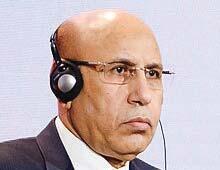
the continent to help build their countries, cities and communities of origin – particularly by leveraging their often vast and powerful global networks and net worth.
Sustainable Development and Climate Resilience
A Global Africa vision must prioritize sustainable development in the Caribbean and Africa’s fragile ecosystems. Both regions are particularly vulnerable to the impacts of climate change with significant impacts on agriculture, water resources, and health. Africa’s path to prosperity for all Africans must prioritize sustainable development and invest in renewable energy, sustainable agriculture, and climate-resilient infrastructure by pioneering green technologies and sustainable practices that protect its environment and set an example for the rest of the world. An AfCFTA implementation amalgamated with climate resilient development principles provides an opportunity to address climate change issues while simultaneously pursuing development goals and driving the
objectives of a Global Africa”.
Cultural Pride and Identity
Africa has a rich and diverse cultural heritage-a source of strength and resilience for its people. By celebrating and preserving this heritage, Africans all over the world can build a sense of unity, solidarity, and a shared history and prosperity that transcends borders and fosters a sense of belonging and pride. This can help to counter negative stereotypes and perceptions of Africa and promote a more positive image of the continent on the global stage.
What is the Global African Bank Doing in this regard?
Afreximbank has spearheaded several projects and initiatives that embody this Global Africa narrative. This includes:
• the Intra-Africa Trade Fair which aims to boost intra-Africa Trade by providing a platform for Global African businesses around the world to explore trade and investment opportunities, • MANSA repository which provides reliable
information about Global African businesses thereby enhancing transparency and trust in Global African markets,
• Pan-African Payment and Settlement System which facilitates cross border payments within Africa, reducing the cost and complexity of intra- Global African trade, and
• Cultural promotion programs such as the Creative Africa Nexus (CANEX) are aimed at enhancing Global Africa’s soft power, ensuring that African narratives and identities are represented and respected globally.
Conclusions
As we navigate the complexities of a rapidly changing global landscape, it is becoming increasingly clear that the future of economic prosperity lies in Africa’s hands. With its rich resources, vibrant cultures, and innovative spirit, Africa has the potential to not only shape its own destiny but also influence the course of the global economy.
The Global Africa narrative, championed by Afreximbank (The Global Africa Bank) is a powerful tool in reshaping perceptions and driving development. Afreximbank is not only promoting economic growth but also advocating for comprehensive and reparative justice that acknowledges Africa’s historical experiences. This narrative is essential for building a future where Africa is recognized as a dynamic and integral part of the global economy, capable of achieving sustainable and inclusive development Ultimately, the concept of Global Africa is about recognizing the potential of the continent and the importance of Africans wherever they may be based, working together to take ownership of their destiny. By working together and embracing their shared values and aspirations, Global Africans can unlock their full potential and create a brighter future for themselves. The journey is complex and fraught with challenges, but the vision of a prosperous, self-reliant Global Africa is not only achievable but imperative.
•Dr. Yemi Kale is the Group Chief Economist & Managing Director of Research and International Cooperation at Afreximbank, Egypt. He was formerly a Partner and Chief Economist, at KPMG, Nigeria. Prior to this, he served as the Statistician General and CEO of the National Bureau of Statistics, Nigeria.
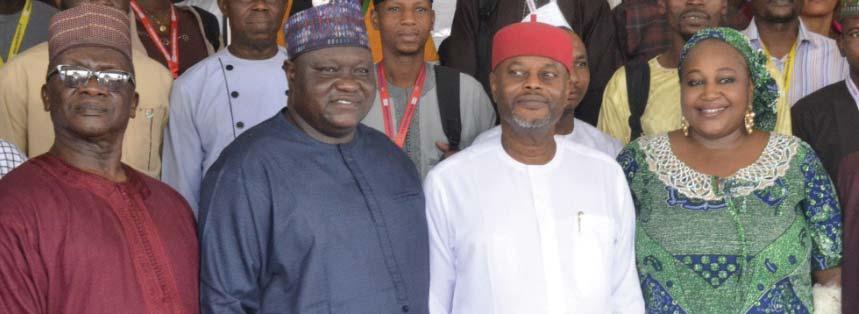
The Minister of Aviation and Aerospace Development, Mr. Festus Keyamo, has raised the alarm that private jet operations were largely used for money laundering and drug trafficking.
Keyamo, who set up an 8-man ministerial committee for the purpose said the operations of private aircraft owners in the country had remained largely unchecked and unregulated going by the security concerns and reports.
He lamented that going by reports, there was spike in money laundering, drug trafficking and
other illegal activities through the use of private aircrafts in the country.
The Minister who highlighted his 5-Point Agenda encapsulating Safety, Infrastructure, Support for local operators, Human Capacity Deployment and Revenue generation, said the agenda served as a guide in discharging the mandate of the president.
He noted that he was compelled to take decisive action after meeting with the regulators and stakeholders within the aviation industry by setting up a Ministerial Task force.
Keyamo urge, the Task Force members to work diligently to restore confidence in the aviation
Arewa Think Tank Tackles El-rufai, Others over Recent Visits to Buhari
A Northern group, Arewa Think Tank (ATT), yesterday lambasted politicians it said were visiting former President Muhammadu Buhari in his hometown, Daura, Katsina State, allegedly seeking political advice from him about their moves ahead of the 2027 general election.
In a statement, Convener of Arewa Think Tank, Muhammad Yakubu said although the group was not against politicians visiting each other or networking, but when the visits and intentions are laced with mischief, hatred, propaganda and intentions to cause disaffection, they become problematic.
The group said as far as 2027 election is concerned, there is no vacancy in Aso Rock until President Bola Tinubu finishes his second term in office.
Arewa Think Tank also frowned on the action of the former governor of Kaduna State, Nasir el-Rufai for taking the Kaduna State House of Assembly to Court following a probe that indicted him and his cabinet of N423 billion fraud.
"El-Rufai who did not obey court order is the person who is now running to court for protection. He demolished houses even when such cases were still court. Take Durbar hotel, for instance. He pulled down the structure when the case was still in court. El-Rufai refused to obey court orders and went ahead to allocate Durbar land to people who now
erected buildings on the land.
"This is an irony life; the same courts whose pronouncements Nasir el-Rufai was not respecting, but he was disobeying then as the governor of Kaduna State, are the same courts he is running to today to seek justice.
"Where was el-Rufai when Tinubu and Uba Sani were fighting for democracy for Nigeria to get out of the military rule. What did el-Rufai do to end insurgency and insecurity generally for the eight years he governed Kaduna," ATT further expressed worry that previous administrations in the country could not fight banditry and insurgency for 15 years, while civil war was brought to an end within 30 months, adding those politicians did not do anything for the progress of the nation, but caused hatred among the populace.
"These politicians become audible after leaving power. Prof Yusuf and Sheikh Gumi were championing negotiation with bandits during the administration of President Muhammadu Buhari. What changed? Only the gullible will fall for their antics. The civil war lasted for 30 months, but the previous administrations could not bring banditry and insurgency to an end for over 15 years.
"They came to power when the North was in the hands of terrorists and left it in the joint hands of terrorists and bandits. The Northern poor masses should reject their political tricks and manoeuvring,” the statement added.
industry, to eliminate illegal operations and also to ensure that every flight in the country's skies adhered to the highest standards of safety and legality.
The Task Force members who have been carefully selected from within and outside the aviation industry were charged "To take inventory of all Private Noncommercial Flight (PNCF) holders and Air Operator Certificate (AOC)
holders.
“To determine why the practice of illegal charters by PNCF holders persists in the country despite regulatory controls.
"To call in all professional licenses of pilots and crew in the country and determine their authenticity and validity.
“To recommend to the minister any additional measures to be taken by regulatory agencies to
stem the ugly tide. To recommend appropriate sanctions to be imposed by the regulatory agencies on defaulters.
“To recommend additional measures to further monitor the operations and activities of private aircraft in Nigeria."
Chairman of the Task Force Committee, Capt. Ado Sanusi, appreciated the minister for opportunity given to the committee and promised to get to the root of the problems at hand. Other members of the taskforce aside Sanusi included Capt. Roland Iyayi, Vice Chairman; Ag. Director of Air Transport, FMA&AD, Theresa A. Babayo (DAYR-NCAA), Secretary; a nominee from the National Security Adviser, Capt. Daniel Quansah; Capt. Patrick Ogunlowo, and Obafemi Bajomo (SA-HMA).
Insist party will win Ondo guber election
Chuks Okochq in Abuja
National Chairman of the Peoples Democratic Party (PDP), Ambassador Iliya Damagum, yesterday, warned the All Progressives Congress (APC) that there would be no room for grabbing and snatching of ballots, because Edo State is not Lagos.
Damagum spoke at the national secretariat of the party, when he inaugurated the campaign councils for Edo and Ondo States governorship elections.
According to Damagum, "Nigeria is a democratic country. Edo no be Lagos. There are rules
"They know very well that something like that might come in future. And if it's a necessity, the senate will be treat it, but there is nothing like that before us now."
The upper and lower chambers, yesterday, extended the implementation of the capital component of the 2023 budget until December 31.
The senate also extended the implementation of the N2.17
of engagement and this must be obeyed.
"I've just been watching the remarks especially on Ondo and Edo, where the president said he's taking Ondo for his patch.
"Like we've always said, he has tried it before, and we have a slogan that Edo no be Lagos. So, I want to use this opportunity to stress that we are in a democratic dispensation and there are rules that have to be adhered to.
"We will not sit down and allow anybody to snatch, grab, and steal. We will be battle ready for any thief that date rear his head to steal our fortune.
"We have done so well in Edo
trillion 2023 supplementary budget until December.
Akpabio announced the extension of the appropriation bills during the emergency plenary after it was read for the first, second and third times and supported by a majority of the senators.
The appropriation bills were separately considered at the senate committee on supply.
The House of Representatives also considered and passed bills seeking to extend the implementation of the 2023 Appropriation Act and the 2023 Supplementary Appropriation Act till December 2024. This
State. We thank the governor. We are very proud of him. And our records in that state speak volumes.
"So to those that think they will take Edo, I want to tell them that it is going to be very difficult for them because we are in a democratic dispensation.
"We will not make the mistake we have made before. And this time around, there is no announcement of result in the middle of the night.
"You have to open your eyes, shine your eyes. They will come with all sorts of antics, but this time around we are ready for them.
"We will match them. And I'm
was sequel to the passage into law of the 2023 Appropriation Act Amendment Bill 2024 and the 2023 Supplementary Appropriation Act Amendment Bill 2024 by the House.
The executive arm of government presented the two bills via a letter transmitted from Tinubu, which was read on the floor of the House by Speaker, Hon. Abbas Tajudeen.
The bills were titled the 2023 Appropriation Amendment Bill, 2024, and the 2023 Supplementary Appropriation Amendment Bill, 2024.
That would be the second time that the lawmakers will
encouraging you to be fearless. Already they are campaigning for us. Hunger alone in this country is enough to change your sight.
"We are feeling it and everyone is looking at you. Will you allow yourself until maybe you start looking for the next grave before you change?
"So to the people of Ondo, this is another opportunity for you to change things and make things work for you. We will be here. We will give you all the support and we will be there for you.
"And I pray that these two campaigns cancelled will give us the desired results come these two elections," Damagum stated.
be extending implementation of the 2023 budget and its components since beginning of Tinubu’s administration. In March, the upper chamber extended implementation of the capital component of the 2023 budget and implementation of the N2.17 trillion 2023 supplementary budget until June.
With the development, the 2023 budget will be implemented for two years, despite the existence of the 2024 budget. It also means that the federal government was currently implementing two budgets, 2023 and 2024 Appropriation Acts.
Femi Solaja
Super Eagles’ winger, Ademola Lookman, has emerged as the Atalanta ‘Player of the Season’ following his spectacular 2023/2024 session for the Italian side that culminated in the team winning the Europa League title for the first time.
The Nigerian forward won the coveted award back-to-back at the Bergamo-based side.
Lookman was instrumental to Atalanta winning the UEFA Europa League title, scoring all the three goals in the 3-0 defeat of Bayer Leverkusen in the final.
Atalanta announced Lookman as the winner on the club’s official website yesterday.
According to Atalanta: “It’s him again, Ademola Lookman! The reigning champion defends his title and is crowned straight-a student for the second year in a row after staving off an unsparing competition, to the point of both bringing the contest to an overtime runoff and stepping the pose down up to the Instagram profile after the regular session ended in a tie.
Kudos to Molafor his back-to-back
Player of the Season!” it noted.
The club said further that,” building on his 17 goals and 11 key passes in all competitions (making him the team’s secondbest seasonal scorer and wingman) and with the hat-trick scored in the magical Dublin final as his main leg-up, Lookman tips the ItalianOptic branded crown once again,” the web remarked.
Aside from Lookman, the second and third-best positions were also announced as the midfield duo of Jose dos Santo Éderson and Teun Koopmeiners.
The Nigerian had a brilliant AFCON experience with Super Eagles who finished as runners up in Côte d’Ivoire where he scored three goals in the tournament.
His exploits for both club and country now puts him in strong contention to win the next ‘African Footballer of the Year’ award which will come up before the end of the year at a venue yet to be announced by the Confederation of African Football (CAF).
Nigeria’s Victor Osimhen is the reigning winner of the award alongside Asisat Oshoala who retained the women’s version.
The management of Enugu Rangers FC yesterday presented the 2023/2024 NPFL trophy won by the team to the Ex-Rangers Players Association led by Austin Igweokolo at their monthly meeting with most of their living legends in attendance.
G.M/CEO of the ‘Flying Antelopes’, Amobi Ezeaku, while presenting the trophy to the Rangers legends stressed that the management of the club cannot forget the sacrifices made by these ex internationals to keep the flame of the club burning, even in difficult times.
“We are here to show respect to this group for your solid support and prayers during our push to bring back the league trophy to Enugu. We appreciate all you did during your playing days; the sacrifices are not lost on us. We hope to keep the light burning and keep pushing to realise the objectives of the founding members of Rangers,” said the young club boss.
National Chairman of the association, Pastor Austin Igweokolo, in his reaction, praised the effort of the players, coaches, and management of the club in
winning the league trophy and also deciding to bring it to the elders of the club.
“I must say on behalf of every member of this noble association thank the management for this great idea of presenting the league trophy to the legends of the club.
It is a show of respect. It is highly appreciated and we shall continue to support you in every way we can to ensure you maintain the top spot you have attained. We say big congratulations to everybody who made this triumph possible,” he noted.
Legends like Emmanuel Okala (MON), Chairman Christian Chukwu (Mfr), Dominic Nwobodo, Kingsley Obiekwu, Chukwudi Odita, Victor Oko, and many others were on ground to witness the auspicious occasion.
Rangers were crowned the 2023/2024 NPFL champions on Sunday, June 23, 2024, at the New Jos Stadium, Plateau State after defeating Gombe United 2-1 to amass a total of 70 points from 38 matches. Rangers scored 56 goals and conceded 33 to emerge as the best-attacking side and the second-best defending team of the season.
As the date for the commencement of the 2024 Paralympics Games draw nearer, Paralympic Committee of Nigeria (PCN) has commenced camping exercises for its athletes. The paralympic games will hold between August 28 and September 8, 2024 in Paris.
President, Paralympic Committee of Nigeria (PCN), Mr Sunday Odebode, informed the media yesterday that the para-athletes and Para Badminton players will be in Abuja for their camping exercise while powerlifters and para table tennis players will be in Lagos for
the exercise.
"As you are all aware, the paralympic games is around the corner and we at PCN are not leaving any stone unturned to ensure adequate preparations for our athletes, hence the decision to commence camping in earnest. This will put our athletes in good shape during the games where we hope to excel and make the country proud", Odebode said. He further said that other federations will soon embark on their campings once venues for such have been secured.

Bidzina Ivanishvili, the former prime minister of Georgia, has pledged to give £8.4m to the nation's football team after they beat Portugal at Euro 2024.
Georgia, managed by former French defender Willy Sagnol, overcame Portugal 2-0 in Gelsenkirchen on Wednesdayto qualify for the last-16 stage, where they will face Spain.
Ivanishvili, who founded the ruling Georgian Dream political party and became prime minister of the country in 2012, said the win against Portugal was a "historic and dream victory".
The 68-year-old said he would donate a further £8.4m (30 million Georgian Lari) to the squad and coaching staff should they also beat Spain.
Ivanishvili was born in Georgia and established his fortune in Russia
England v Slovakia
France v Belgium
Germany v Denmark
Switzerland v Italy
Spain v Georgia
Portugal v Slovenia
Romania v Netherlands
Austria v Turkey
in the 1990s with investments in banking, computers and metals.
His wealth is estimated by Forbes at around £3.87bn and the Georgian Dream party says the donations will come from Ivanishvili's charitable foundation.
Although he stepped down as prime minister after just 12 months in the job, Ivanishvili still has an influence within the country's ruling party as its honorary chairman.
In April, many players from Georgia's Euro 2024 squad spoke out against the Georgian Dream party after the announcement of a law on "foreign agents".
The law, which was enacted in parliament in June,sparked some of the biggest protests seen in Georgia since the country declared its independence in 1991 as critics said the bill threatened their civil liberties. Georgia, who are competing at the European Championship for the first time, face Spain in Cologne on Sunday at 8pm BST.
All four teams taking part in Saturday’s President Federation Cup grand finale will have their official training sessions at the match venue, Mobolaji Johnson Arena, today.
As the ‘away’ teams on the big day, Rivers Angels and Abia Warriors have been handed the privilege to train at the match time. For this reason, Rivers Angels will train from 1pm (which is the time the women’s final will kick off on Saturday), while the ‘home’ team, Naija Ratels, will train from 2pm.
In the men’s draw, ‘away’ team, Abia Warriors, will train from 4pm (which is the time the men’s final will kick off on Saturday), while the ‘home’ team, El-Kanemi Warriors,
will train from 5pm. The scheduling for training sessions conform to international best practices.
Meanwhile, tickets for Saturday’s President Federation Cup men’s and women’s final matches are already being sold for the sums of N200 and N2,000 each. The tickets are being sold online. While popular side tickets go for N200, the VIP tickets are being sold for N2,000 each.
Saturday’s grand finale at the Mobolaji Johnson Arena on the Lagos Waterfront will see Naija Ratels FC of
off
The
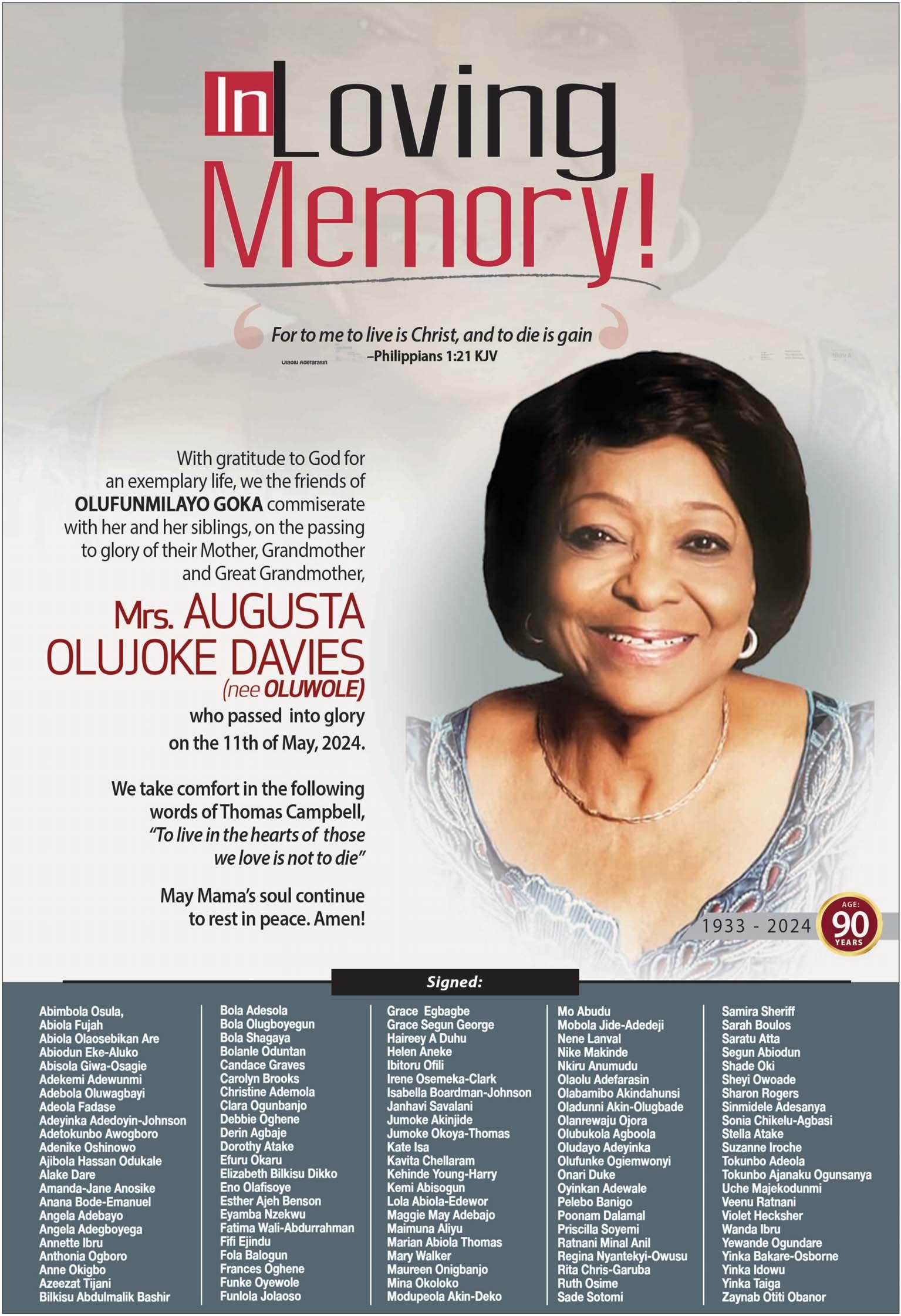





Friday, June 28,
“My appeal to Nigerians who have taken up arms against the states is that they see reason that it is only an atmosphere of peace that people can experience progress and all those things that they deserve from the government, the states, can be realised. I appeal to them to drop their arms, seek dialogue and other means through which grievances can be addressed” –Chief of Army Staff (COAS), LT-Gen. Taoreed Lagbaja, offering carrot and stick to enemies of Nigeria.

akinosuntokun@thisdaylive.com
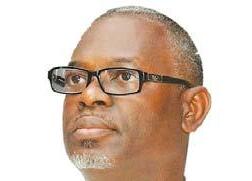
There aren’t many subject-matters as extensively and persistently discussed as federalism. As a matter of fact, ‘in its original form, the federal idea was theopolitical, defining the relationship between God and man as one in which both were linked by covenant in a partnership designed to make them jointly responsible for the world’s welfare’. Properly understood and in the context of contemporary Nigeria, the restructuring we labour to define, is, in the first instance, the constitutional restoration of federalism, exclusive of geophysical alterations. The latter is not generalisable and can only be speculative at this stage. Who will determine the legitimate representation of proposed mergers and recreations? This problem hacks back to the fundamental problematic of the Nigerian federation. As in the classic instance of the original thirteen states pooling together to foster the American federation, Nigeria was not formed by Nigerians coming together to form a federation. ‘Nigeria presents an almost classic case of the establishment of a state prior to the existence of a real nation’. According to Richard Sklar, the Federation of Nigeria is one of the few federal governments in history to have evolved from colonial
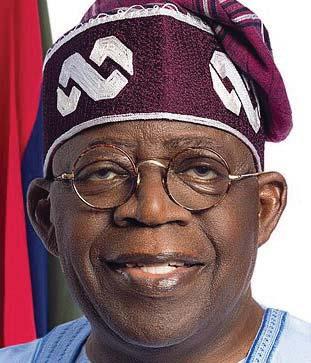
unitary foundations.
As a generic terminology, restructuring means the restructuring/redistribution of power relations between the two tiers of government namely the national and the coordinate subnational units and implies
As I reflect on my participation at the recently concluded Afreximbank 2024 Annual Meetings in Nassau, Bahamas premised on the theme ‘Owning our Destiny: Economic Prosperity on a Platform of Global Africa’, I am reminded about what really matters, not only in my professional capacity as the Group Chief Economist at what is aptly described as the Global African BankAfreximbank, but also on my role as a citizen of the continent and key stakeholder of this Global Africa movement. Being principally responsible for the intellectual sessions and segments of the three-day meetings, which featured over 100 high level speakers who gave insightful remarks and suggestions across 18 technical panel sessions, and with about 4,000 attendees, I could clearly see the imperative for Africa to harness its own resources, creativity, and entrepreneurial spirit to chart a path towards sustainable growth and global influence.
For too long, Africa, despite its immense wealth, has been viewed through a lens of poverty, conflict, fragility and instability. Africa’s development has been shaped by external forces—colonialism, foreign aid, global economic
the abrogation of an autonomous third tier of government. These powers fall in three categories namely exclusive, concurrent and residual. The first category is exclusive to the federal government ie foreign affairs, military, currency etc. The concurrent category refers to those powers that can be concurrently undertaken by the national and the subnational governments, i.e. education, agriculture, communications, etc. Those that are not listed in either category constitute the residual powers and revert solely to the sub-national government. Since 1966, with the facility of military dictatorship, most of these powers have been centralised and are reflected as such in the 1979 and 1999 constitutions and landed us with the prevailing quasi unitary constitution. Haven championed the cause of the constitutional restoration of federalism before he became the President of Nigeria, there is the renewed expectation that President Bola Ahmed Tinubu will be readily disposed towards giving effect to the realisation of this expectation. There is also the compelling backdrop of the anarchical security breakdown of Nigeria with which extant security architecture has woefully failed to grapple with. Doubts on his commitment to this
restoration began to surface in the course of his Presidential campaign when in deference to the realpolitik of winning the status quo bound Northern Muslim constituency, he had to distance himself from the imperative of constitutional reforms.
The more categorical evidence of his latter stance was the recent instruction to his attorney general, Lateef Fagbemi, to seek the enforcement of local government autonomy as the third tier of government at the Supreme court.
Instructively and ironically, this was a complete departure from the position he took as the Governor of Lagos over twenty years ago. The abiding rumour is that the fastest way to earn the status of a persona non grata at the Presidential villa these days is to find virtue with federalism. Given the associated pomp and pageantry and the near sovereign powers of the President in the extant Nigerian constitution it is difficult for any non sacrificial Nigerian President not to default on the side of preserving the attendant massive perks and perquisites during his incumbency.
The bad news is that any proposal for
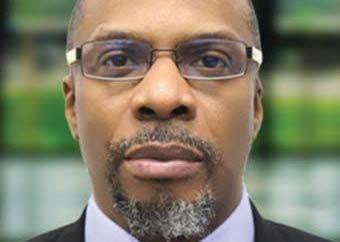
dynamics, and fragmentation that traces its history to Berlin. A divided Africa – of about 2 billion people scattered across the world - has certainly not thrived in their individuality. While these narratives and influences have hindered Africa’s ability to attract investments, slowed the continent’s growth and development and left indelible marks, they have also obscured the continent’s inherent strengths, and prevented African nations from reaching their full potential. However, our conversations in Nassau have shown that this narrative is undergoing a profound transformation, and Africa is increasingly being recognized not just for its vast natural resources and resilience in the face of global shocks, but also its globally dispersed young and dynamic population, its vibrant culture and its growing consumer class. To capitalize on this momentum, African nations are now appreciating the vision of its forefathers and embracing the need to come together to create a unified ‘Global Africa’ vision for the continent’s future. The concept of “Global Africa” is one that emphasizes the interconnectedness of Africans across the globe and the importance of collaboration and unity in achieving prosperity in a world where isolationism and neo-protectionism are increasingly prevalent
At the ‘Global African Bank’-Afreximbank, this “Global Africa” vision is a multifaceted and ambitious concept aimed at integrating Africans into the global economy while simultaneously fostering intra-African cooperation and development. By emphasizing the historical context as a critical middle passage to understanding Africa’s current underdevelopment, particularly the transatlantic slave trade which culminated in negative demographic consequences, economic disruption, internal instability and cultural erosion, this Global Africa vision aims to create a future where Africa can thrive both independently and as a dynamic player in global affairs. The concept of Global Africa is therefore not just a means to integrate Africa into the global economy but is one that seeks to promote the economic interests of all Africans irrespective of geographic location. Indeed, the gathering of Africans in the Bahamas for the 2024 Afreximbank Annual Meetings underscored the need to forge strong alliances that will enable us to deal with our common challenges in an era of rising polycrisis.
Strengthening Regional Integration
through the AfCFTA and AfriCaribbean Free Trade Agreement
A key component of this vision is the promotion of intra-African trade and AfriCaribbean trade. Currently, intra African trade, though rising, still accounts for only about 15% of its total trade, compared to about 69% in Europe and 59% in Asia. Afri-Carribean Trade is even smaller at under 2%. To increase intra-African trade and Afri-Caribbean trade, we must -as summarized in the Afreximbank President, Bennedict Oramah, own statement at the meetings- prioritise the establishment of sea and air link between these two regions, facilitating human resource exchanges that will foster skills, knowledge and technology transfers. Furthermore, we must collectively build strong and sizeable continental regional development financial institutions, including accelerating steps towards creating the Caribbean Exim Bank to promote Afri-Caribbean trade, to reduce dependence on exports to other regions, create new economic opportunities, and stimulate job growth. With the Global African bank, Afreximbank, championing